ILSI Southeast Asia Region organizes over 50 events – workshops, symposia, scientific session and more – each year. Explore recent and past events here for agendas, speaker presentations, and summaries.
Past Events
Science Symposium in conjunction with ILSI SEA Region 2023 Annual Meeting – ReThink Nutrient Recommendations for Optimizing Health and Harmonizing Approaches
27/04/2023
Singapore, Singapore
A science session in conjunction with ILSI SEA Region 2023 Annual Meeting, Symposium on “ReThink Nutrient Recommendations for Optimizing Health and Harmonizing Approaches” provides a platform to review and deliberate on various aspects of recommended intake values for nutrients and bioactives. These have important implications and impact on various aspects of food and nutrition activities, including food intake programs, product innovation, food fortification, and supplementation.
Symposium: ReThink Protein Needs and Dietary Shift in Southeast Asia – Health, Innovation and Sustainability
21/02/2023 – 22/02/2023
Singapore, Singapore
ILSI Satellite Seminar: Climate Change, Nutrition & Health
06/12/2022
Tokyo, Japan
ILSI Sessions at IUFoST 2022 Singapore
31/10/2022 – 03/11/2022
-, Singapore
ILSI supports three technical sessions at the IUFoST 2022, focusing on protein, food-omics, and packaging. Check out more details on this page.
Science Session in conjunction with ILSI SEA Region 2022 Annual Meeting
26/04/2022
Singapore, Singapore
–
WP_Query Object
(
[query] => Array
(
[post_type] => event
[posts_per_page] => 5
[type] =>
[area] =>
[before] => 2024-04-25
[after] =>
[tags] =>
[showtitle] =>
[meta_query] => Array
(
[relation] => AND
[0] => Array
(
[key] => _ilsi_date
[value] => 2024-04-25
[compare] => <=
)
)
[paged] => 2
[meta_key] => _ilsi_date
[orderby] => meta_value
[order] => DESC
)
[query_vars] => Array
(
[post_type] => event
[posts_per_page] => 5
[type] =>
[area] =>
[before] => 2024-04-25
[after] =>
[tags] =>
[showtitle] =>
[meta_query] => Array
(
[relation] => AND
[0] => Array
(
[key] => _ilsi_date
[value] => 2024-04-25
[compare] => <=
)
)
[paged] => 2
[meta_key] => _ilsi_date
[orderby] => meta_value
[order] => DESC
[error] =>
[m] =>
[p] => 0
[post_parent] =>
[subpost] =>
[subpost_id] =>
[attachment] =>
[attachment_id] => 0
[name] =>
[pagename] =>
[page_id] => 0
[second] =>
[minute] =>
[hour] =>
[day] => 0
[monthnum] => 0
[year] => 0
[w] => 0
[category_name] =>
[tag] =>
[cat] =>
[tag_id] =>
[author] =>
[author_name] =>
[feed] =>
[tb] =>
[meta_value] =>
[preview] =>
[s] =>
[sentence] =>
[title] =>
[fields] =>
[menu_order] =>
=>
[category__in] => Array
(
)
[category__not_in] => Array
(
)
[category__and] => Array
(
)
[post__in] => Array
(
)
[post__not_in] => Array
(
)
[post_name__in] => Array
(
)
[tag__in] => Array
(
)
[tag__not_in] => Array
(
)
[tag__and] => Array
(
)
[tag_slug__in] => Array
(
)
[tag_slug__and] => Array
(
)
[post_parent__in] => Array
(
)
[post_parent__not_in] => Array
(
)
[author__in] => Array
(
)
[author__not_in] => Array
(
)
[search_columns] => Array
(
)
[ignore_sticky_posts] =>
[suppress_filters] =>
[cache_results] => 1
[update_post_term_cache] => 1
[update_menu_item_cache] =>
[lazy_load_term_meta] => 1
[update_post_meta_cache] => 1
[nopaging] =>
[comments_per_page] => 50
[no_found_rows] =>
)
[tax_query] => WP_Tax_Query Object
(
[queries] => Array
(
)
[relation] => AND
[table_aliases:protected] => Array
(
)
[queried_terms] => Array
(
)
[primary_table] => wp_21_posts
[primary_id_column] => ID
)
[meta_query] => WP_Meta_Query Object
(
[queries] => Array
(
[0] => Array
(
[key] => _ilsi_date
)
[1] => Array
(
[0] => Array
(
[key] => _ilsi_date
[value] => 2024-04-25
[compare] => <=
)
[relation] => OR
)
[relation] => AND
)
[relation] => AND
[meta_table] => wp_21_postmeta
[meta_id_column] => post_id
[primary_table] => wp_21_posts
[primary_id_column] => ID
[table_aliases:protected] => Array
(
[0] => wp_21_postmeta
[1] => mt1
)
[clauses:protected] => Array
(
[wp_21_postmeta] => Array
(
[key] => _ilsi_date
[compare] => =
[compare_key] => =
[alias] => wp_21_postmeta
[cast] => CHAR
)
[mt1] => Array
(
[key] => _ilsi_date
[value] => 2024-04-25
[compare] => <=
[compare_key] => =
[alias] => mt1
[cast] => CHAR
)
)
[has_or_relation:protected] =>
)
[date_query] =>
[request] =>
SELECT SQL_CALC_FOUND_ROWS wp_21_posts.ID
FROM wp_21_posts INNER JOIN wp_21_postmeta ON ( wp_21_posts.ID = wp_21_postmeta.post_id ) INNER JOIN wp_21_postmeta AS mt1 ON ( wp_21_posts.ID = mt1.post_id )
WHERE 1=1 AND (
wp_21_postmeta.meta_key = '_ilsi_date'
AND
(
( mt1.meta_key = '_ilsi_date' AND mt1.meta_value <= '2024-04-25' )
)
) AND ((wp_21_posts.post_type = 'event' AND (wp_21_posts.post_status = 'publish' OR wp_21_posts.post_status = 'acf-disabled')))
GROUP BY wp_21_posts.ID
ORDER BY wp_21_postmeta.meta_value DESC
LIMIT 5, 5
[posts] => Array
(
[0] => WP_Post Object
(
[ID] => 29672
[post_author] => 353
[post_date] => 2023-03-23 01:35:32
[post_date_gmt] => 2023-03-23 01:35:32
[post_content] =>
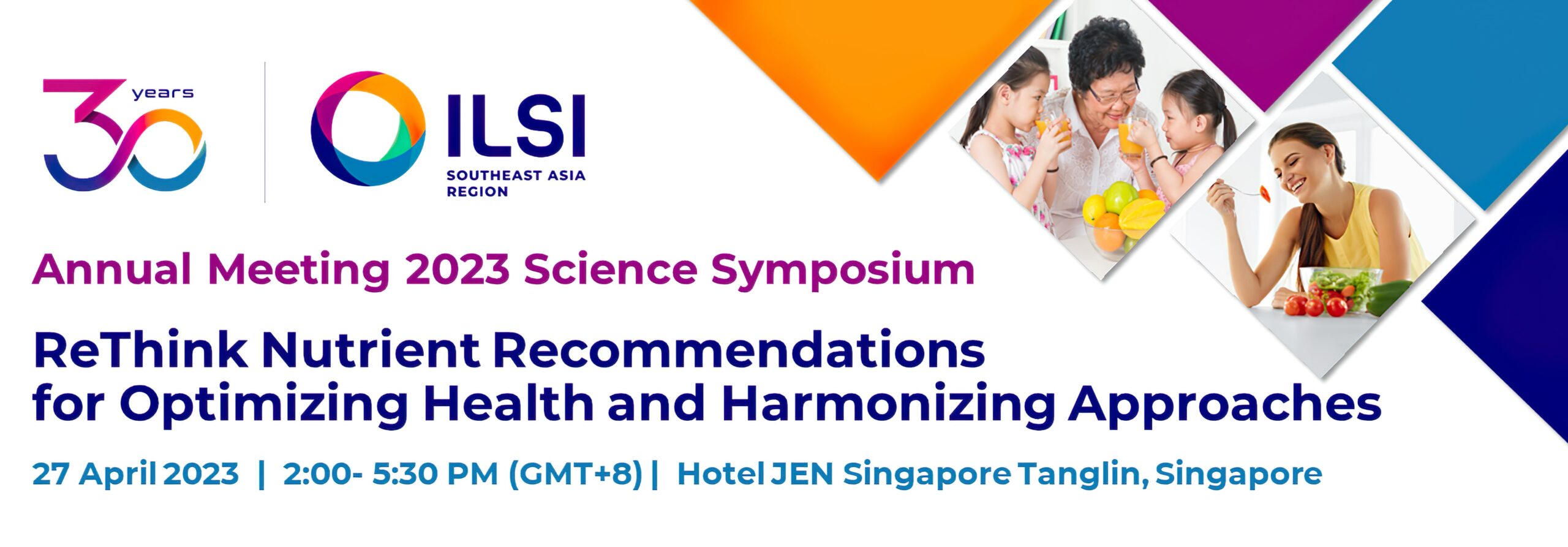 Most countries have established recommended nutrient intake values for use for a variety of food and nutrition programs. These have traditionally been provided as recommended dietary allowances (RDAs), with focus on energy, protein and several vitamins and minerals. They are classically used to ensure adequacy of intake of these nutrients of population groups. While these remain of great importance, especially for developing countries, it has now been observed that certain nutrients, when taken at higher dose above RDA, may confer health benefit(s) beyond prevention of nutritional disorders. It would be important to examine how these levels may provide protective effects against some disease conditions. Understanding and establishing appropriate safe upper limit (UL) of nutrients are also of importance. Additionally, there is growing scientific evidence that bioactive components in foods may provide health benefits beyond classical nutrients. Regulatory authorities have permitted the addition of these components to foods and to make function claims.
Most countries have established recommended nutrient intake values for use for a variety of food and nutrition programs. These have traditionally been provided as recommended dietary allowances (RDAs), with focus on energy, protein and several vitamins and minerals. They are classically used to ensure adequacy of intake of these nutrients of population groups. While these remain of great importance, especially for developing countries, it has now been observed that certain nutrients, when taken at higher dose above RDA, may confer health benefit(s) beyond prevention of nutritional disorders. It would be important to examine how these levels may provide protective effects against some disease conditions. Understanding and establishing appropriate safe upper limit (UL) of nutrients are also of importance. Additionally, there is growing scientific evidence that bioactive components in foods may provide health benefits beyond classical nutrients. Regulatory authorities have permitted the addition of these components to foods and to make function claims.
This seminar provides a platform to review and deliberate on these various aspects of recommended intake values for nutrients and bioactives. These have important implications and impact on various aspects of food and nutrition activities, including food intake programs, product innovation, food fortification, and supplementation.
PROGRAM AND SPEAKERS
Presentation 1: Nutrient Requirement and Setting of Recommended Intake Values
Expand
Assoc. Prof. Emorn Udomkesmalee, Mahidol University, Thailand
 Prof. Emorn Udomkesmalee is the Senior Advisor and Former Director of the Institute of Nutrition, Mahidol University, Thailand. She holds a current position of Adjunct Associate Professor in the Department of International Health, Bloomberg School of Public Health, Johns Hopkins University, USA. Internationally, she's the former Board Chair of IFPRI; former Member of the Board of Directors of the Micronutrient Forum and currently serves on the Standing Together for Nutrition (ST4N) Consortium; Technical Advisory Group for Global Anemia Exemplars; Scientific Committee of Agriculture, Nutrition and Health Academy as well as Scientific Director of ILSI Southeast Asia Region. At national level, she holds the position of the Eminent Panel member under the National Policy Council on Higher Education, Science, Research and Innovation; Chair of Sub-Committee on Agriculture and Nutrition, Office of Atoms for Peace (Thailand) as well as Board member of Ajinomoto Foundation/Thailand.
Prof. Emorn Udomkesmalee is the Senior Advisor and Former Director of the Institute of Nutrition, Mahidol University, Thailand. She holds a current position of Adjunct Associate Professor in the Department of International Health, Bloomberg School of Public Health, Johns Hopkins University, USA. Internationally, she's the former Board Chair of IFPRI; former Member of the Board of Directors of the Micronutrient Forum and currently serves on the Standing Together for Nutrition (ST4N) Consortium; Technical Advisory Group for Global Anemia Exemplars; Scientific Committee of Agriculture, Nutrition and Health Academy as well as Scientific Director of ILSI Southeast Asia Region. At national level, she holds the position of the Eminent Panel member under the National Policy Council on Higher Education, Science, Research and Innovation; Chair of Sub-Committee on Agriculture and Nutrition, Office of Atoms for Peace (Thailand) as well as Board member of Ajinomoto Foundation/Thailand.
Her research interests include micronutrients; efficacy of food-based interventions; maternal and child nutrition policy and program implementation. She received her Ph.D. in nutritional biochemistry and metabolism from Massachusetts Institute of Technology (MIT), USA in 1985. Her post-doctoral training was at the Vitamin and Mineral Nutrition Laboratory, Beltsville Human Nutrition Research Center, USDA, Beltsville, Maryland, USA (1987).
Presentation 2: Status of Recommended Nutrient Intake Values in 5 SE Asia Countries
Expand
Dr. Tee E Siong, SEA-PHN Network, Malaysia
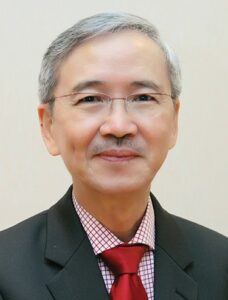 Dr. E Siong Tee has been a Member of the Board of Directors of ILSI SEA Region since 1996 and Scientific Coordinator of ILSI Malaysia Country Committee since 2005. He is currently a Nutrition Consultant for TES NutriHealth Strategic Consultancy. Dr. Tee was Head of the Cardiovascular, Diabetes and Nutrition Research Centre of the Institute for Medical Research (IMR) in Kuala Lumpur, Malaysia, until his retirement in February 2002, after serving for 30 years. He was Nutrition Advisor to the Food Safety and Quality Division of the Ministry of Health Malaysia from 2002-2011. In that capacity, Dr. Tee was Chairperson or member of several technical committees related to food regulations and Codex Alimentarius. He is still a member of the National Advisory Committee on Food Regulations and several Codex sub-committees. Dr. Tee is also President of the Nutrition Society of Malaysia (NSM). In this capacity, he has led the implementation of various community nutrition promotion programs. He represents NSM in several Technical Working Groups in the Ministry of Health Malaysia, including the National Coordinating Committee for Food and Nutrition (NCCFN) and the Technical Working Group for Nutritional Guidelines. He initiated the formation of the Southeast Asia Public Health Nutrition (SEA-PHN) Network and is the current Chairman of the Network. Dr Tee is also Adjunct Professor of the International Medical University, Malaysia.
Presentation 3: Application of Recommended Intake Values Beyond Nutrient Deficiency Prevention: Past vs. Present
Expand
Prof. Manfred Eggersdorfer, University of Groningen, the Netherlands
Dr. E Siong Tee has been a Member of the Board of Directors of ILSI SEA Region since 1996 and Scientific Coordinator of ILSI Malaysia Country Committee since 2005. He is currently a Nutrition Consultant for TES NutriHealth Strategic Consultancy. Dr. Tee was Head of the Cardiovascular, Diabetes and Nutrition Research Centre of the Institute for Medical Research (IMR) in Kuala Lumpur, Malaysia, until his retirement in February 2002, after serving for 30 years. He was Nutrition Advisor to the Food Safety and Quality Division of the Ministry of Health Malaysia from 2002-2011. In that capacity, Dr. Tee was Chairperson or member of several technical committees related to food regulations and Codex Alimentarius. He is still a member of the National Advisory Committee on Food Regulations and several Codex sub-committees. Dr. Tee is also President of the Nutrition Society of Malaysia (NSM). In this capacity, he has led the implementation of various community nutrition promotion programs. He represents NSM in several Technical Working Groups in the Ministry of Health Malaysia, including the National Coordinating Committee for Food and Nutrition (NCCFN) and the Technical Working Group for Nutritional Guidelines. He initiated the formation of the Southeast Asia Public Health Nutrition (SEA-PHN) Network and is the current Chairman of the Network. Dr Tee is also Adjunct Professor of the International Medical University, Malaysia.
Presentation 3: Application of Recommended Intake Values Beyond Nutrient Deficiency Prevention: Past vs. Present
Expand
Prof. Manfred Eggersdorfer, University of Groningen, the Netherlands
 Prof. Manfred Eggersdorfer studied chemistry at the Technical University Munich and did his PhD in organic chemistry in the field of synthesis and characterization of unusual amino acids. He was post-doc at the Stanford-University, California working with Carl Djerassi on the isolation and characterization of sterols from marine origin as potential contraceptives.
Prof. Manfred Eggersdorfer studied chemistry at the Technical University Munich and did his PhD in organic chemistry in the field of synthesis and characterization of unusual amino acids. He was post-doc at the Stanford-University, California working with Carl Djerassi on the isolation and characterization of sterols from marine origin as potential contraceptives.
He joined Roche in 1999 as Head of R+D Vitamins and continued in this responsibility after DSM acquired this business in 2003.
Since 2013 Manfred Eggersdorfer holds the chair for Healthy Ageing at the University Medical Center Groningen (NL) and teaches nutrition for medical students. His scientific work focuses on the role of essential nutrients for health, vitality, and well-being, especially on the impact of inadequate intake and status of micronutrients over the life cycle with a focus on long term health and healthy ageing.
He is active as member of the Advisory Board of the Johns Hopkins Bloomberg School of Public Health, and he acts as Board member of the Gesellschaft für Angewandte Vitaminforschung e.V in Germany. He is author of numerous publications in the fields of vitamins, carotenoids, omega-3-polyunsaturated fatty acids and nutraceuticals for infants, adults, elderly and risk groups and on innovation in nutritional ingredients. He engages as reviewer for a variety of journals and is Associate Editor of the "International Journal of Vitamin and Nutrition Research" and other journals.
Presentation 4: Approaches and Challenges to the Setting of Upper Levels for Nutrients
Expand
Dr. Andrew Bartholomaeus, BartCrofts Pty Ltd, Australia
 Dr. Andrew Bartholomaeus is currently the CEO of BartCrofts Pty Ltd, which specializes in providing toxicological and regulatory scientific services for a variety of chemical food safety issues. He also holds extramural appointments as an Adjunct Professor at the University of Queensland Medical School, Australia and an Adjunct Professor of Toxicology and Pharmacy at the University of Canberra, Australia. Before his current position, Dr. Bartholomaeus was the General Manager of the Risk Assessment Branch at Food Standards Australia New Zealand (FSANZ) until his retirement in 2012. During his time at FSANZ, he also served as the chair during the FAO/WHO Expert Consultation on 'The Application of Nanotechnologies in Food and Agriculture Sectors: Potential Food Safety Implications'. From 2004 to 2008, he was the Chief Toxicologist at the Therapeutic Goods Administration (TGA) of Australia, with responsibilities in the area of preclinical assessment and in leading the TGA's response to the Australian National Nanotechnology Strategy.
Dr. Andrew Bartholomaeus is currently the CEO of BartCrofts Pty Ltd, which specializes in providing toxicological and regulatory scientific services for a variety of chemical food safety issues. He also holds extramural appointments as an Adjunct Professor at the University of Queensland Medical School, Australia and an Adjunct Professor of Toxicology and Pharmacy at the University of Canberra, Australia. Before his current position, Dr. Bartholomaeus was the General Manager of the Risk Assessment Branch at Food Standards Australia New Zealand (FSANZ) until his retirement in 2012. During his time at FSANZ, he also served as the chair during the FAO/WHO Expert Consultation on 'The Application of Nanotechnologies in Food and Agriculture Sectors: Potential Food Safety Implications'. From 2004 to 2008, he was the Chief Toxicologist at the Therapeutic Goods Administration (TGA) of Australia, with responsibilities in the area of preclinical assessment and in leading the TGA's response to the Australian National Nanotechnology Strategy.
Dr. Bartholomaeus was previously a member of the ILSI International Food Biotechnology Committee (IFBiC) Steering Group. He is also a member of the Society of Toxicology and Australasian College of Toxicology and Risk Assessment (ACTRA). Dr. Bartholomaeus obtained his B.S. degree in Pharmacy from the University of Sydney and PhD in Toxicology from RMIT University, Australia.
Presentation 5: Moving Beyond Current Recommended Intakes: Vitamin C as a Case Example
Expand
Prof. Anitra Carr, University of Otago, New Zealand
 Prof. Anitra Carr is Director of the Nutrition in Medicine Research Group at the University of Otago, Christchurch, New Zealand. Anitra is a biomedical researcher and international key opinion leader on the role of vitamin C in human health and disease. Following a PhD at UOC, Anitra undertook an American Heart Association Postdoctoral Fellowship at the Linus Pauling Institute, Oregon State University, USA. Whilst there she produced a number of high impact publications on the role of vitamin C in human health and disease which helped inform US dietary recommendations for vitamin C (IOM 2000). Following a return to New Zealand, Anitra began carrying out a translational research program comprising human intervention studies investigating the bioavailability and potential health effects of vitamin C which has helped inform EU dietary recommendations for vitamin C (EFSA 2013). More recently she has carried out research into the prevention and treatment of acute and chronic diseases such as infection, cancer and diabetes. In 2016 Anitra was awarded a 4-year New Zealand Health Research Council Fellowship to investigate the role of vitamin C in severe infections such as pneumonia and sepsis, two major complications of COVID-19. In 2021, Anitra was invited by the Nordic Nutrition Recommendations 2022 (NNR2022) committee to update vitamin C recommendations for the 8 Nordic and Baltic countries. Anitra is Associate Editor for the journal Nutrition Research and a long-time member of the Editorial Boards of the journals Nutrients and Antioxidants. Anitra was recently awarded a Gold Medal for sustained research excellence.
Presentation 6: Addressing Botanical Bioavailability Limitations: New Approaches by Modification of Macronutrient Food Components
Expand
Prof. Chin-Kun Wang, Chung Shan Medical University, Taiwan
Prof. Anitra Carr is Director of the Nutrition in Medicine Research Group at the University of Otago, Christchurch, New Zealand. Anitra is a biomedical researcher and international key opinion leader on the role of vitamin C in human health and disease. Following a PhD at UOC, Anitra undertook an American Heart Association Postdoctoral Fellowship at the Linus Pauling Institute, Oregon State University, USA. Whilst there she produced a number of high impact publications on the role of vitamin C in human health and disease which helped inform US dietary recommendations for vitamin C (IOM 2000). Following a return to New Zealand, Anitra began carrying out a translational research program comprising human intervention studies investigating the bioavailability and potential health effects of vitamin C which has helped inform EU dietary recommendations for vitamin C (EFSA 2013). More recently she has carried out research into the prevention and treatment of acute and chronic diseases such as infection, cancer and diabetes. In 2016 Anitra was awarded a 4-year New Zealand Health Research Council Fellowship to investigate the role of vitamin C in severe infections such as pneumonia and sepsis, two major complications of COVID-19. In 2021, Anitra was invited by the Nordic Nutrition Recommendations 2022 (NNR2022) committee to update vitamin C recommendations for the 8 Nordic and Baltic countries. Anitra is Associate Editor for the journal Nutrition Research and a long-time member of the Editorial Boards of the journals Nutrients and Antioxidants. Anitra was recently awarded a Gold Medal for sustained research excellence.
Presentation 6: Addressing Botanical Bioavailability Limitations: New Approaches by Modification of Macronutrient Food Components
Expand
Prof. Chin-Kun Wang, Chung Shan Medical University, Taiwan
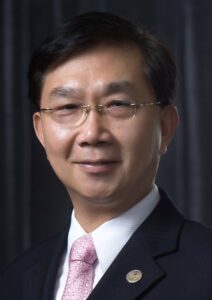 Prof. Chin-Kun Wang is a distinguished professor in Chung Shan Medical University (CSMU), Executive Councillor of International Academy of Food Science and Technology (IAFoST)., Former President of International Society for Nutraceuticals and Functional Foods (ISNFF), Fellows of IAFoST and ISNFF, Honorary President of Nutrition Society of Taiwan. He got his Ph.D. degree from National Taiwan University and worked at Chung Shan Medical University in 1993. In 1996, he promoted as a full professor, and then took the positions of the Chair, Dean, Vice President and President in CSMU. His research work is focused on human clinical trials and human metabolism of medicine, nutritional supplement, nutraceuticals, herbs, and functional foods. Recently he also pays great attention on precision nutrition by using big data. He got the National Award of Biomedicine for his great contribution to the medical education in 2008. He also got the awards of outstanding research of many societies from 2009 to 2022. For food safety and nutrition, he promoted the legislation for school sanitary law and national nutrition law. In the future, he tries his best to work together with the scientists around the world and would like to promote the advanced development of food science and technology.
Panel Discussion
Expand
Ms. Wei Tang, Nutrition External Engagement (Asia), Unilever China
Prof. Chin-Kun Wang is a distinguished professor in Chung Shan Medical University (CSMU), Executive Councillor of International Academy of Food Science and Technology (IAFoST)., Former President of International Society for Nutraceuticals and Functional Foods (ISNFF), Fellows of IAFoST and ISNFF, Honorary President of Nutrition Society of Taiwan. He got his Ph.D. degree from National Taiwan University and worked at Chung Shan Medical University in 1993. In 1996, he promoted as a full professor, and then took the positions of the Chair, Dean, Vice President and President in CSMU. His research work is focused on human clinical trials and human metabolism of medicine, nutritional supplement, nutraceuticals, herbs, and functional foods. Recently he also pays great attention on precision nutrition by using big data. He got the National Award of Biomedicine for his great contribution to the medical education in 2008. He also got the awards of outstanding research of many societies from 2009 to 2022. For food safety and nutrition, he promoted the legislation for school sanitary law and national nutrition law. In the future, he tries his best to work together with the scientists around the world and would like to promote the advanced development of food science and technology.
Panel Discussion
Expand
Ms. Wei Tang, Nutrition External Engagement (Asia), Unilever China
 Ms. Wei Tang is Regional Head of Nutrition External Engagement (Asia) of Unilever. Ms. Tang supports Unilever's external nutrition and health-related programs and collaboration across Asia. She has 16 years of working experience in Research & Development at various positions related to Nutrition & Science, Product Development and Scientific Affairs in France and China. She joined Unilever in 2017 as Regional Head of Nutrition External Engagement for North Asia and expanded her responsibility to Southeast Asia and Australasia (SEAA) region from 2018. Ms. Tang obtained her M.Sc. in Biology and Innovation in Quality and Productions of Vegetable respectively at University Paris XIII and University Paris XI.
Download Program
Download Summary Report
Ms. Wei Tang is Regional Head of Nutrition External Engagement (Asia) of Unilever. Ms. Tang supports Unilever's external nutrition and health-related programs and collaboration across Asia. She has 16 years of working experience in Research & Development at various positions related to Nutrition & Science, Product Development and Scientific Affairs in France and China. She joined Unilever in 2017 as Regional Head of Nutrition External Engagement for North Asia and expanded her responsibility to Southeast Asia and Australasia (SEAA) region from 2018. Ms. Tang obtained her M.Sc. in Biology and Innovation in Quality and Productions of Vegetable respectively at University Paris XIII and University Paris XI.
Download Program
Download Summary Report
ORGANIZER

CONTACT
If you have any inquiries, please do not hesitate to contact us at event@ilsisea.org.sg
[post_title] => Science Symposium in conjunction with ILSI SEA Region 2023 Annual Meeting - ReThink Nutrient Recommendations for Optimizing Health and Harmonizing Approaches
[post_excerpt] =>
[post_status] => publish
[comment_status] => closed
[ping_status] => closed
[post_password] =>
[post_name] => science-session-2023
[to_ping] =>
[pinged] =>
[post_modified] => 2024-02-26 07:23:07
[post_modified_gmt] => 2024-02-26 07:23:07
[post_content_filtered] =>
[post_parent] => 0
[guid] => https://ilsisea-region.org/?post_type=event&p=29672
[menu_order] => 0
[post_type] => event
[post_mime_type] =>
[comment_count] => 0
[filter] => raw
)
[1] => WP_Post Object
(
[ID] => 29548
[post_author] => 353
[post_date] => 2022-12-04 03:02:23
[post_date_gmt] => 2022-12-04 03:02:23
[post_content] =>
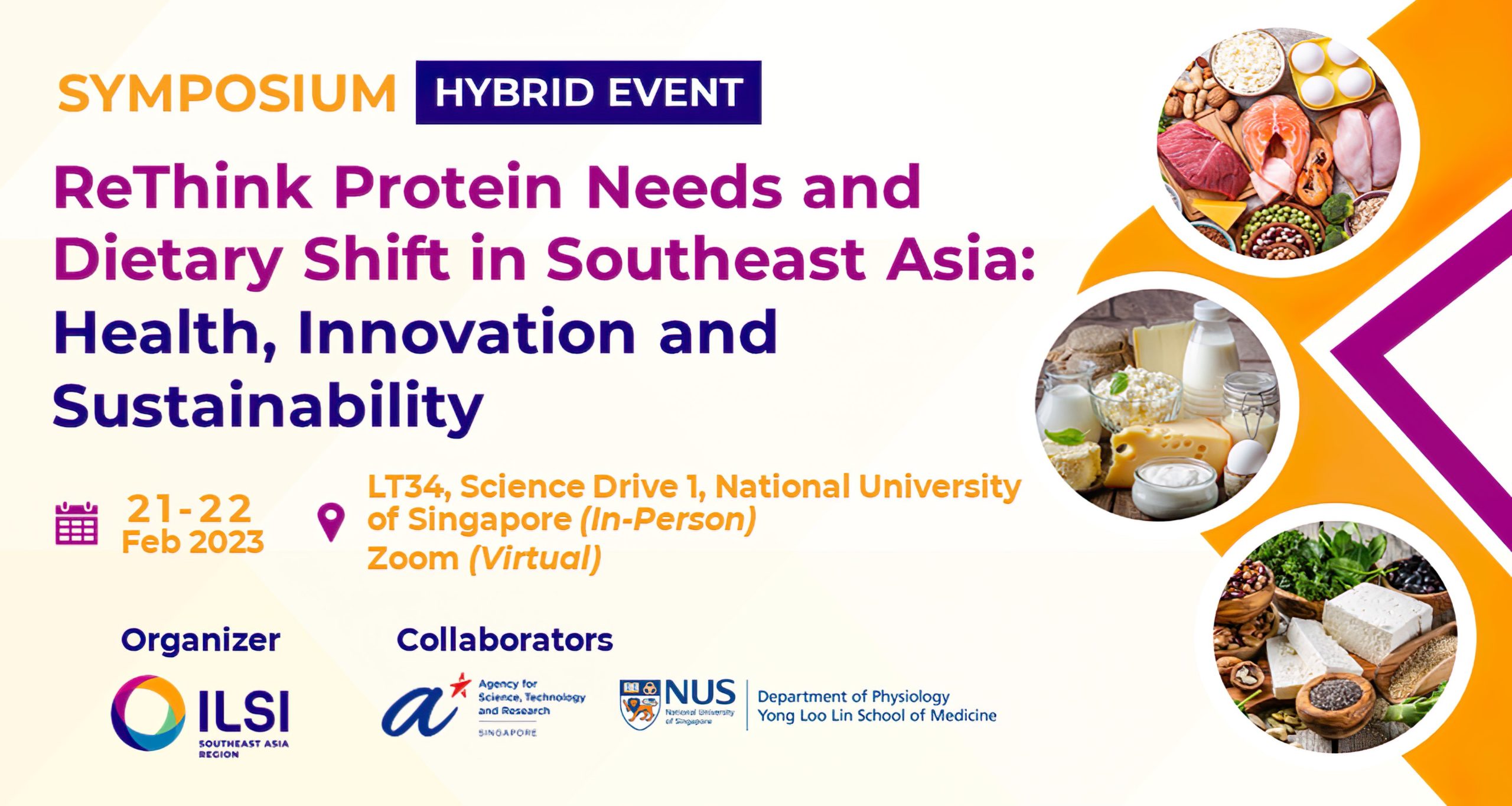 Click Here to Register
Click Here to Register
BACKGROUND
New initiatives and research by government agencies, academia, agri-technology and food sectors are reviewing protein needs in the context of production, health and sustainability. Within Southeast Asia, it is timely to re-assess protein sources, requirements and intakes, and to evaluate protein quality in our varied diets. New knowledge on protein science and novel protein sources will inform dietary recommendations, advance innovation and product development, and help address nutritional and sustainability gaps.
This symposium will bring together subject experts, researchers, health professionals, food scientists, government agencies, industry and product innovators to share and discuss the latest from research to development.
REGISTRATION
This 1.5-day symposium will be hosted in a hybrid format (In-person & virtual).
Registration Rates are as follows:
In-Person
Industry S$220.00
Academia S$150.00
Virtual S$60.00
**Virtual registration is applicable only for participants outside of Singapore.
Registration is open until February 16, 2023, 23:59 SGT.
Note: Certificate of attendance is available upon request.
PROGRAM AND SPEAKERS
DAY 1: Tuesday, February 21, 2023
Session 1: ReLook Protein Science, Requirements and Consumption Impacting Nutrition, Health and Sustainability
Expand
Chair: Prof. Reshma Taneja, Department of Physiology, Yong Loo Lin School of Medicine, National University of Singapore
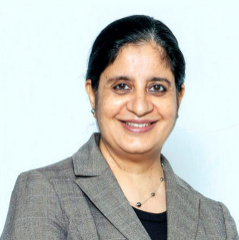 Prof. Reshma Taneja is Head of the Department of Physiology at the National University of Singapore. She obtained her Ph.D. degree from the Indian Institute of Science and completed her postdoctoral training in the laboratory of Prof Pierre Chambon at the IGBMC in France. Her own laboratory, initially at the Mount Sinai School of Medicine in New York City, and now at the National University of Singapore, has a long-standing interest in understanding skeletal muscle biology and its de-regulation in human myopathies. She has published her work in high profile journals and serves on many editorial boards as well as grant review panels locally and internationally. Prof. Reshma has received multiple awards including a Scholar Award from the Leukemia and Lymphoma Society in the USA; as well as Faculty Research, Teaching and Mentoring Awards in Singapore.
Prof. Reshma Taneja is Head of the Department of Physiology at the National University of Singapore. She obtained her Ph.D. degree from the Indian Institute of Science and completed her postdoctoral training in the laboratory of Prof Pierre Chambon at the IGBMC in France. Her own laboratory, initially at the Mount Sinai School of Medicine in New York City, and now at the National University of Singapore, has a long-standing interest in understanding skeletal muscle biology and its de-regulation in human myopathies. She has published her work in high profile journals and serves on many editorial boards as well as grant review panels locally and internationally. Prof. Reshma has received multiple awards including a Scholar Award from the Leukemia and Lymphoma Society in the USA; as well as Faculty Research, Teaching and Mentoring Awards in Singapore.
Co-chair: Mr. Geoffry Smith, ILSI SEA Region
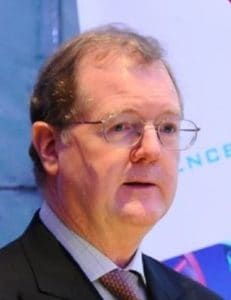 Mr. Geoffry Smith is President of ILSI Southeast Asia Region based in Singapore, and a Representative of the branch to the ILSI Global Assembly. He is also the Chairman of the Essential Micronutrients Foundation, a non-profit organization which addresses micronutrient deficiencies globally as a public health issue. In addition, he is Director of Nutrition Strategies International which deals with food and nutrition issues in developing countries. Mr. Smith serves as a member of the editorial board of the journal Food and Nutrition Bulletin. Prior to his current positions, Mr. Smith was the Global Director, Health Chelates for Akzo Nobel Functional Chemicals, and directed the global business for these compounds in food and nutrition as well as pharmaceutical applications. He was responsible for the global project within Akzo Nobel addressing iron deficiency anemia.
Mr. Geoffry Smith is President of ILSI Southeast Asia Region based in Singapore, and a Representative of the branch to the ILSI Global Assembly. He is also the Chairman of the Essential Micronutrients Foundation, a non-profit organization which addresses micronutrient deficiencies globally as a public health issue. In addition, he is Director of Nutrition Strategies International which deals with food and nutrition issues in developing countries. Mr. Smith serves as a member of the editorial board of the journal Food and Nutrition Bulletin. Prior to his current positions, Mr. Smith was the Global Director, Health Chelates for Akzo Nobel Functional Chemicals, and directed the global business for these compounds in food and nutrition as well as pharmaceutical applications. He was responsible for the global project within Akzo Nobel addressing iron deficiency anemia.
Dietary Proteins in Human Nutrition - Recent Advances
Prof. Paul Moughan, Riddet Institute Fellow Laureate, Massey University, New Zealand

Prof. Paul Moughan was appointed to the foundation chair in monogastric biology at Massey University in 1993 and from 1997-2003 was Foundation Head, Institute of Food, Nutrition and Human Health, Massey University. From 2003 until 2017 he held the position of Foundation Co-Director of the Riddet Institute, a National Centre of Research Excellence in Food Science and Human Nutrition. Prof Moughan currently holds the position of Distinguished Professor at Massey University and Riddet Institute Fellow Laureate. His research has encompassed human and animal nutrition, food chemistry, functional foods, digestive physiology and sustainable food production. He has published more than 450 scientific works. In 1995 he was awarded Doctor of Science and in 1997 was awarded a Personal Chair at Massey University and was elected a Fellow of the Royal Society of New Zealand. In 2011 he was appointed Chair of the FAO Expert Consultation to review recommendations on the characterization of dietary protein quality in humans, and has been a frequent contributor to FAO and WHO expert Committees. He has received numerous prestigious international awards for his work, including the New Zealand Prime Minister's Science Prize in 2012, the Honorary Doctor of Science from the University of Guelph, Canada in 2014, and the Wageningen University Medal of Honour in 2018. Prof Moughan sits on a number of editorial boards for scientific journals and is an adviser to the international food industry. Since 2015, he has been invited to contribute to several projects and authorships of the International Academies Partnership (IAP), including a regional IAP policy briefing for the UN Food Systems Summit.
Food Protein - Evaluating Current Supply, Consumption and Intake Guidance for Gap Identification in SE Asia
Prof. Cecilia Acuin, Associate Professor, Institute of Human Nutrition and Food, University of the Philippines Los Baños, the Philippines
 Prof. Cecilia Acuin is an Associate Professor at the Institute of Human Nutrition and Food, University of the Philippines, Los Baños and served as Senior Scientist, lead for Human Nutrition, at the International Rice Research Institute (IRRI), Philippines until May 2020.
Prof. Cecilia Acuin is an Associate Professor at the Institute of Human Nutrition and Food, University of the Philippines, Los Baños and served as Senior Scientist, lead for Human Nutrition, at the International Rice Research Institute (IRRI), Philippines until May 2020.
Prior to her work at IRRI she was also the Chief Science Research Specialist, Nutritional Assessment & Monitoring Division and Chair, Institutional Ethics Committee at the Food & Nutrition Research Institute (FNRI), Department of Science & Technology, Philippines. In this position, she was responsible for the conduct of the Philippine National Nutrition Surveys, and oversaw nutrition research projects of three Sections: the Nutritional Assessment Section, the Nutritional Statistics and Informatics Section, and the Nutritional Interventions, Evaluation and Policy Section. Her research interests are in the areas of maternal and child health and nutrition, food security, food and health systems and operations research, and risk factors of non-communicable diseases.
Dr. Acuin's involvement in multi-country research initiatives includes the following among many others: as a Member of the International Union of Nutritional Sciences Committee on Nutrition and Anthropology; and as a Consultant and Vice-Chair of the WPRO Regional Advisory Committee on Health Research in the WHO Western Pacific Region. In the Philippines, Dr. Acuin has been the Co-Chair of the Philippine National Health Research System, Research Utilization Committee; Head of the Secretariat of the Universal Health Care (UHC) Study Group; Consultant in various capacities of USAID, UNICEF, World Bank, etc., as well as for academic institutions and local organizations such as the Zuellig Family Foundation among others. She obtained her Ph.D. in Nutrition with minors in Nutritional Epidemiology and Risk Communication from Cornell University, USA.
Session 2: Review and Assess Protein Quality and Dietary Shifts
Expand
Chair: Prof. Reshma Taneja, Department of Physiology,
Yong Loo Lin School of Medicine, National University of Singapore
Co-chair: Mr. Geoffry Smith, ILSI SEA Region
Assessing Protein Quality of Sustainable Food Sources to Improve Nutrition in Asia
Assoc. Prof. Wantanee Kriengsinyos, Associate Professor, Institute of Nutrition, Mahidol University, Thailand
 Dr. Wantanee Kriengsinyos has 20 years of professional experience in clinical nutrition and dietetics. Her current research involves metabolic studies of food products in development of non-communicable diseases (NCDs); body composition and energy expenditure; diet and behavior modification for patients with diet-related chronic diseases; and protein quality and amino-acid metabolism. Over the past 5 years, Dr. Kriengsinyos has also developed experience in nutrition policy and was a part of the team that successfully worked to ban partially-hydrogenated oils in Thailand. She currently leads a promotion project on implementation of healthier food logos to combat NCDs through reduction of sugar, fat, and sodium consumption in the Thai population. Currently, Dr. Kriengsinyos is chair of the Master of Science in Nutrition and Dietetics program at the Institute of Nutrition, Mahidol University. She received a doctorate in Nutritional Sciences at the University of Toronto, Canada, and holds a Registered Dietitian credential from the United States.
Dr. Wantanee Kriengsinyos has 20 years of professional experience in clinical nutrition and dietetics. Her current research involves metabolic studies of food products in development of non-communicable diseases (NCDs); body composition and energy expenditure; diet and behavior modification for patients with diet-related chronic diseases; and protein quality and amino-acid metabolism. Over the past 5 years, Dr. Kriengsinyos has also developed experience in nutrition policy and was a part of the team that successfully worked to ban partially-hydrogenated oils in Thailand. She currently leads a promotion project on implementation of healthier food logos to combat NCDs through reduction of sugar, fat, and sodium consumption in the Thai population. Currently, Dr. Kriengsinyos is chair of the Master of Science in Nutrition and Dietetics program at the Institute of Nutrition, Mahidol University. She received a doctorate in Nutritional Sciences at the University of Toronto, Canada, and holds a Registered Dietitian credential from the United States.
Protein Intake, Requirements, and Dietary Shift in SE Asia - Opportunities and Challenges
Prof. Christiani Jeyakumar Henry, Deputy Executive Director, Singapore Institute of Food and Biotechnology Innovation, A*STAR, Singapore
 Prof. Christiani Jeyakumar Henry is currently the Deputy Executive Director of the Singapore Institute of Food and Biotechnology Innovation (SIFBI) and the director of the Clinical Nutrition Research Centre. He initially trained as a food scientist and subsequently obtained his MSc and PhD in Nutrition from the London School of Hygiene and Tropical Medicine. He was instrumental in the development & launch of the UK's first dedicated Functional Food Centre. Professor Henry has served on several committees including the UK Committee on Medical Aspects of Food & Nutrition Policy (COMA) panel on novel foods, was a board member of the UK Food Standards Agency and was a member of the General Advisory Committee on Science (GACS) of the Food Standard Agency (FSA). He also served as a panel member on the UK Department for International Development (DFID) health and population research committee and was a member of the research panel of the UK Crop post-harvest Technology. He was a Royal Society visiting professor at the Chinese University of Hong Kong & continues to remain a visiting professor at the same university.
Prof. Christiani Jeyakumar Henry is currently the Deputy Executive Director of the Singapore Institute of Food and Biotechnology Innovation (SIFBI) and the director of the Clinical Nutrition Research Centre. He initially trained as a food scientist and subsequently obtained his MSc and PhD in Nutrition from the London School of Hygiene and Tropical Medicine. He was instrumental in the development & launch of the UK's first dedicated Functional Food Centre. Professor Henry has served on several committees including the UK Committee on Medical Aspects of Food & Nutrition Policy (COMA) panel on novel foods, was a board member of the UK Food Standards Agency and was a member of the General Advisory Committee on Science (GACS) of the Food Standard Agency (FSA). He also served as a panel member on the UK Department for International Development (DFID) health and population research committee and was a member of the research panel of the UK Crop post-harvest Technology. He was a Royal Society visiting professor at the Chinese University of Hong Kong & continues to remain a visiting professor at the same university.
Intake of Animal and other Protein Source Foods and the Nutritional Significance on Infants and Young Children in SE Asia (Virtual Presentation)
Dr. Umi Fahmida, Senior Researcher & Program Coordinator, SEAMEO RECFON, Indonesia
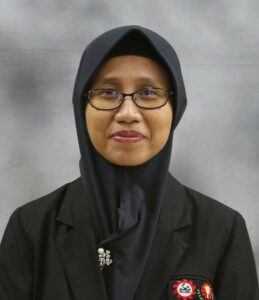 Dr. Umi Fahmida is a Senior Researcher and Program Coordinator of Early Childhood Care, Nutrition, and Education (ECCNE) at Southeast Asian Ministers of Education Organization Regional Centre for Food and Nutrition (SEAMEO RECFON), Universitas Indonesia, Jakarta, Indonesia. She holds Ph.D. in Nutrition and MSc in Community Nutrition from Faculty of Medicine at Universitas Indonesia and Bachelor in Agriculture Technology from Faculty of Agriculture Technology at Bogor Agriculture University. Her research interests are in the nutrient and non-nutrient interaction related to child growth and development. In the past 20 years, she has been working with diet modelling using linear/goal programming (LP) to develop and evaluate food-based recommendations, and to use the identified nutrient gap to develop food multi-mix using locally-available nutrient-dense foods. Under "Model of partnership to translate guidelines into practices for the optimal diet of Southeast Asia community", Dr. Fahmida and her team promoted the LP approach in Indonesia, Cambodia, Lao PDR, Malaysia, Myanmar, and the Philippines for both communities, school and workplace settings. Currently, she is involved in the UK Research and Innovation (UKRI) Global Challenges Research Fund (GCRF) Action Against Stunting Hub, an interdisciplinary multi-centre multi-country study, as Country Lead for Indonesia.
Dr. Umi Fahmida is a Senior Researcher and Program Coordinator of Early Childhood Care, Nutrition, and Education (ECCNE) at Southeast Asian Ministers of Education Organization Regional Centre for Food and Nutrition (SEAMEO RECFON), Universitas Indonesia, Jakarta, Indonesia. She holds Ph.D. in Nutrition and MSc in Community Nutrition from Faculty of Medicine at Universitas Indonesia and Bachelor in Agriculture Technology from Faculty of Agriculture Technology at Bogor Agriculture University. Her research interests are in the nutrient and non-nutrient interaction related to child growth and development. In the past 20 years, she has been working with diet modelling using linear/goal programming (LP) to develop and evaluate food-based recommendations, and to use the identified nutrient gap to develop food multi-mix using locally-available nutrient-dense foods. Under "Model of partnership to translate guidelines into practices for the optimal diet of Southeast Asia community", Dr. Fahmida and her team promoted the LP approach in Indonesia, Cambodia, Lao PDR, Malaysia, Myanmar, and the Philippines for both communities, school and workplace settings. Currently, she is involved in the UK Research and Innovation (UKRI) Global Challenges Research Fund (GCRF) Action Against Stunting Hub, an interdisciplinary multi-centre multi-country study, as Country Lead for Indonesia.
Session 3: Protein and Health - Research and Guidance for Optimal Functional Benefits
Expand
Chair: Prof. David Cameron-Smith, School of Environmental and Life Sciences, University of Newcastle, Australia
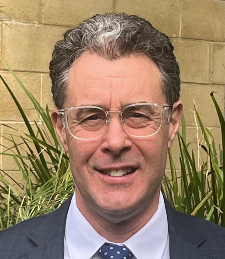 Prof. David Cameron-Smith is currently Professor of Food Innovation and leading the development of a Centre of Food and Agri-business Innovation, University of Newcastle, Australia. Prof Cameron-Smith was appointed to this role in March 2022 after more than 25 years of human nutrition research and strategic science leadership, including serving as Senior Principal Investigator, Singapore Institute of Clinical Sciences (2019-22). His scientific research includes a detailed understanding of how high protein foods and beverages impact human health (including personalised nutrition), ageing malnutrition risk, muscular loss, gut health and mood. This includes leading 19 registered clinical trials and publishing 300+ scientific papers.
Prof. David Cameron-Smith is currently Professor of Food Innovation and leading the development of a Centre of Food and Agri-business Innovation, University of Newcastle, Australia. Prof Cameron-Smith was appointed to this role in March 2022 after more than 25 years of human nutrition research and strategic science leadership, including serving as Senior Principal Investigator, Singapore Institute of Clinical Sciences (2019-22). His scientific research includes a detailed understanding of how high protein foods and beverages impact human health (including personalised nutrition), ageing malnutrition risk, muscular loss, gut health and mood. This includes leading 19 registered clinical trials and publishing 300+ scientific papers.
Co-chair: Mr. Geoffry Smith, ILSI SEA Region
Exercise, Nutrition & Muscle Health (Virtual Presentation)
Prof. Stuart Phillips, Professor, Department of Kinesiology, McMaster University, Canada

Prof. Stuart Phillips is a Tier 1 Canada Research Chair in Skeletal Muscle Health. He is also the Director of the McMaster University Physical Activity Centre of Excellence. Dr. Phillips has authored more than 350 research papers. In 2018-22 he was named to Clarivate's Highly Cited Researchers list as being in the top 1% of all cited researchers in nutrition and physiology research. Dr. Phillips is a fellow of the American College of Sports Medicine and the Canadian Academy of Health Sciences.
Understanding Protein Homeostasis - Improving Protein Metabolism and Reducing Sarcopenia
Prof. Shih-Yin Tsai, Assistant Professor, Department of Physiology, Yong Loo Lin School of Medicine, National University of Singapore
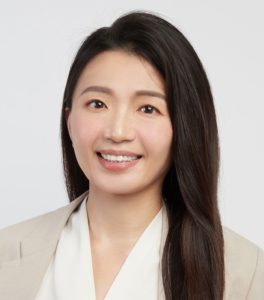 Assistant Professor Shih-Yin Tsai received her Ph.D. in Dr. Gustavo Leone's lab at the Ohio State University (2009), where she studied the mechanisms by which mammalian E2F transcription factors control cell proliferation. She showed the functional redundancy among E2F activators during development and the specific roles of E2F family members during long-term maintenance. After her Ph.D., she did her postdoctoral training in Dr. Brian Kennedy's lab at the University of Washington and continued her research at the Buck Institute. She investigated the role of mTORC1 downstream translation effecter, 4E-BP1, in regulating metabolic homeostasis during the progression of type II diabetes and aging. Since February 2017, she started her lab as an Assistant Professor at the Department of Physiology at the National University of Singapore. Her study focuses on exploring how protein homeostasis in the regulation of muscle health. Using transgenic mouse models and primary 3D in vitro models of skeletal muscle, her lab studies the aging process at molecular levels to provide an explicit picture of muscle aging for potential therapeutic usage.
Assistant Professor Shih-Yin Tsai received her Ph.D. in Dr. Gustavo Leone's lab at the Ohio State University (2009), where she studied the mechanisms by which mammalian E2F transcription factors control cell proliferation. She showed the functional redundancy among E2F activators during development and the specific roles of E2F family members during long-term maintenance. After her Ph.D., she did her postdoctoral training in Dr. Brian Kennedy's lab at the University of Washington and continued her research at the Buck Institute. She investigated the role of mTORC1 downstream translation effecter, 4E-BP1, in regulating metabolic homeostasis during the progression of type II diabetes and aging. Since February 2017, she started her lab as an Assistant Professor at the Department of Physiology at the National University of Singapore. Her study focuses on exploring how protein homeostasis in the regulation of muscle health. Using transgenic mouse models and primary 3D in vitro models of skeletal muscle, her lab studies the aging process at molecular levels to provide an explicit picture of muscle aging for potential therapeutic usage.
Protein and Bone Health, Micrnutrient Intakes, and Different Protein Sources (Virtual Presentation)
Dr. Kiran Bains, Head, Department of Food and Nutrition, Punjab Agricultural University, India
 Dr. Kiran Bains is presently working as Head, Dept. of Food and Nutrition, PAU, Ludhiana. She has handled 12 adhoc research projects and guided 25 M.Sc. and 9 Ph.D. students. She has worked at Center of Innovative and Applied Bioprocessing (CIAB), Mohali as sabbatical faculty. She has achieved a competitive project funded by Harvest Plus, IFPRI, Washington DC in 2011 on assessment of zinc status of children and women. She has completed three projects funded by World Vegetable Center, Taiwan and a consultancy project funded by UNFPA. She is currently working on a project funded by Nestle India Limited. She has been invited by The World Vegetable Center, Taiwan and Riddet Centre, Massey University New Zealand as visiting fellow in the year 2003 and 2007, respectively. She has represented India at International Workshop to exchange best practices in nutrition awareness programs participated by representatives of 35 countries in 2010 at London, U.K. She had been nominated by government of India to attend Indo New Zealand Workshop on 'Food and Agriculture' at Lincoln University, Christchurch and Massey University, New Zealand in 2011. She has published 125 research papers, 7 book chapters, 14 manual chapters, 5 booklets/pamphlets and 30 popular articles. She has contributed in the development of "Regional adaptation and update of food item based dietary guidelines of National Institute of Nutrition (NIN) with emphasis on cardiovascular diseases. Presently she is convener of Ludhiana chapter of Nutrition Society of India (NSI). Her research activities are mainly focused on micronutrient deficiencies; bioavailability of minerals; energy, protein and iron status of population groups.
Dr. Kiran Bains is presently working as Head, Dept. of Food and Nutrition, PAU, Ludhiana. She has handled 12 adhoc research projects and guided 25 M.Sc. and 9 Ph.D. students. She has worked at Center of Innovative and Applied Bioprocessing (CIAB), Mohali as sabbatical faculty. She has achieved a competitive project funded by Harvest Plus, IFPRI, Washington DC in 2011 on assessment of zinc status of children and women. She has completed three projects funded by World Vegetable Center, Taiwan and a consultancy project funded by UNFPA. She is currently working on a project funded by Nestle India Limited. She has been invited by The World Vegetable Center, Taiwan and Riddet Centre, Massey University New Zealand as visiting fellow in the year 2003 and 2007, respectively. She has represented India at International Workshop to exchange best practices in nutrition awareness programs participated by representatives of 35 countries in 2010 at London, U.K. She had been nominated by government of India to attend Indo New Zealand Workshop on 'Food and Agriculture' at Lincoln University, Christchurch and Massey University, New Zealand in 2011. She has published 125 research papers, 7 book chapters, 14 manual chapters, 5 booklets/pamphlets and 30 popular articles. She has contributed in the development of "Regional adaptation and update of food item based dietary guidelines of National Institute of Nutrition (NIN) with emphasis on cardiovascular diseases. Presently she is convener of Ludhiana chapter of Nutrition Society of India (NSI). Her research activities are mainly focused on micronutrient deficiencies; bioavailability of minerals; energy, protein and iron status of population groups.
Protein & Amino Acids - Optimizing Immunity (Virtual Presentation)
Prof. Philip Calder, Professor, Nutritional Immunology, & Head, School of Human Development & Health, University of Southampton, United Kingdom

Prof. Philip Calder is Professor of Nutritional Immunology and Head of the School of Human Development and Health, Faculty of Medicine, University of Southampton, United Kingdom. He obtained his PhD in Biochemistry in 1987 and spent 8 years at the University of Oxford, before his appointment at the University of Southampton in 1995. Prof Calder is an internationally recognised researcher on a) nutritional immunology, and b) metabolism and functionality of fatty acids with an emphasis on the roles of omega-3 fatty acids. He has received many awards and prizes for his work including the Normann Medal (German Society of Fat Science; 2009), the Ralph Holman Lifetime Achievement Award (American Oil Chemists' Society; 2015), the Danone International Prize for Nutrition (2016), the DSM Lifetime Achievement Prize in Human Nutrition (2017) and the European Lipid Science Award (2021). Prof Calder was President of the International Society for the Study of Fatty Acids and Lipids (2009-2012), Chair of the Scientific Committee of the European Society for Clinical Nutrition and Metabolism (2012-2016), President of the Nutrition Society (2016-2019), and President of ILSI Europe (2019-2021). He was also the Editor-in-Chief of the British Journal of Nutrition (2006- 2013) and is now the Associate Editor of Clinical Science, Journal of Nutrition and Annals of Nutrition and Metabolism. He is currently President of the Federation of European Nutrition Societies.
Protein and Musculoskeletal Health over the Life Course
Prof. Andrea Maier, Co-Director, Centre for Healthy Longevity, Yong Loo Lin School of Medicine, National University of Singapore
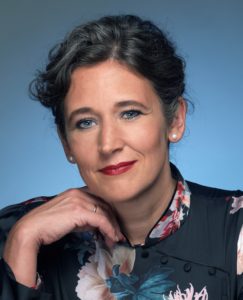
Prof. Andrea Maier (1978), a Fellow of the Royal Australasian College of Physicians (FRACP), graduated in Medicine (MD) 2003 from the University of Lübeck (Germany), was registered 2009 in The Netherlands as Specialist in Internal Medicine-Geriatrics and was appointed Full Professor of Gerontology at Vrije Universiteit Amsterdam (The Netherlands) in 2013. She was the head of Geriatrics at the Vrije Universiteit Medical Center from 2012 to 2016. From 2016 to early 2021 Professor Maier served as Divisional Director of Medicine and Community Care at the Royal Melbourne Hospital, Australia, and as Professor of Medicine and Aged Care at the University of Melbourne, Australia. She continued her career at the National University of Singapore as Co-Director of the Centre for Healthy Longevity. Professor Maier's research focuses on unraveling the mechanisms of ageing and age-related diseases. She is heading international longitudinal cohort studies and geroscience interventions. During the last 12 years she has published more than 370 peer-reviewed articles, achieving an H index of 68, spearheading the significant contributions of her highly acclaimed innovative, global, multidisciplinary @Age research group. She is a frequent guest on radio and television programs to disseminate aging research and an invited member of several international academic and health policy committees, including the WHO. She is the past President of The Australian and New Zealand Society for Sarcopenia and Frailty Research, the Founding President of the Healthy Longevity Medicine Society and serves as selected Member of The Royal Holland Society of Sciences and Humanities.
DAY 2: Wednesday, February 22, 2023
Session 4: Future of Protein - Technologies and Value Proposition of Alternative and Complementary Sources
Expand
Chair: Prof. Zhou Weibiao, Department of Food Science and Technology, National University of Singapore
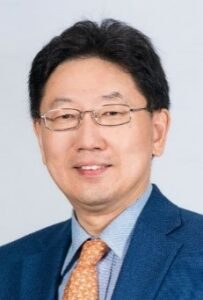 Prof. Weibiao Zhou is the foundation Head of the Department of Food Science and Technology and the inaugural Cheng Tsang Man Chair Professor in Food Science and Technology, National University of Singapore (NUS). Trained originally in chemical engineering, he has been working as a food scientist for over 30 years in multiple countries including Australia, China, France, Spain and USA. Among his many professional appointments and honours are: Elected Fellow of Singapore National Academy of Science (SNAS), International Academy of Food Science and Technology (IAFoST), Australian Institute of Food Science and Technology (AIFST), Royal Society of Chemistry (RSC), the UK, Singapore Institute of Food Science and Technology (SIFST); Chair, Advisory Committee on Evaluation of Health Claims, Singapore Food Agency (SFA); Editor for Food Control (published by Elsevier) and Associate Editor for npj Science of Food (published by Nature).
Prof. Weibiao Zhou is the foundation Head of the Department of Food Science and Technology and the inaugural Cheng Tsang Man Chair Professor in Food Science and Technology, National University of Singapore (NUS). Trained originally in chemical engineering, he has been working as a food scientist for over 30 years in multiple countries including Australia, China, France, Spain and USA. Among his many professional appointments and honours are: Elected Fellow of Singapore National Academy of Science (SNAS), International Academy of Food Science and Technology (IAFoST), Australian Institute of Food Science and Technology (AIFST), Royal Society of Chemistry (RSC), the UK, Singapore Institute of Food Science and Technology (SIFST); Chair, Advisory Committee on Evaluation of Health Claims, Singapore Food Agency (SFA); Editor for Food Control (published by Elsevier) and Associate Editor for npj Science of Food (published by Nature).
Co-chair: Dr. Andrew Wan, Singapore Institute of Food and Biotechnology Innovation, A*STAR, Singapore
 Dr. Andrew Wan is Principal Investigator at the Singapore Institute of Food and Biotechnology Innovation (SIFBI), where his research is focussed on the engineering of plant-based and cultured meat. His team's current research is built on their previous innovative work in 3D-cell culture and tissue engineering, which has been published in top tier journals such as Nature Communications and Nature Nanotechnology. He has been invited to speak at various international meetings, such as the International Symposium on Cultured Meat and International Society of Materials for Regenerative Medicine (ISOMRM) meetings. Prior to joining SIFBI, Dr Wan was Principal Research Scientist at the Institute of Bioengineering and Nanotechnology (2004-2021). He held an adjunct position at the Department of Chemistry, NUS, from 2006 to 2011 and served on the Editorial board of the journal Nanomedicine: Nanotechnology, Biology, and Medicine from 2009-2016. He has served as a panel expert at MOE, Singapore, and was selected to join its delegation to ISEF 2016 as Grand Award Judge. Based on his achievements, he was listed amongst the top 2% of scientists in Bioengineering (2020 Stanford study).
Dr. Andrew Wan is Principal Investigator at the Singapore Institute of Food and Biotechnology Innovation (SIFBI), where his research is focussed on the engineering of plant-based and cultured meat. His team's current research is built on their previous innovative work in 3D-cell culture and tissue engineering, which has been published in top tier journals such as Nature Communications and Nature Nanotechnology. He has been invited to speak at various international meetings, such as the International Symposium on Cultured Meat and International Society of Materials for Regenerative Medicine (ISOMRM) meetings. Prior to joining SIFBI, Dr Wan was Principal Research Scientist at the Institute of Bioengineering and Nanotechnology (2004-2021). He held an adjunct position at the Department of Chemistry, NUS, from 2006 to 2011 and served on the Editorial board of the journal Nanomedicine: Nanotechnology, Biology, and Medicine from 2009-2016. He has served as a panel expert at MOE, Singapore, and was selected to join its delegation to ISEF 2016 as Grand Award Judge. Based on his achievements, he was listed amongst the top 2% of scientists in Bioengineering (2020 Stanford study).
Proteomics Applied to Novel Protein Sources -Risks and Benefits (Virtual Presentation)
Prof. Michelle Colgrave, Deputy Director, CSIRO Agriculture and Food, Australia
 Prof. Michelle Colgrave is the Deputy Director (Impact) for CSIRO Agriculture and Food, based in Brisbane, Australia. She is a Professor of Food and Agricultural Proteomics, and chief investigator on the Australian Research Council Centre of Excellence for Innovations in Peptide and Protein Science. Her research interests include the application of proteomics, the study of proteins using mass spectrometry, to agriculture and food science to the benefit of human health. Professor Michelle Colgrave led CSIRO's Future Protein Mission, a program centred on principles of sustainable growth delivering high quality, affordable and nutritionally optimised protein for Australia. The mission will develop protein-based industries (including traditional protein, plant-based protein, insect and microbial protein) along the value chain from production to the customer, delivering premium protein ingredients and products, addressing the rapid growth of the protein-based sector.
Prof. Michelle Colgrave is the Deputy Director (Impact) for CSIRO Agriculture and Food, based in Brisbane, Australia. She is a Professor of Food and Agricultural Proteomics, and chief investigator on the Australian Research Council Centre of Excellence for Innovations in Peptide and Protein Science. Her research interests include the application of proteomics, the study of proteins using mass spectrometry, to agriculture and food science to the benefit of human health. Professor Michelle Colgrave led CSIRO's Future Protein Mission, a program centred on principles of sustainable growth delivering high quality, affordable and nutritionally optimised protein for Australia. The mission will develop protein-based industries (including traditional protein, plant-based protein, insect and microbial protein) along the value chain from production to the customer, delivering premium protein ingredients and products, addressing the rapid growth of the protein-based sector.
Prof Colgrave is internationally recognised for the development and application of MS techniques for the quantification of gluten (e.g., hordeins in barley; gliadins and glutenins in wheat). The success of this research has been recognized by receipt of the Bowie Medal (ANZSMS), the ICM Agrifood Award (Australian Academy of Technological Sciences and Engineering (ATSE) Innovation and Excellence Awards, 2020), CSIRO Chairman's Medal (2016), and more. Prof. Colgrave received both her B.Sc. and PhD. at the University of Wollongong, Australia. She was recently elected as a Fellow of ATSE for her services to the Agriculture and Food sectors.
Plant-based Meats - Challenges, Market Overview and Available Technologies
Dr.Christian Carrillo, Head, Technology for SEA & Oceania, Bühler Group, Singapore
 Dr. Christian Carrillo is a distinguished leader in the food industry with over a decade of experience driving innovation and sustainability through impactful manufacturing processes. As the Head of Technology for SEA and Oceania at Bühler, he is at the forefront of emerging technologies, leading the development of R&D roadmaps for the Protein Innovation Centre in Singapore. Christian's education began in Switzerland, where he specialized in designing cutting-edge grain processing plants. Since then, he has been stationed in various Bühler offices worldwide, contributing significantly to scaling up Bühler's technology footprint in alternative proteins, with a particular focus on the segment of meat analogue production. As a visionary, Christian is passionate about creating novel solutions to reduce CO2 emissions and drive sustainable practices within the industry. His expertise in designing different food and feed manufacturing processes has been instrumental in Bühler's continued success in providing industrial solutions. Outside of work, Christian is an avid chef, experimenting with new plant-based product recipes and bringing his passion for sustainability to the table. His deep commitment to innovation and sustainability is a testament to his unique vision and leadership in the food industry.
Dr. Christian Carrillo is a distinguished leader in the food industry with over a decade of experience driving innovation and sustainability through impactful manufacturing processes. As the Head of Technology for SEA and Oceania at Bühler, he is at the forefront of emerging technologies, leading the development of R&D roadmaps for the Protein Innovation Centre in Singapore. Christian's education began in Switzerland, where he specialized in designing cutting-edge grain processing plants. Since then, he has been stationed in various Bühler offices worldwide, contributing significantly to scaling up Bühler's technology footprint in alternative proteins, with a particular focus on the segment of meat analogue production. As a visionary, Christian is passionate about creating novel solutions to reduce CO2 emissions and drive sustainable practices within the industry. His expertise in designing different food and feed manufacturing processes has been instrumental in Bühler's continued success in providing industrial solutions. Outside of work, Christian is an avid chef, experimenting with new plant-based product recipes and bringing his passion for sustainability to the table. His deep commitment to innovation and sustainability is a testament to his unique vision and leadership in the food industry.
Bioprocessing for Innovative Alternative Proteins- Cultivated Meat, Fermentation-derived Products & Plant-based Meat
Dr. Deepak Choudhury, Senior Scientist & Group Leader, Biomanufacturing Technology, Bioprocessing Technology Institute, A*STAR, Singapore
 Dr. Deepak Choudhury is currently a Senior Scientist and Group Leader of Biomanufacturing Technology at Bioprocessing Technology Institute (BTI), A*STAR, Singapore. His primary research interests include biomaterials and biofabrication processes for Cellular Ag applications and biomanufacturing biomaterials for regenerative medicine. Dr Choudhury and his team have published numerous unique insights into the Cultivated meat (CM) field - starting with a cover story article on "The business of cultured meat", which catalogued the various CM companies, meat focus for the first time, funding landscape etc. The team wrote two more analyses in 2020 to comprehend the nomenclature and impact of 3D printing in CM space. These were followed up with impactful reviews articulating the state of edible scaffolds, discussions on a developing CM ecosystem as well as the impact of fermentation on this nascent industry in 2021 and 2022, respectively. This also included the very first patentometric analysis of the CM field - Cultured meat-a patentometric analysis. Dr Choudhury has been an active reviewer of technical and review journal articles in the alternative proteins/cultivated meat space, including for Nature Food, NPJ Science of Food, Future Foods, Critical Reviews in Food Science and Nutrition, Trends in Food Science and Technology etc. He was recently selected to be part of the expert technical panel for an Expert Consultation session on "Scientific advice on cell-based food products and food safety considerations", organized by the Food and Agriculture Organization of the United Nations (FAO) in Collaboration with WHO. He is also part of the working group under the European Academies' Science Advisory Council (EASAC) Biosciences Programme on "Meat Alternatives". He is an award recipient of the 1st Alternative Protein Seed Challenge under the Singapore Food Story (SFS) R&D Programme, as well as a Co-Investigator of CentRe of Innovation for Sustainable banking and production of cultivated Meats (CRISP Meats), also funded by SFS.
Dr. Deepak Choudhury is currently a Senior Scientist and Group Leader of Biomanufacturing Technology at Bioprocessing Technology Institute (BTI), A*STAR, Singapore. His primary research interests include biomaterials and biofabrication processes for Cellular Ag applications and biomanufacturing biomaterials for regenerative medicine. Dr Choudhury and his team have published numerous unique insights into the Cultivated meat (CM) field - starting with a cover story article on "The business of cultured meat", which catalogued the various CM companies, meat focus for the first time, funding landscape etc. The team wrote two more analyses in 2020 to comprehend the nomenclature and impact of 3D printing in CM space. These were followed up with impactful reviews articulating the state of edible scaffolds, discussions on a developing CM ecosystem as well as the impact of fermentation on this nascent industry in 2021 and 2022, respectively. This also included the very first patentometric analysis of the CM field - Cultured meat-a patentometric analysis. Dr Choudhury has been an active reviewer of technical and review journal articles in the alternative proteins/cultivated meat space, including for Nature Food, NPJ Science of Food, Future Foods, Critical Reviews in Food Science and Nutrition, Trends in Food Science and Technology etc. He was recently selected to be part of the expert technical panel for an Expert Consultation session on "Scientific advice on cell-based food products and food safety considerations", organized by the Food and Agriculture Organization of the United Nations (FAO) in Collaboration with WHO. He is also part of the working group under the European Academies' Science Advisory Council (EASAC) Biosciences Programme on "Meat Alternatives". He is an award recipient of the 1st Alternative Protein Seed Challenge under the Singapore Food Story (SFS) R&D Programme, as well as a Co-Investigator of CentRe of Innovation for Sustainable banking and production of cultivated Meats (CRISP Meats), also funded by SFS.
Plant and Animal Proteins -Nutritional Profiles and Impact on Sustainability Metrics using Life Cycle Assessment (Virtual Presentation)
Prof. Sarah McLaren, Professor, School of Agriculture and Environment, Massey University, New Zealand
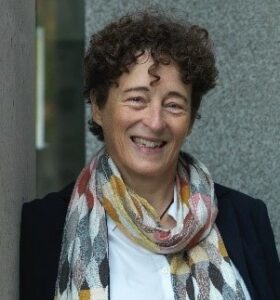 Professor Sarah McLaren is Director of the New Zealand Life Cycle Management Centre (NZLCM Centre), and Professor in Life Cycle Management at Massey University, New Zealand (NZ). Her research focuses on development and application of Life Cycle Assessment (LCA) and related approaches such as planetary boundaries, industrial ecology and the circular economy. Prof McLaren has promoted uptake of Life Cycle Management in New Zealand as a founding Committee member of the Life Cycle Association of New Zealand (LCANZ) and member of the Technical Advisory Group of the Australasian Environmental Product Declaration (EPD) Programme. She has served on the Office of the Prime Minister's Chief Science Advisor's Rethinking Plastics Panel, Ministry for the Environment's Planetary Boundaries NZ Advisory Board, and represented NZ on the ISO Water Footprint Working Group. She works with organisations such as the Food and Agriculture Organisation of the United Nations (FAO), Building Research Association of New Zealand (BRANZ), BEACON Bioeconomy Research Centre Ireland, and the NZ Food Awards to translate Life Cycle Management into practical action.
Professor Sarah McLaren is Director of the New Zealand Life Cycle Management Centre (NZLCM Centre), and Professor in Life Cycle Management at Massey University, New Zealand (NZ). Her research focuses on development and application of Life Cycle Assessment (LCA) and related approaches such as planetary boundaries, industrial ecology and the circular economy. Prof McLaren has promoted uptake of Life Cycle Management in New Zealand as a founding Committee member of the Life Cycle Association of New Zealand (LCANZ) and member of the Technical Advisory Group of the Australasian Environmental Product Declaration (EPD) Programme. She has served on the Office of the Prime Minister's Chief Science Advisor's Rethinking Plastics Panel, Ministry for the Environment's Planetary Boundaries NZ Advisory Board, and represented NZ on the ISO Water Footprint Working Group. She works with organisations such as the Food and Agriculture Organisation of the United Nations (FAO), Building Research Association of New Zealand (BRANZ), BEACON Bioeconomy Research Centre Ireland, and the NZ Food Awards to translate Life Cycle Management into practical action.
Session 5: Innovations to Meet Consumer Acceptance and Regulatory Science Development
Expand
Chair: Dr. Andrew Wan, Singapore Institute of Food and Biotechnology Innovation, A*STAR, Singapore
Co-chair: Dr. Francisco Codoner, ScaleUp Bio Pte Ltd, Singapore
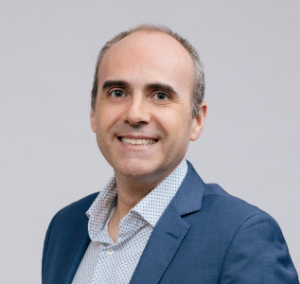 As CEO of ScaleUp Bio, Dr. Francisco (Paco) Codoñer, is on a mission to bring healthy, safe and nutritious food to as many people as possible in the most sustainable way. Paco was most recently based in Utrecht, the Netherlands, as the senior team leader of the systems biology team for Danone Nutricia Research, the global research and innovation arm of French food giant Danone. He is no stranger to Asia, as Paco has lived and worked in the region from 2019 to 2021 in his capacity as Head of the microbiome centre for Danone Nutricia Research in Singapore. Prior to his first assignment in Asia, Paco served as joint CEO and Chief Scientific Officer (CSO) from 2010 to 2019 for cutting-edge biotech company Lifesequencing based in Valencia, Spain. Earlier in his career, Paco specialized in research and development (R&D) for the microbial field in institutions such as Trinity College Dublin in Ireland, Muenster University in Germany and the AIDS Research Institute in Spain. A Spanish national, Paco holds a Bachelor of Science degree in Molecular Genetics, a Master of Science degree in Molecular Evolutionary Genetics and a PhD in Biology (Molecular Genetics and Bioinformatics) from the University of Valencia. He also holds a Master of Science degree in Bioinformatics from the Universidad Autónoma de Madrid.
As CEO of ScaleUp Bio, Dr. Francisco (Paco) Codoñer, is on a mission to bring healthy, safe and nutritious food to as many people as possible in the most sustainable way. Paco was most recently based in Utrecht, the Netherlands, as the senior team leader of the systems biology team for Danone Nutricia Research, the global research and innovation arm of French food giant Danone. He is no stranger to Asia, as Paco has lived and worked in the region from 2019 to 2021 in his capacity as Head of the microbiome centre for Danone Nutricia Research in Singapore. Prior to his first assignment in Asia, Paco served as joint CEO and Chief Scientific Officer (CSO) from 2010 to 2019 for cutting-edge biotech company Lifesequencing based in Valencia, Spain. Earlier in his career, Paco specialized in research and development (R&D) for the microbial field in institutions such as Trinity College Dublin in Ireland, Muenster University in Germany and the AIDS Research Institute in Spain. A Spanish national, Paco holds a Bachelor of Science degree in Molecular Genetics, a Master of Science degree in Molecular Evolutionary Genetics and a PhD in Biology (Molecular Genetics and Bioinformatics) from the University of Valencia. He also holds a Master of Science degree in Bioinformatics from the Universidad Autónoma de Madrid.
Improving functionality of plant proteins - Opportunities and Challenges
Dr. Shaun Sim, Senior Research Fellow, Singapore Institute of Food and Biotechnology Innovation, A*STAR, Singapore
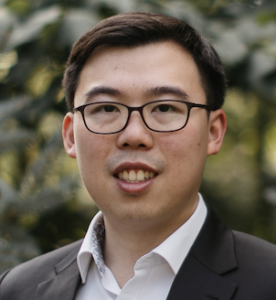 Dr. Shaun Sim is a Senior Research Fellow at A*STAR's Clinical Nutrition Research Centre (CNRC). He received his Ph.D in Food Engineering at Cornell University and his B.A. (Hons.) in Chemistry from the University of Cambridge. Sim is developing innovative food science for constructing future foods and ingredients with nutritional advantages. His team focuses on plant-based proteins and fats; egg and dairy alternatives; high-pressure processing and other novel technologies. Some products developed by his group include high-protein plant-based yoghurts and pastries made using healthier plant-based solid fats.
Dr. Shaun Sim is a Senior Research Fellow at A*STAR's Clinical Nutrition Research Centre (CNRC). He received his Ph.D in Food Engineering at Cornell University and his B.A. (Hons.) in Chemistry from the University of Cambridge. Sim is developing innovative food science for constructing future foods and ingredients with nutritional advantages. His team focuses on plant-based proteins and fats; egg and dairy alternatives; high-pressure processing and other novel technologies. Some products developed by his group include high-protein plant-based yoghurts and pastries made using healthier plant-based solid fats.
Novel Alternative and Complementary Protein Innovations:
Introduction to Multi-Institution Collaborative Project - Protein4Singapore (P4SG)
Dr. Stefan Klade, Director, Research & Innovation, TUMCREATE, Singapore

Dr. Stefan Klade is responsible for efficient and effective research program execution and entrepreneurship support at TUMCREATE and establishes a research platform for the advancements of Singapore's food studies. Since 2022, Dr. Klade coordinates Proteins4Singapore, a comprehensive and collaborative research project on alternative protein production in Singapore. The consortium comprises several international institutions of higher learning and combines the expertise of globally leading food and life scientists.
After training and a position as culinary chef, Dr. Klade studied food chemistry at Technical University of Munich (TUM) in Weihenstephan, Freising. He researched on bitter compounds in coffee beverages with Prof. Thomas Hofmann until 2016 to achieve his doctoral title. Having established project and science management systems at the TUM Chair of Food Chemistry and Molecular Sensory Science, Dr. Klade transitioned to TUM ForTe, Office for Research and Innovation as a Science Manager for Life Sciences in 2020. Since 2023, his careers in culinary arts and food science combine with the experience in project and science management to produce a strong profile for TUMCREATE's research and innovation portfolios.
State of the Art Analysis of Protein Flavors and Scents, Sensomics ', and its Use to Analyze Protein Volatiles and Mitigate Off Flavors
Dr. Florian Utz, Postdoctoral Researcher, School of Life Sciences, Technical University of Munich, Germany
 Dr. Florian Utz received his PhD at the Technical University of Munich (cum laude, supervised by current TUM president Prof. Dr. Thomas Hofmann) and is now Postdoctoral Researcher at the Chair of Food Chemistry and Molecular Sensory Science at the TUM School of Life Sciences, currently led by Professor Corrina Dawid. He has specialized in Molecular Sensory Studies, including the use of advanced ultra-high performance liquid chromatography tandem mass spectrometry (UHPLC-MS/MS), applying this "sensomics" approach to the analysis of volatile and non-volatile compounds in dairy products and in protein isolates, and approaches to mitigate off-flavors. He is a native of Germany and will be collaborating on the "Proteins4Singapore"project in Singapore to discover and develop new protein sources.
Dr. Florian Utz received his PhD at the Technical University of Munich (cum laude, supervised by current TUM president Prof. Dr. Thomas Hofmann) and is now Postdoctoral Researcher at the Chair of Food Chemistry and Molecular Sensory Science at the TUM School of Life Sciences, currently led by Professor Corrina Dawid. He has specialized in Molecular Sensory Studies, including the use of advanced ultra-high performance liquid chromatography tandem mass spectrometry (UHPLC-MS/MS), applying this "sensomics" approach to the analysis of volatile and non-volatile compounds in dairy products and in protein isolates, and approaches to mitigate off-flavors. He is a native of Germany and will be collaborating on the "Proteins4Singapore"project in Singapore to discover and develop new protein sources.
From Lab to Fork: Regulatory & Safety Considerations in Bringing Alternate ("Complementary") Proteins to Market
Dr. Benjamin Smith, Director, Singapore Future Ready Food Safety Hub (FRESH), Singapore Institute of Food and Biotechnology Innovation, A*STAR, Singapore
 Assoc. Prof. Benjamin Smith is Director of the Future Ready Food Safety Hub (a joint initiative between A*STAR, Singapore Food Agency (SFA) and Nanyang Technological University (NTU)) and the Lead for the Human Safety Platform at A*STAR's SIFBI. As a risk assessor and toxicologist who has worked across industry, academia and government, he is a strong proponent of collaborative research and the importance of embedding safety across the entire food chain. His work at A*STAR has seen him involved in the development of 2 ecosystem wide platforms aimed at bringing together Singapore's governmental agencies, the Institutes of Higher Learnings (IHLs) and industry partners to support Singapore's growing food and consumer product industries. His current research interests extend across a range of different areas including gastrointestinal toxicology, dietary intake, risk-benefit frameworks, and the integration of human relevant and socially responsible safety methodologies into the regulatory approval processes for new ingredients and novel foods.
Assoc. Prof. Benjamin Smith is Director of the Future Ready Food Safety Hub (a joint initiative between A*STAR, Singapore Food Agency (SFA) and Nanyang Technological University (NTU)) and the Lead for the Human Safety Platform at A*STAR's SIFBI. As a risk assessor and toxicologist who has worked across industry, academia and government, he is a strong proponent of collaborative research and the importance of embedding safety across the entire food chain. His work at A*STAR has seen him involved in the development of 2 ecosystem wide platforms aimed at bringing together Singapore's governmental agencies, the Institutes of Higher Learnings (IHLs) and industry partners to support Singapore's growing food and consumer product industries. His current research interests extend across a range of different areas including gastrointestinal toxicology, dietary intake, risk-benefit frameworks, and the integration of human relevant and socially responsible safety methodologies into the regulatory approval processes for new ingredients and novel foods.
Download Program
Download Abstracts
E-POSTERS
The following posters were submitted by several academicians and researchers, students, healthcare professionals, government, policy and regulatory authority, and industry innovators, in line with the symposium's session themes. Browse through and download their abstracts and e-posters below.
There will be a dedicated e-poster Q&A session on end of Day 1 (Tuesday, Feb 20, 4.30-5.30pm). Click here to post your questions to the authors.
Session Theme 1: ReLook Protein Science, Requirements and Consumption Impacting Nutrition, Health and Sustainability
S1-1: Environmental Impact and Diet Quality of Derived Dietary Patterns in Vietnam
Son D Nguyen, Sander Biesbroek, Tuyen D Le, Edith J.M Feskens, Inge D Brouwer, Elise F Talsma
Download Abstract
Download E-Poster
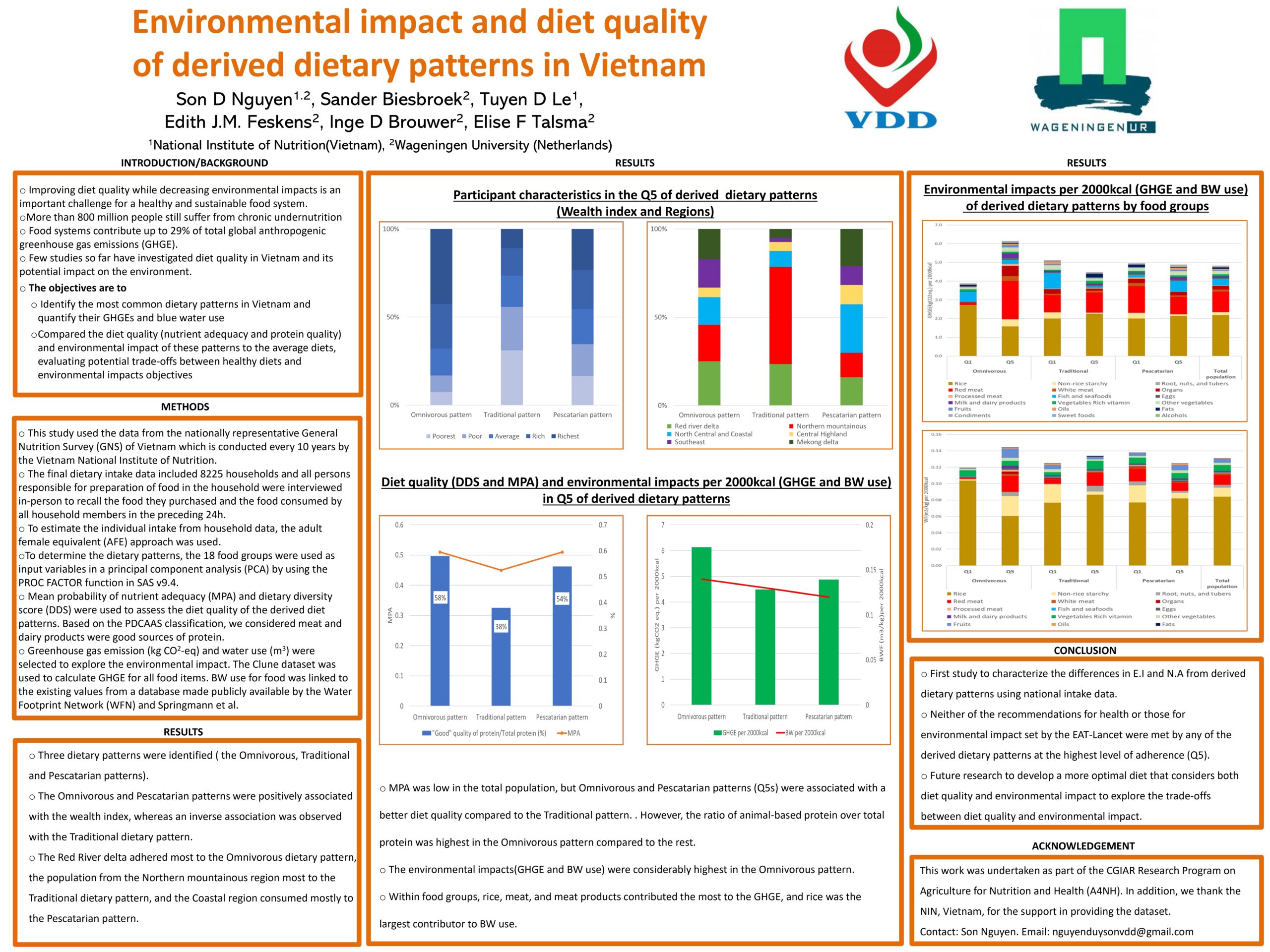
S1-3: Protein and Macronutrient Intakes Among 0.5 - 11.9-year-old Children in Vietnam in 2020
Ha Nguyen Thu, Son Nguyen Duy, Ilse Khouw, Nga Tran Thuy
Download Abstract
Download E-Poster
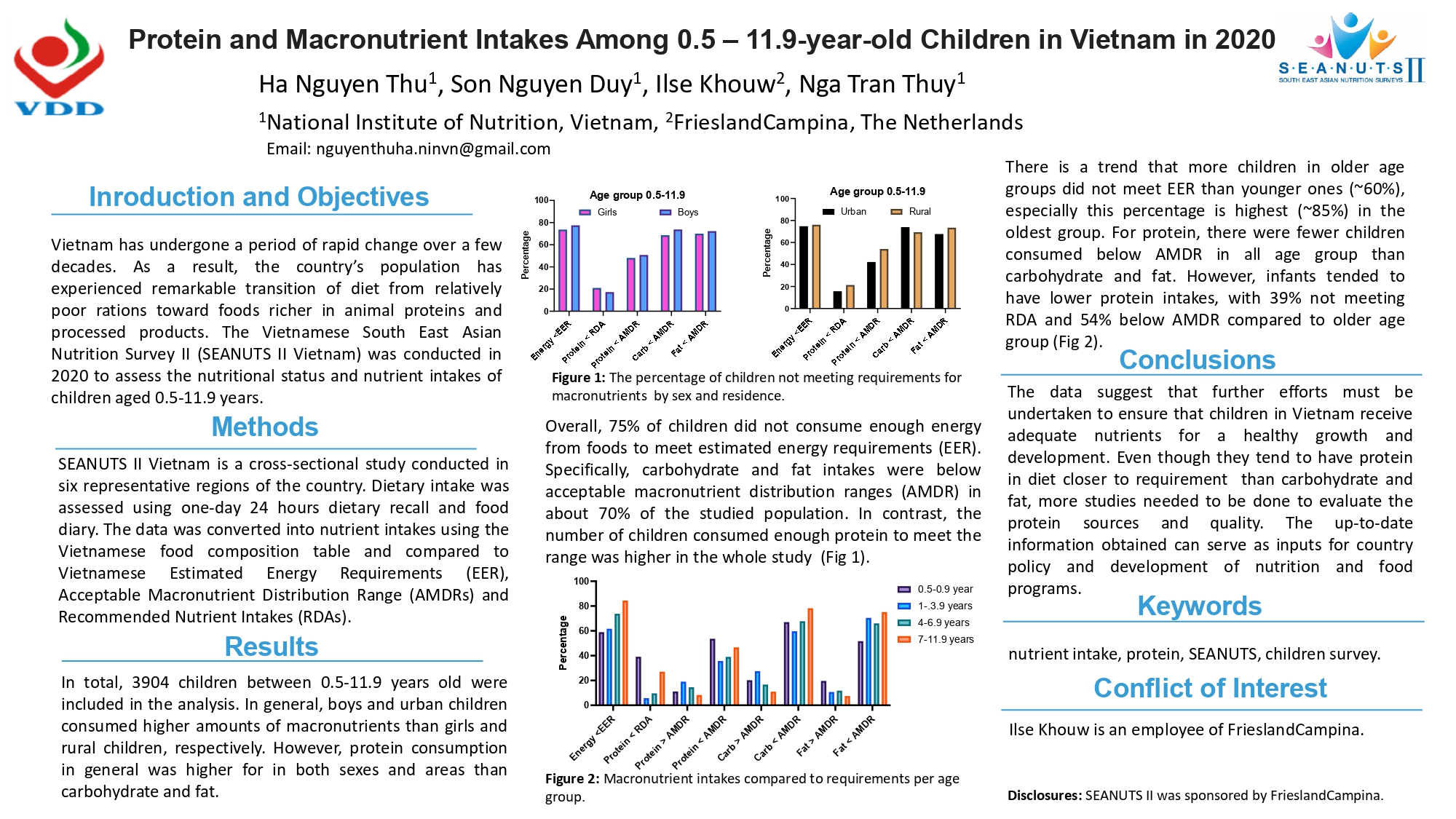
S1-2: Protein Intake and Cardiometabolic Risk Factors among Older Filipino Women
Nanette Mayol, Paulita L. Duazo, Judith B. Borja
Download Abstract
Download E-Poster
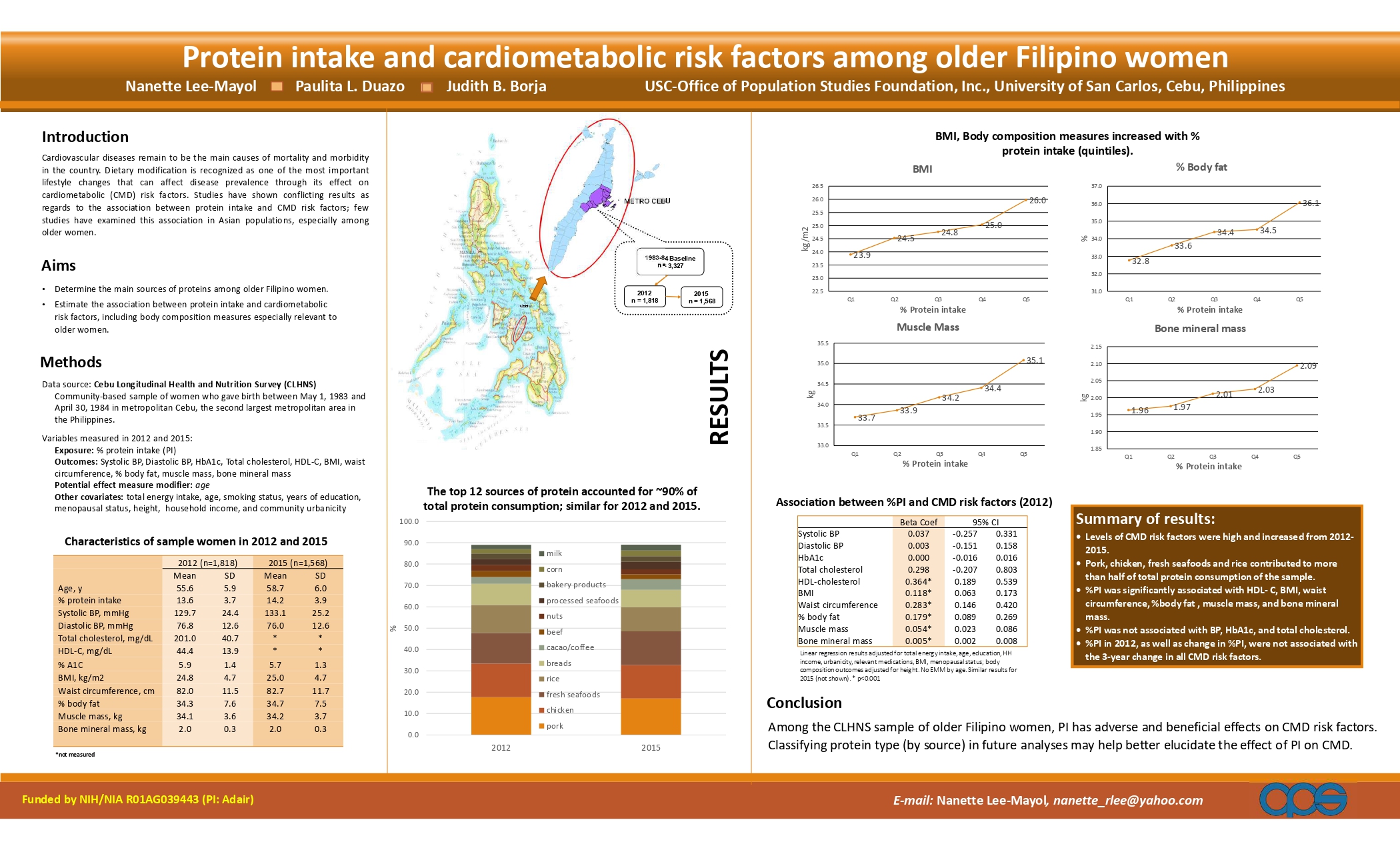
Session Theme 2: Review and Assess Protein Quality and Dietary Shifts
S2-1: Protein Quality of Soy and the Effect of Processing: A quantitative review
Lisa A. van den Berg, Jurriaan J. Mes, Marco Mensink, and Anne J. Wanders
Download Abstract
Download E-Poster
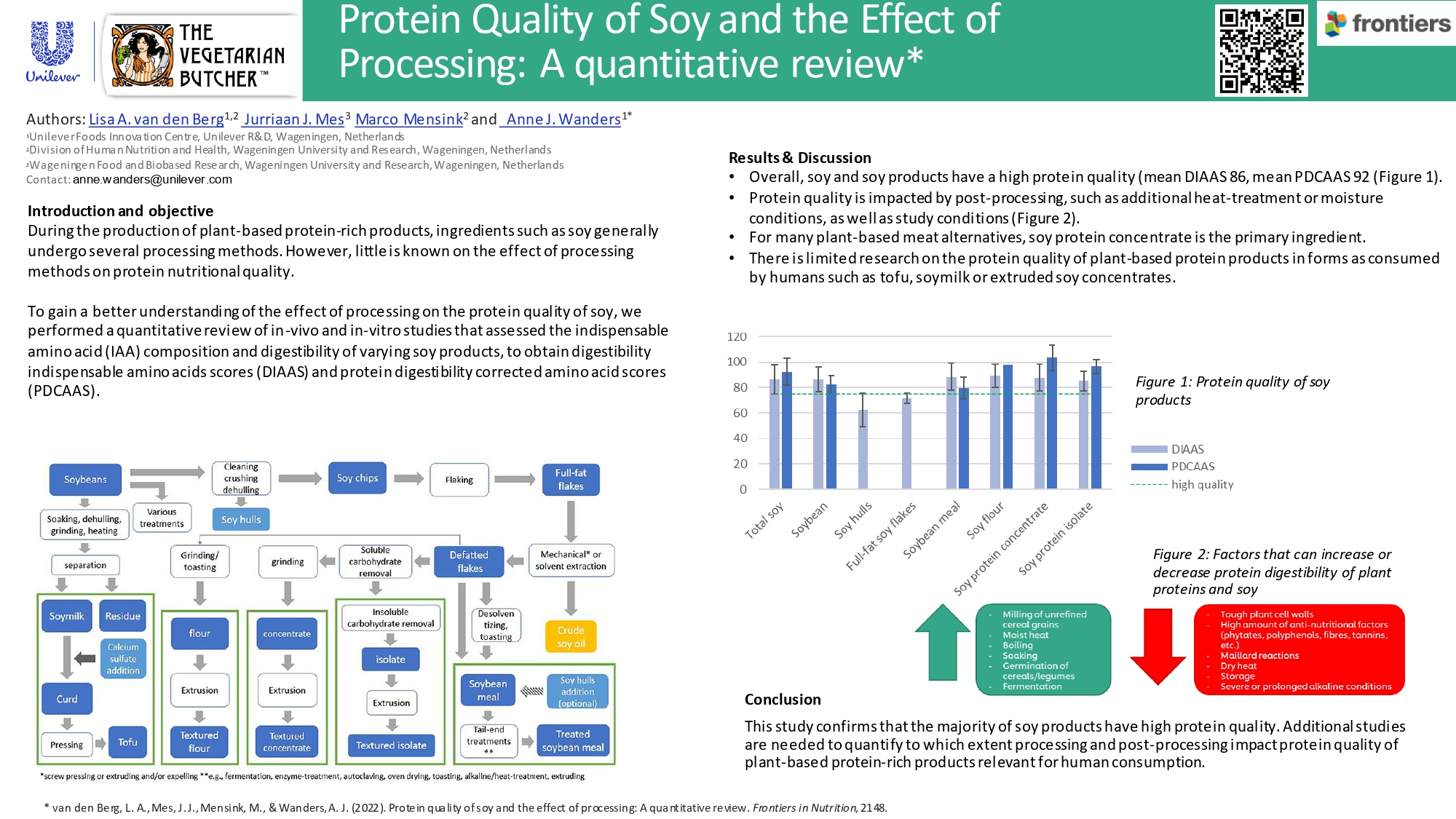
Session Theme 3: Protein and Health - Research and Guidance for Optimal Functional Benefits
S3-1: Association between Dietary Protein Intake and Sleep Quality in Middle-aged and Older Adults in Singapore
Clarinda Nataria Sutanto, LOH Wen Wei, KIM Jung Eun
Download Abstract
Download E-Poster
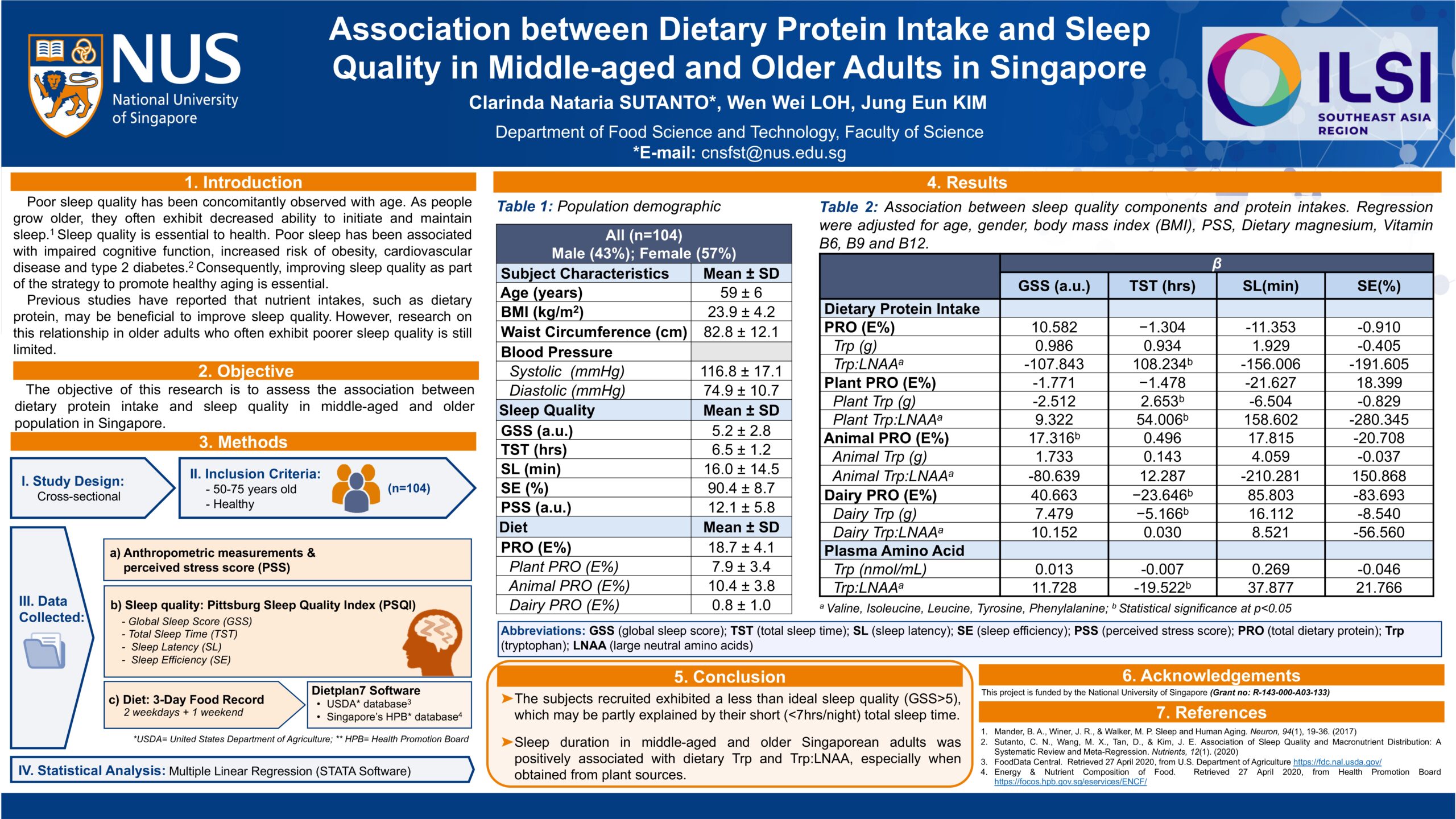
S3-3: Protein Chrononutrition: Time of intake as an additional dimension to optimise dietary protein quality and quantity?
Haldar, Sumanto, Yong, Y.N., Dong, J., Sivappiragasam, P.L., Henry, C.J. and Drum, C.L.
Download Abstract
Download E-Poster
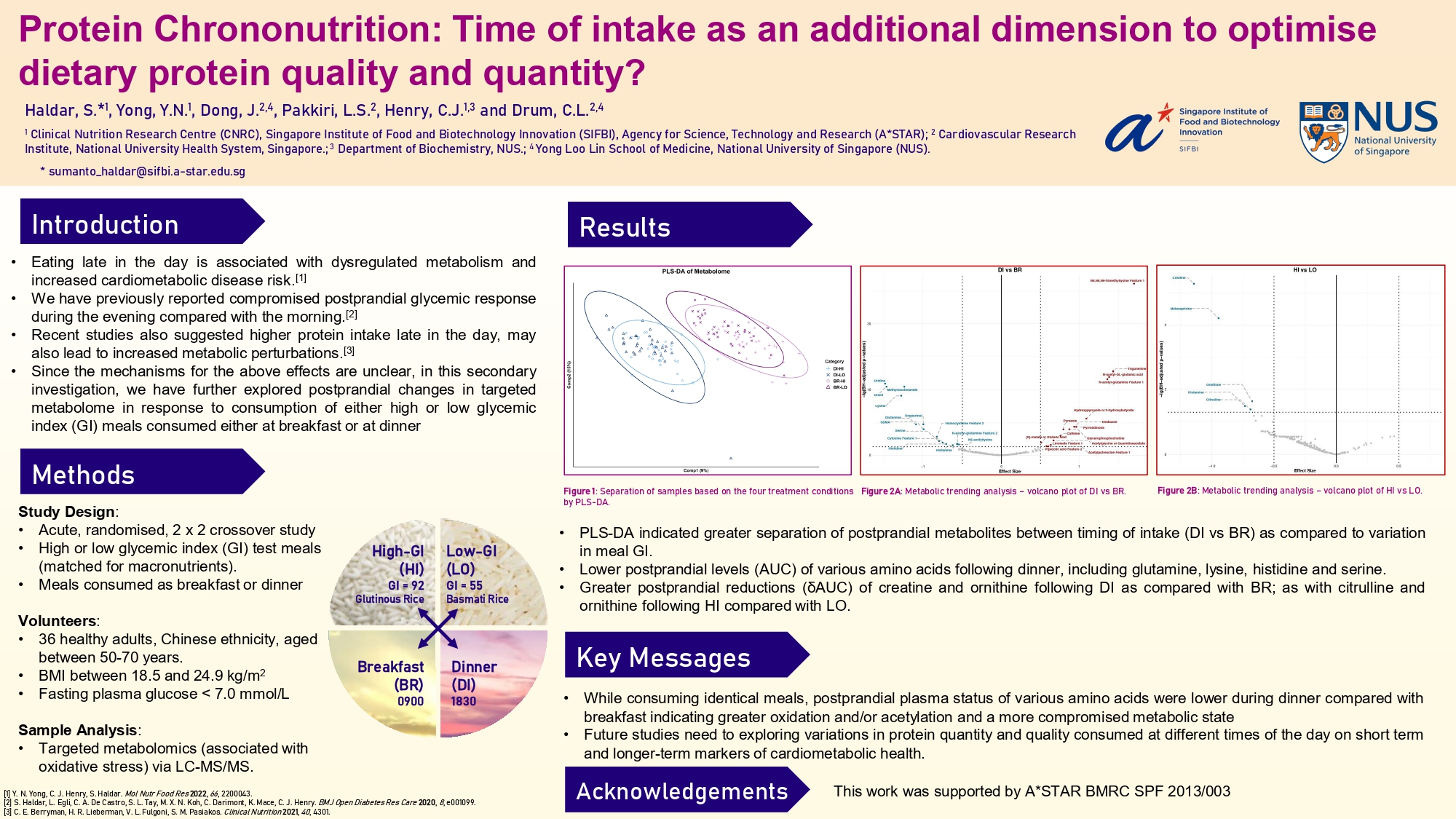
S3-5: The SHIELD Study: Addressing the questions, needs, and challenges of nutritional and muscle health in community-dwelling older adults
Siew Ling Tey (Agnes), D. T. T. Huynh, G. Baggs, Y. L. Low, M. Cheong, C. H. How, W. L. Chow, N. C. Tan, S. T. H. Chew
Download Abstract
Download E-Poster
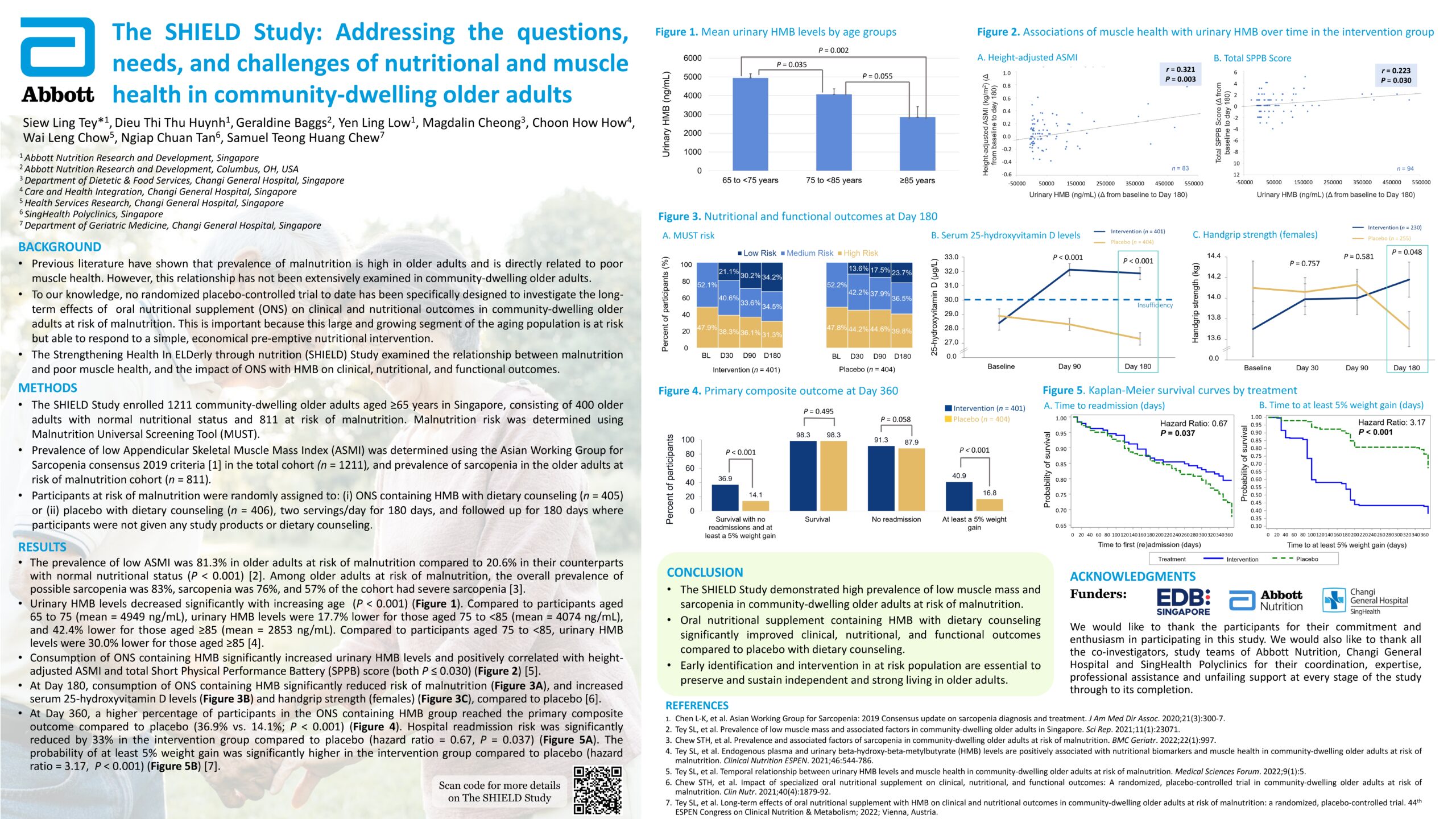
S3-7: Impact of Exercise and Leucine-enriched Protein Supplementation on Physical Function, Body Composition, and Inflammation in Pre-frail Older Adults
Reshma Aziz Merchant, Yiong Huak Chan, Denishkrshna.A, Santhosh Seetharaman, Lydia Au, Vidhya Na-chammai, Alexa Lai, Vanda Ho, Beatrix Ling Ling Wong, Eunice Pang, Kalpana Bhaskaran and Charissa Lim
Download Abstract
Download E-Poster
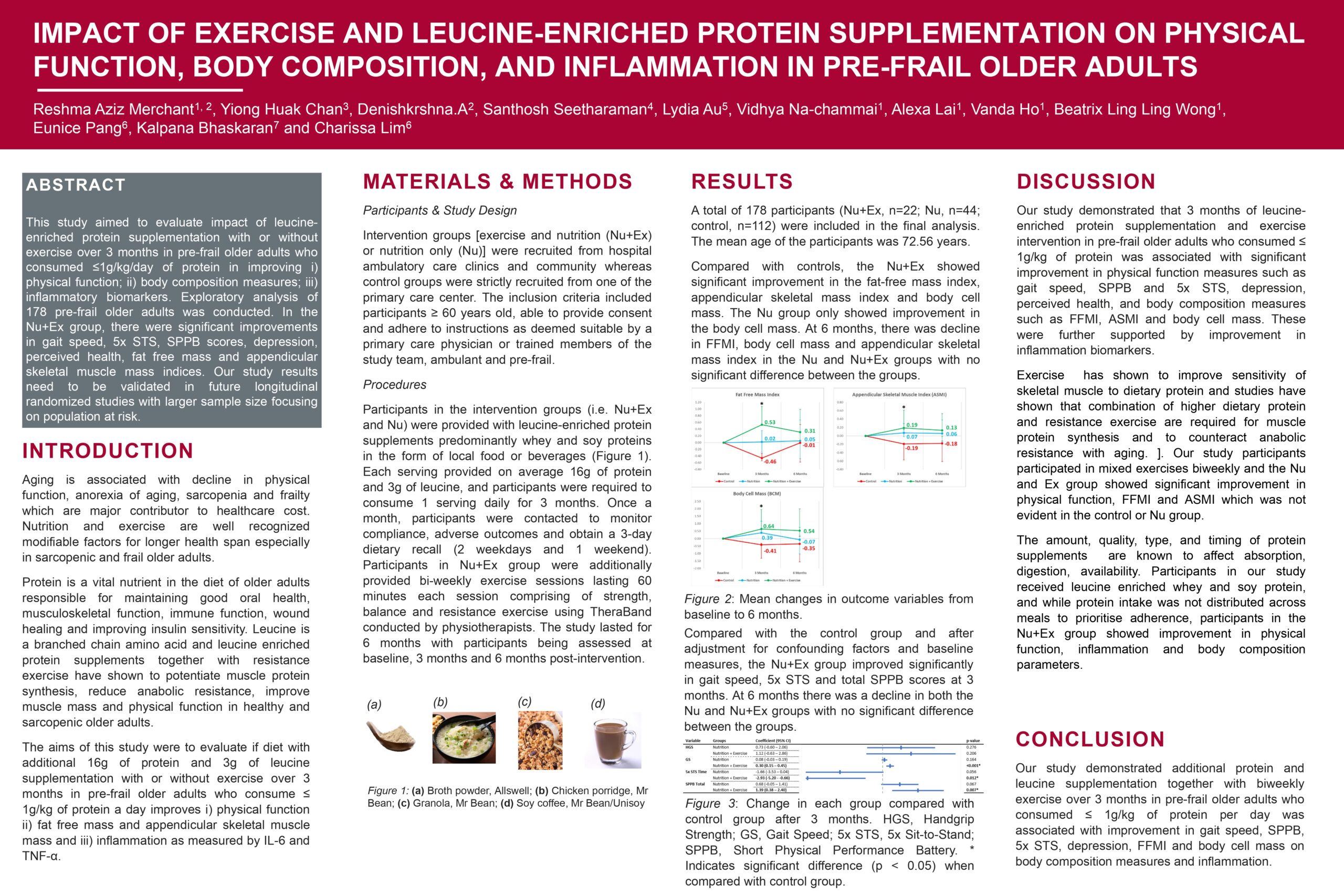
S3-2: Postprandial "Hypo-glycinemia" Following Whey Protein Ingestion in Overweight Women with Impaired Fasting Glucose
Jia Jiet Lim, Ivana Sequeira, Wilson Yip, Louise Lu, David Cameron-Smith, Jennifer Miles-Chana, Sally Poppitt
Download Abstract
Download E-Poster
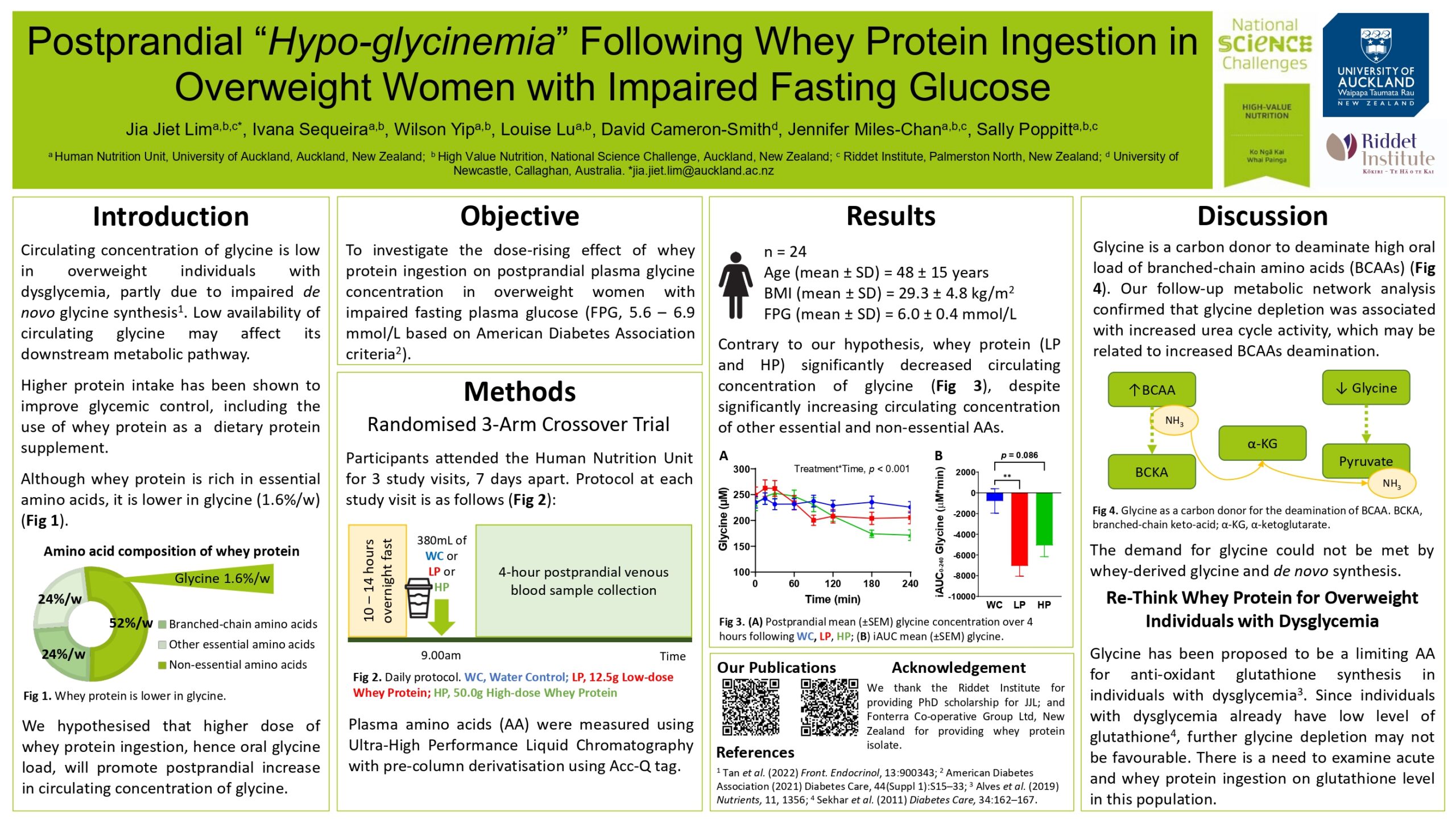
S3-4: Does Consumption of Whole Legumes, as a Source of Plant Proteins, Increase Serum Uric Acid?
Alvin Surya Tjahyo, Sumanto Haldar, Shalini Ponnalagu, Farhana Osman, Shia Lyn Tay, Priya Govindharajulu, Susanna Lim Poh Suan, Kat Long Hui Wong, Christiani Jeyakumar Henry
Download Abstract
Download E-Poster
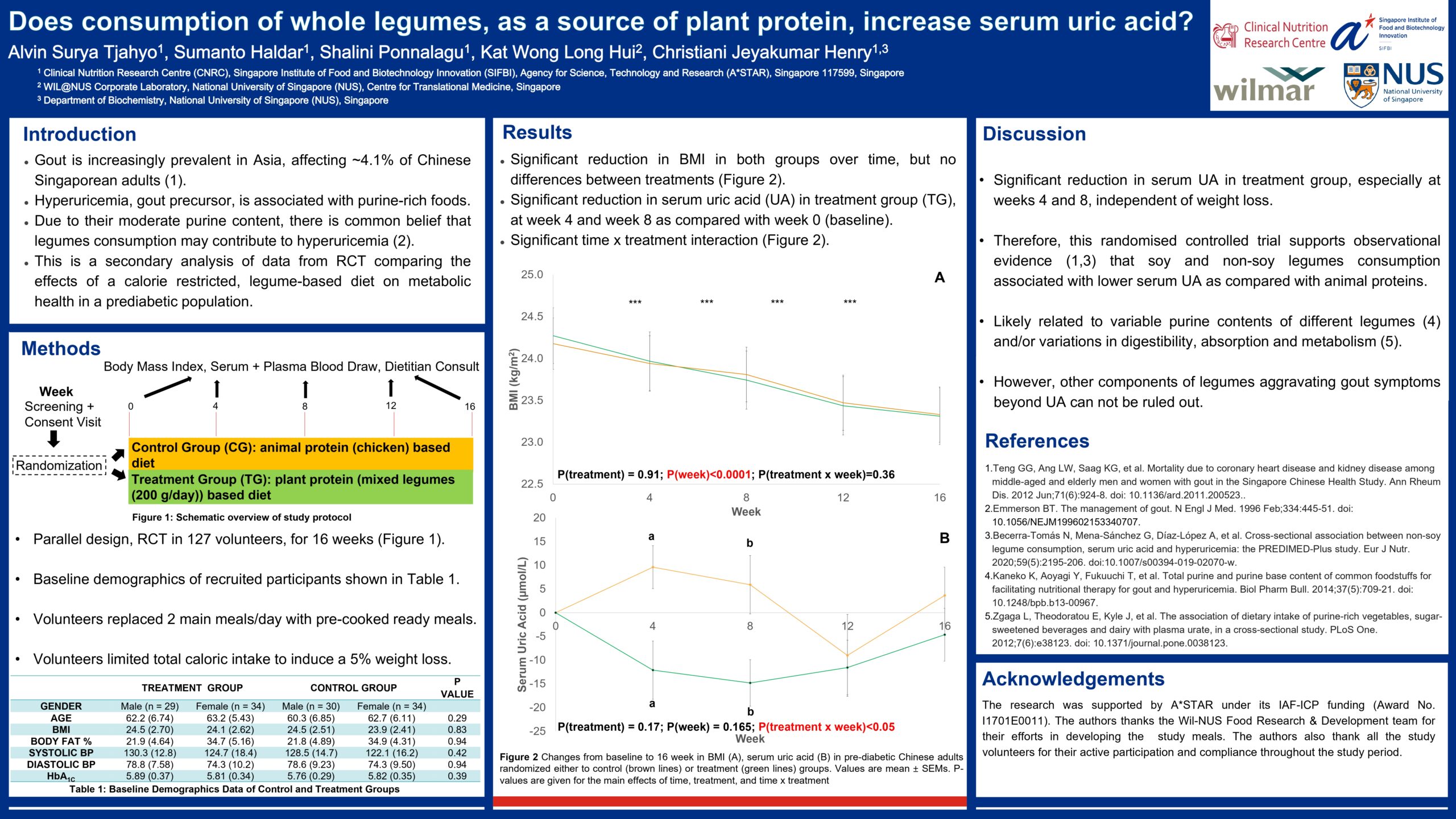
S3-6: Effectiveness of the Nutrition Education Module on the KAP of Stunting among Mothers, MDD and HAZ Z--scores of Children Aged Below 2 years old in Terengganu, Malaysia
Tengku Fatin Nadhirah Te Ku Nor, Bee Suan Wee, Myat Moe Thwe Aung, Marhazlina Mohamad, Mohd Razif Shahril, Aryati Ahmad, Che Suhaili Che Taha, Karimah Fakhriah Ismail
Download Abstract
Download E-Poster
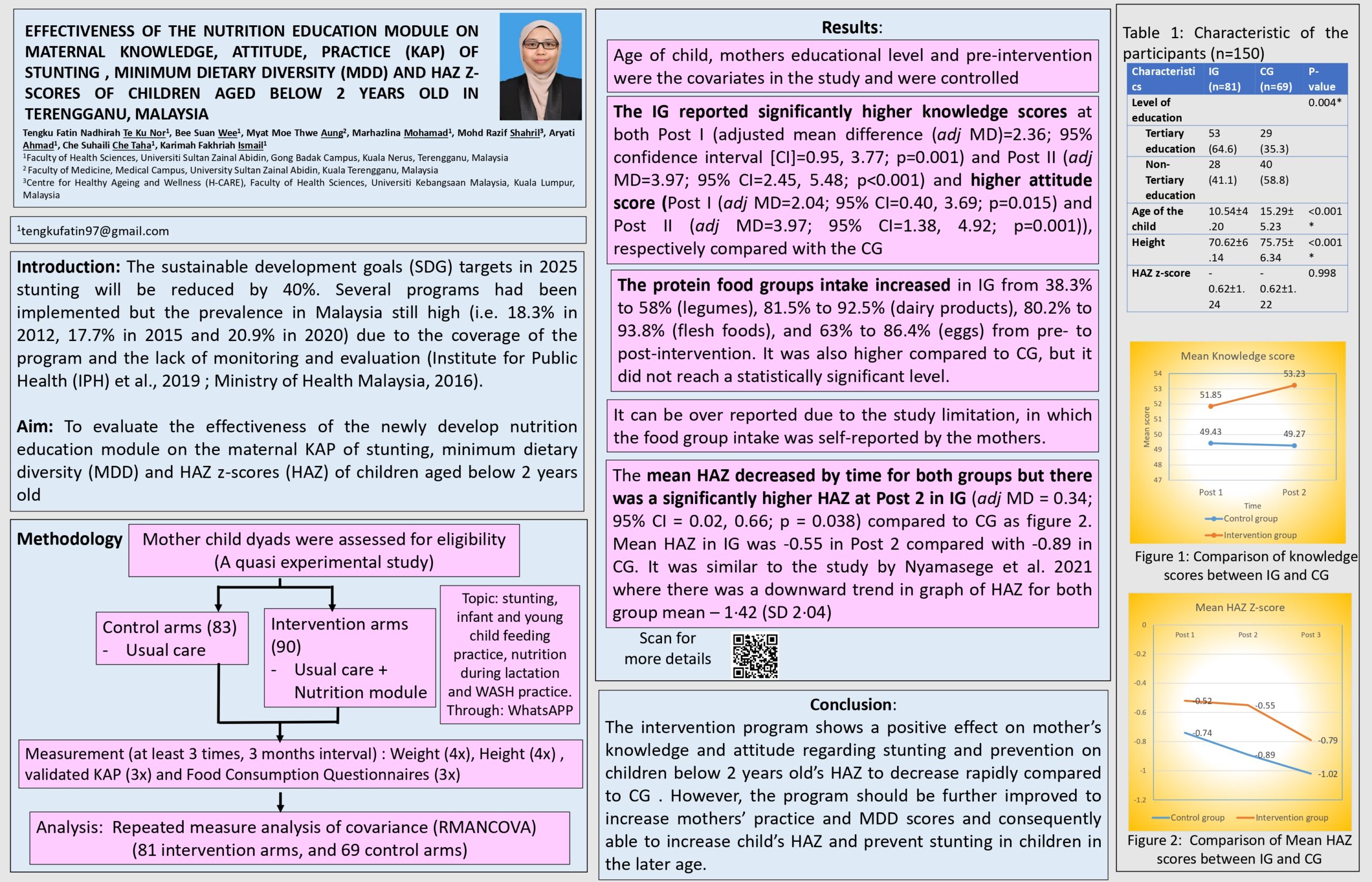
Session Theme 4: Future of Protein - Technologies and Value Proposition of Alternative and Complementary Sources
S4-1: The Development of High Plant-Based Protein Powder Drinks for Weight Management
Kwanchanok Hunthayung, Sassy Bhawamai
Download Abstract
Download E-Poster
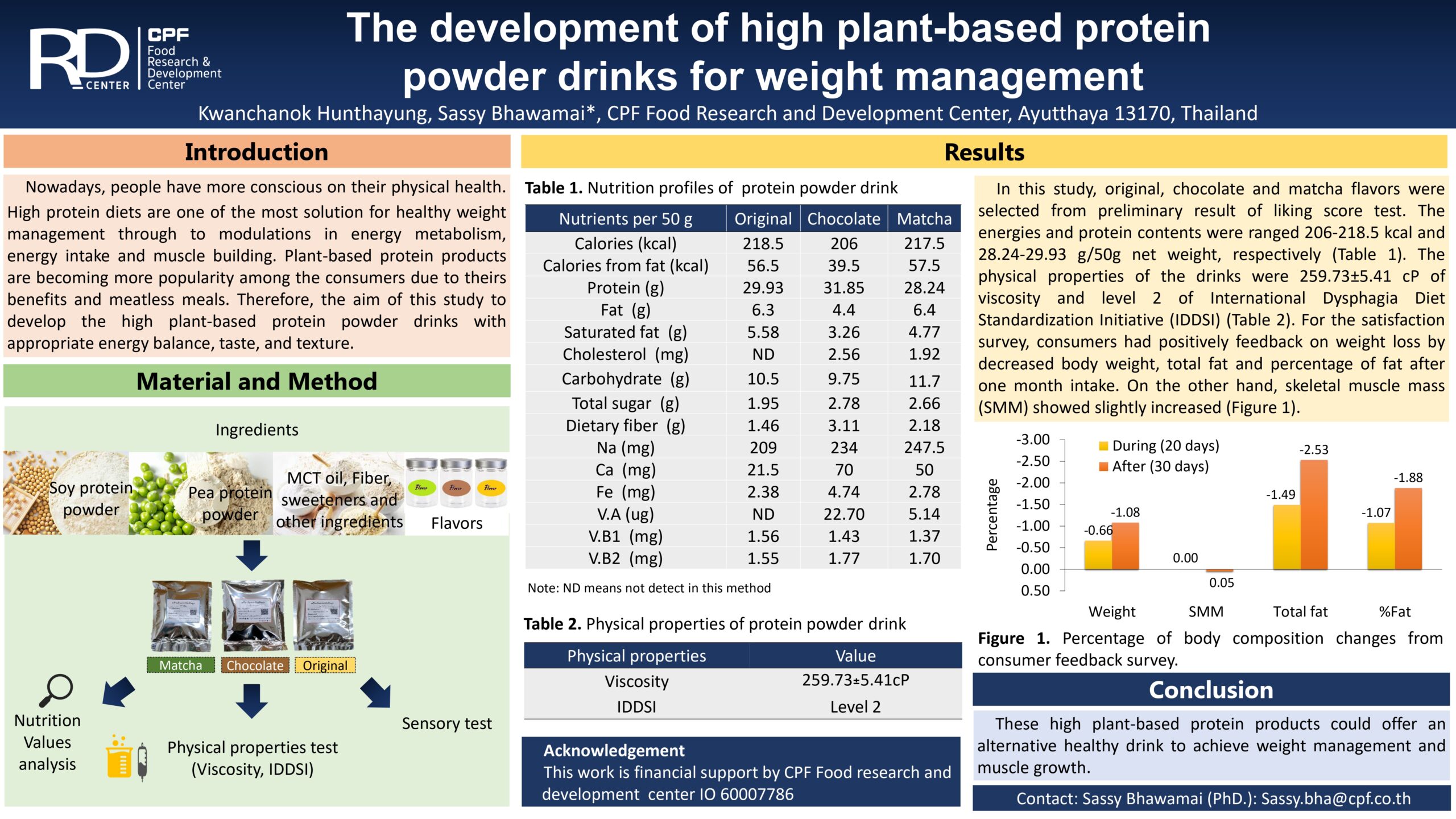
S4-3: Potential Use of Protein Concentrates from Mesoamerican Native Legumes as Ingredients in Plant-Based
Grettel Villalobos-Alpízar, Patricia Esquivel1 Laura Arroyo,Adriana Araya-Morice
Download Abstract
Download E-Poster
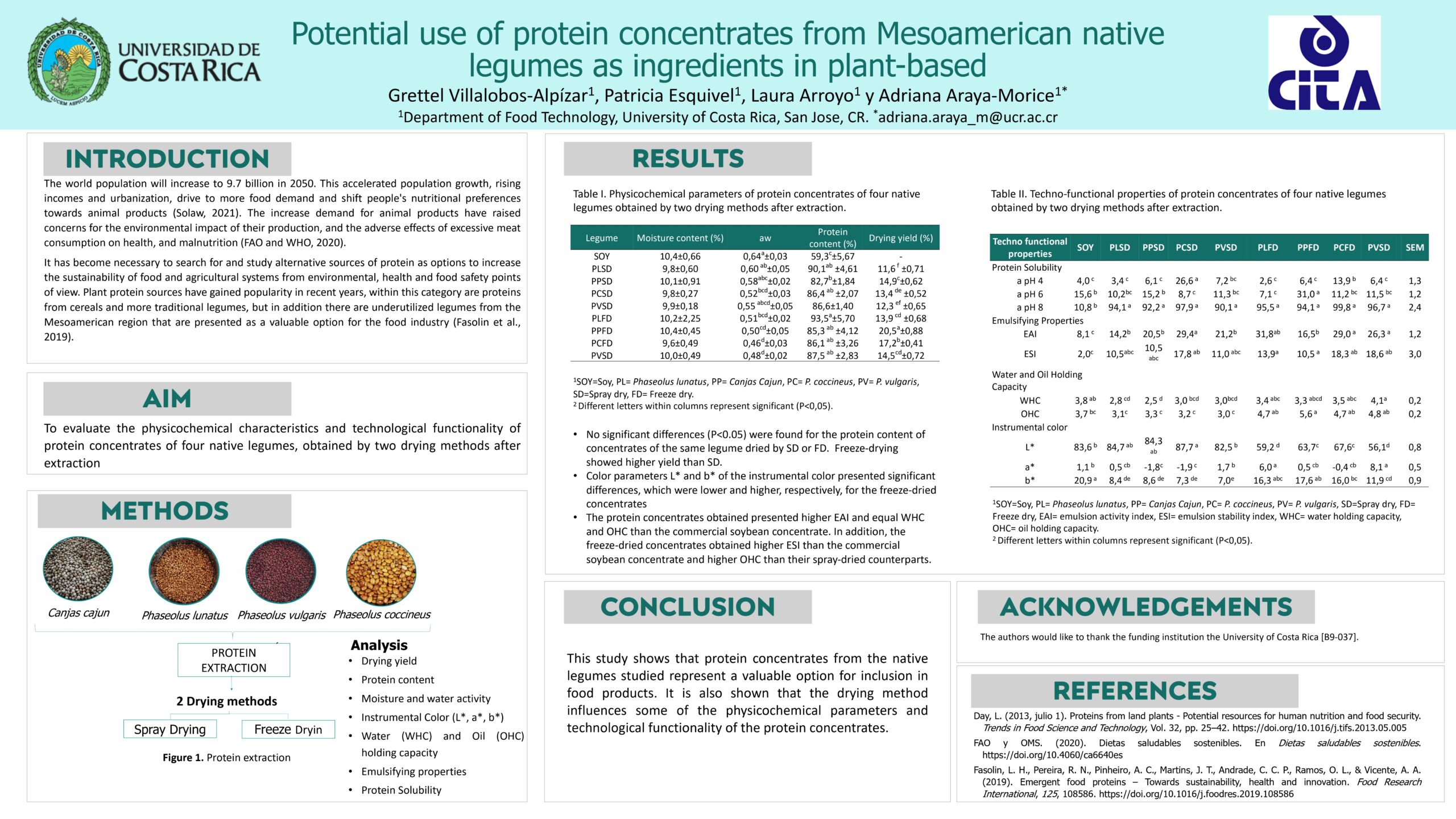
S4-2: Artificial Intelligence Assisted Ascertainment of Protein Content in Meat and Alternative Meat Patty Products
Yim B., Ho, Sherman, Lai A.
Download Abstract
Download E-Poster
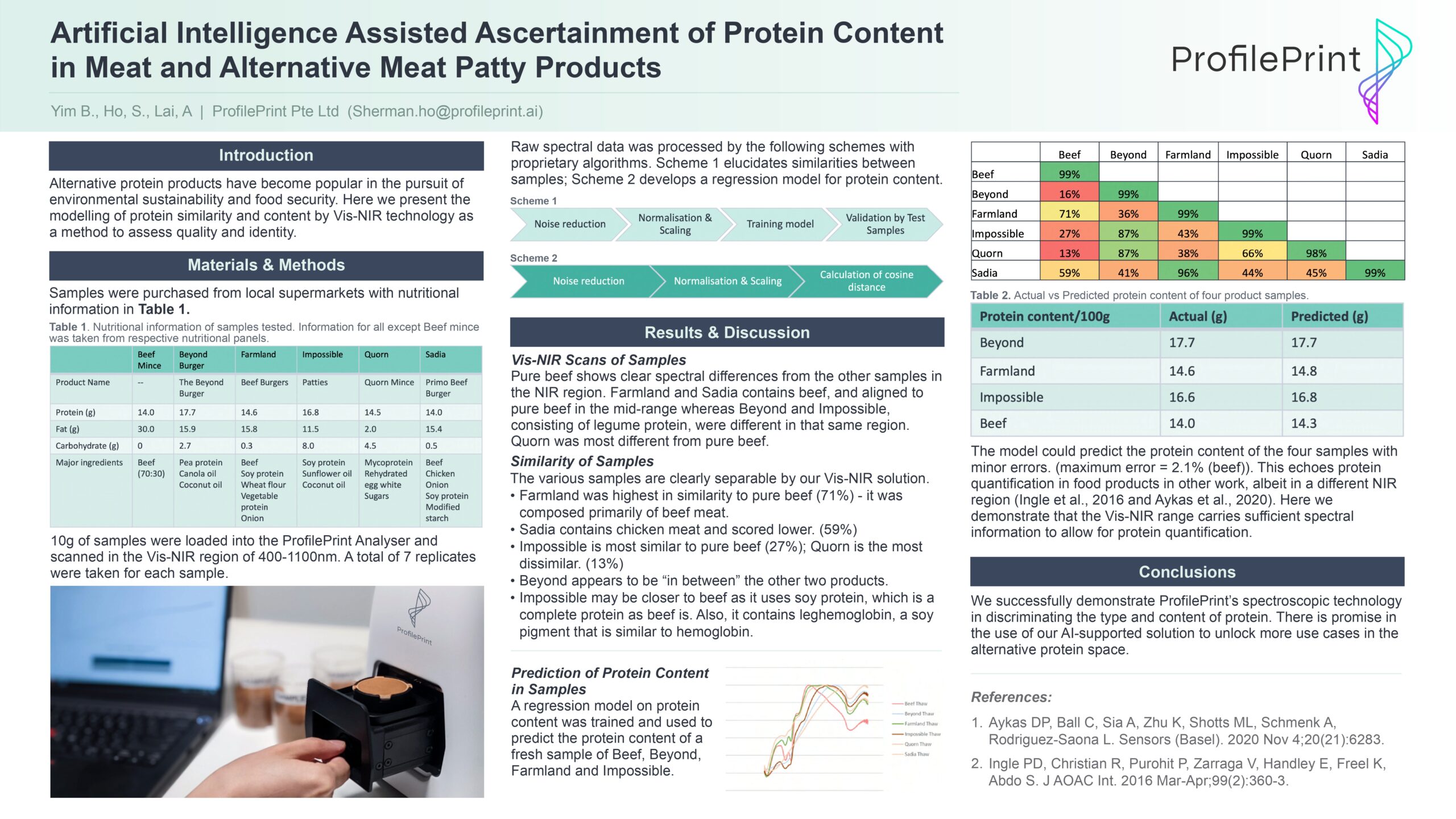
Session Theme 5: Innovations to Meet Consumer Acceptance and Regulatory Science Development
S5-1: Consumption of Plant-Based Meat Alternatives by Regular Consumers and their Motivations to Sustain Long-Term Intake
Siti Amelia Juraimi, Aimee E. Pink, Florence Sheen, Benjamin P.C. Smith
Download Abstract
Download E-Poster
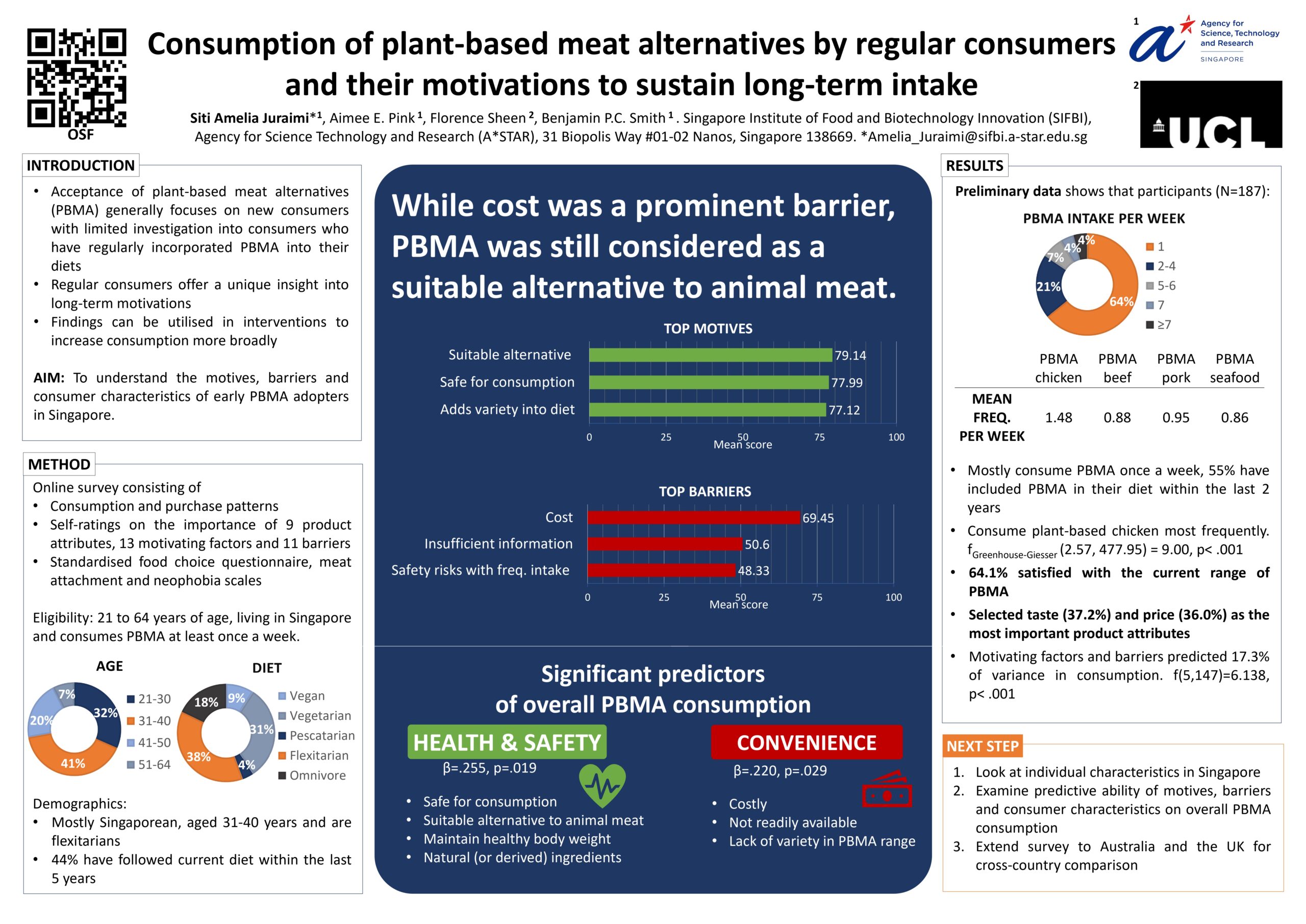
S5-3: Computational Prediction of Protein Allergenicity in Food and Personal Care Products
Minh N. Nguyen, Nora L. Krutz, Vachiranee Limviphuvadh, Andreas L. Lopata, G. Frank Gerberick, and Sebastian Maurer-Stroh
Download Abstract
Download E-Poster
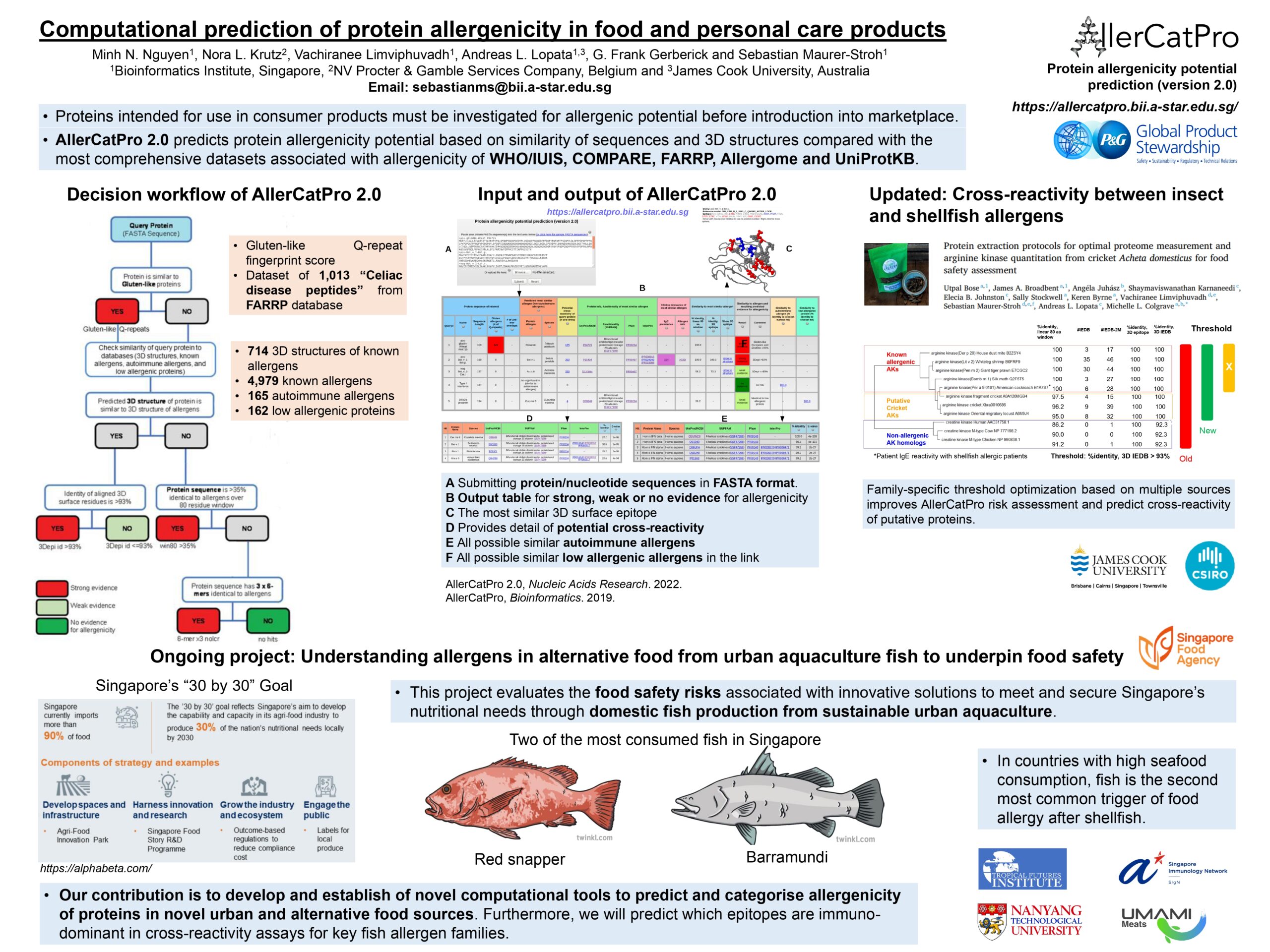
S5-2: Are Plant-based Meat Analogues Healthier than their Meat Counterparts?
Xinyan BI, Michelle YEO, Christiani Jeyakumar HENRY
Download Abstract
Download E-Poster
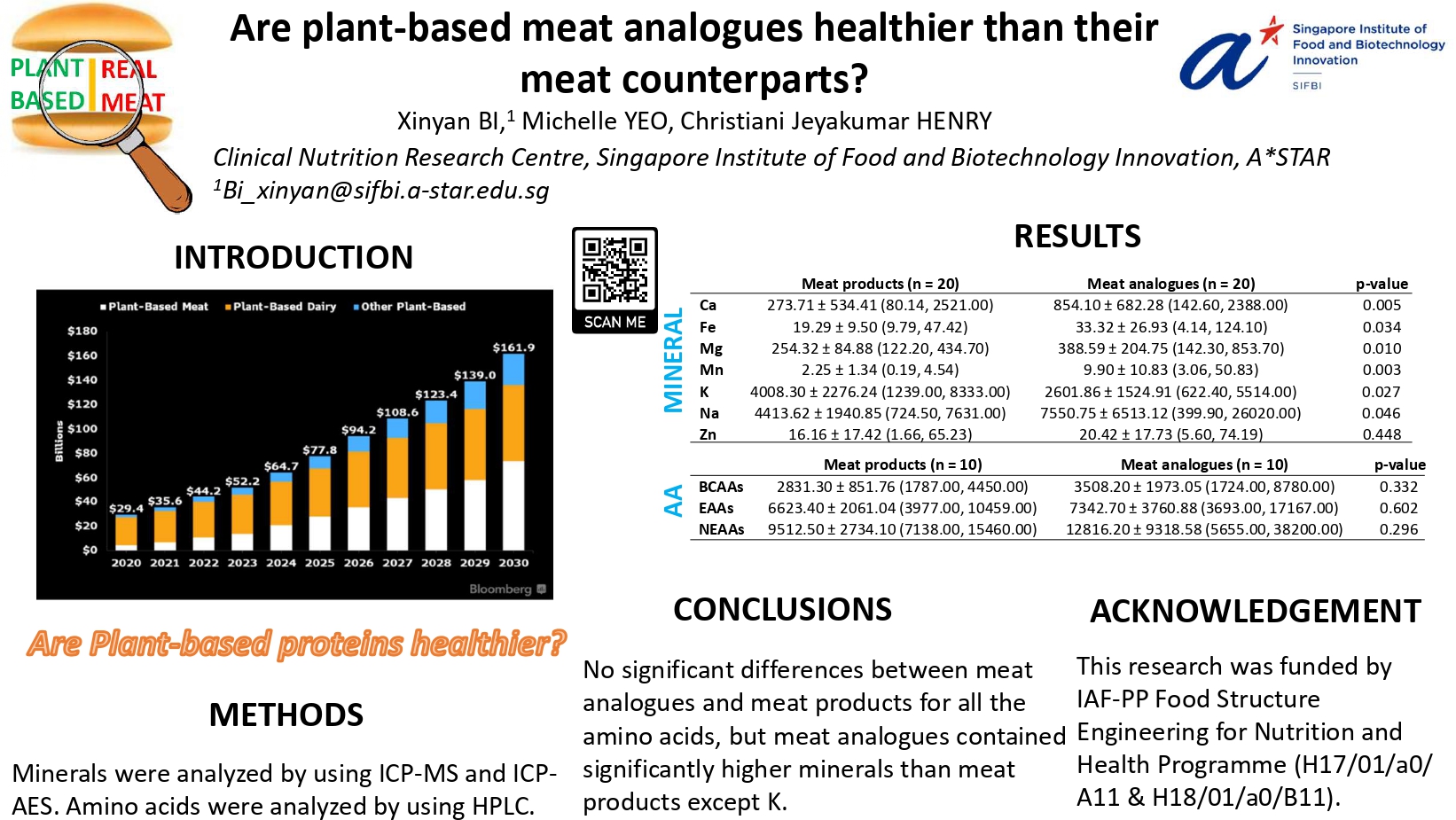
S5-4: Allergens in Edible Cricket (Acheta domesticus): Extraction Methods and (human IgE) Antibody Reactivity
Shaymaviswanathan Karnaneedi, Elecia B. Johnston, Utpal Bose, Angéla Juhász, James A. Broadbent, Sally Stockwell, Keren Byrne, Sandip D. Kamath, Vachiranee Limviphuvadh, Thimo Ruethers, Sebastian Maurer-Stroh, Michelle L. Colgrave, Andreas L. Lopata
Download Abstract
Download E-Poster
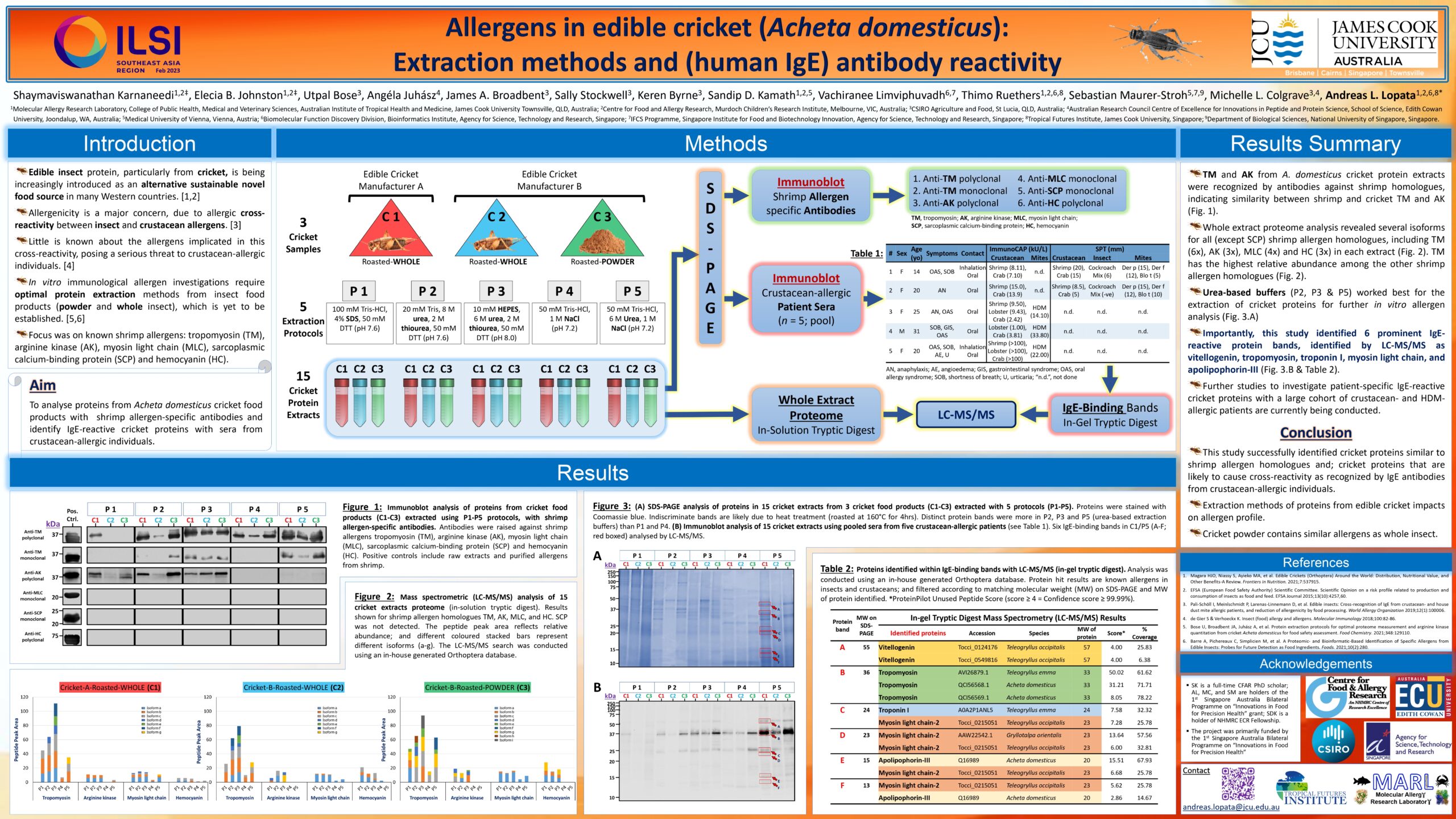
Organizer

Collaborators


Contact
If you have any enquiries on this event, please contact ILSI SEA Region Secretariat at event@ilsisea.org.sg
[post_title] => Symposium: ReThink Protein Needs and Dietary Shift in Southeast Asia – Health, Innovation and Sustainability
[post_excerpt] =>
[post_status] => publish
[comment_status] => closed
[ping_status] => closed
[post_password] =>
[post_name] => protein-dietaryshift-southeastasia
[to_ping] =>
[pinged] =>
[post_modified] => 2023-06-13 05:06:20
[post_modified_gmt] => 2023-06-13 05:06:20
[post_content_filtered] =>
[post_parent] => 0
[guid] => https://ilsisea-region.org/?post_type=event&p=29548
[menu_order] => 0
[post_type] => event
[post_mime_type] =>
[comment_count] => 0
[filter] => raw
)
[2] => WP_Post Object
(
[ID] => 29493
[post_author] => 353
[post_date] => 2022-11-16 01:59:30
[post_date_gmt] => 2022-11-16 01:59:30
[post_content] =>
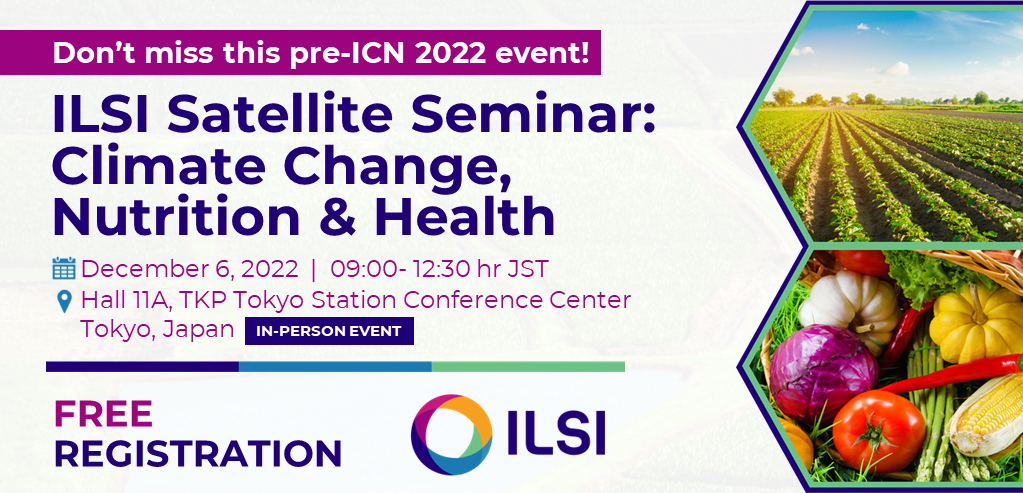
Background
According to the World Resources Institute, global temperatures have risen by 1.1 ºC, with call to limit target increase to within 1.5 ºC goals for 2050, while UNEP is predicting a bleak scenario with temperature rise of 2.4-2.6°C by the end of this century. The just published 2022 Lancet Countdown Report on Health and Climate Change highlighted the predicament of increased risk of food insecurity, infectious disease transmissions and heat related ailments, putting additional strain on health systems and productivities. as experience by recent global pandemic outbreak, extreme heat waves, increase precipitations and other natural disasters. The potential impact of diet and nutrition in mitigating the effect of climate change such as heat proofing humans and heat stress management is largely underexplored, yet an important area to investigate where strategies have traditionally been focused on the environment, clothing and physiological conditioning.
As the world prepare responses to the ongoing crises, adopting and harnessing various approaches to mitigate the detrimental effect of climate change and carbon emission, a focus on diet and nutrition status, human health and wellbeing must also be prioritized.
Download Program
Download Summary Report
Registration Details
Key Information
Venue Location
Key Information
REGISTRATION IS FREE on first-come, first-serve basis due to limited available seats. Registration will be closed on December 4, 2022, 5pm SGT/ 6pm JST.
Register using the button above or through this link.
Please allow ILSI SEA Region Secretariat 3-5 working days to process your registration. You will receive an email from us to confirm your registration.
Venue Location
This is a half-day IN-PERSON event to be held in TKP Tokyo Station Convention Center, Hall 11A, Shin-Makicho Building 11F, 1-8-16 Yaesu Chuo-ku, Tokyo 103-0028, Japan.
Please refer to the map below or click here for the directions:
PROGRAM
Chair: Prof. Louise Dye, Nutrition & Behaviour, School of Psychology, University of Leeds, UK
Expand

Professor Louise Dye is Co-Chair of the ILSI Global Board. She is Professor of Nutrition and Behaviour in the School of Psychology and until recently was Academic Lead for the University of Leeds of the N8 Agrifood Programme. She chairs the BBSRC Strategic Advisory Panel for Integrated Understanding of Biosciences for Health and chaired their Neuroscience and Mental Health Working Group. Louise is a Chartered Health Psychologist and British Psychological Society member. She began her career in Human Psychopharmacology and has over 30 years' experience in the assessment of nutritional and pharmacological intervention on cognitive function and wellbeing. She is Associate Editor of Nutritional Neuroscience and former associate editor of the European Journal of Nutrition. Louise has served on several of ILSI Europe's expert groups, including as President and Chair of the Scientific Advisory Committee.
Topic 1: Dr. Jason Lee, National University of Singapore, Singapore
Expand
Heat Health in Face of Climate Change: Nutritional Considerations
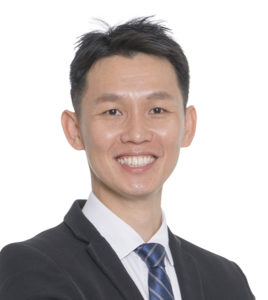 Jason Lee (PhD, FACSM) is an Associate Professor based at Human Potential Translational Research Programme in the School of Medicine at the National University of Singapore. He is a Fellow of the American College of Sports Medicine. Jason completed his 12-year tenure at the DSO National Laboratories in 2018 by directing the Human Performance Programme in his final appointment. He currently directs the Heat Resilience and Performance Centre based at the university and chairs the Scientific Committee on Thermal Factors at the International Commission on Occupational Health. He also chairs Sports Advisory Committee at Ministry of Culture, Community and Youth in Singapore. Jason studies the physiological demands associated with heat stress and how humans adapt to ensure optimum performance and survival. He is a member of the WHO and WMO Report on Climate Change on Workers' Health and Productivity is on the management committee at the Global Heat Health Information Network.
Jason Lee (PhD, FACSM) is an Associate Professor based at Human Potential Translational Research Programme in the School of Medicine at the National University of Singapore. He is a Fellow of the American College of Sports Medicine. Jason completed his 12-year tenure at the DSO National Laboratories in 2018 by directing the Human Performance Programme in his final appointment. He currently directs the Heat Resilience and Performance Centre based at the university and chairs the Scientific Committee on Thermal Factors at the International Commission on Occupational Health. He also chairs Sports Advisory Committee at Ministry of Culture, Community and Youth in Singapore. Jason studies the physiological demands associated with heat stress and how humans adapt to ensure optimum performance and survival. He is a member of the WHO and WMO Report on Climate Change on Workers' Health and Productivity is on the management committee at the Global Heat Health Information Network.
Topic 2: Dr. Malcolm Riley, CSIRO Health and Biosecurity, Australia
Expand
Dietary Guidelines and Climate Change - Gaps and Future Directions
 Dr. Malcolm Riley is an epidemiologist and dietitian with experience in non-communicable diseases. He is interested in the social determinants of poor health and the role of individual and community choice. Malcolm has undertaken fieldwork and project activities in settings in Africa, Asia and Australia; and is a past president of the Nutrition Society of Australia. In his present role, Malcolm leads the Public Health and Wellbeing group within the Human Health program of Australia's government science agency, the Commonwealth Scientific and Industrial Research Organization (CSIRO). The group blends behaviour science specialists with nutrition science specialists and has a focus on programs for the maintenance of good health, which includes consideration of behavioural, technological, environmental and governance elements.
Dr. Malcolm Riley is an epidemiologist and dietitian with experience in non-communicable diseases. He is interested in the social determinants of poor health and the role of individual and community choice. Malcolm has undertaken fieldwork and project activities in settings in Africa, Asia and Australia; and is a past president of the Nutrition Society of Australia. In his present role, Malcolm leads the Public Health and Wellbeing group within the Human Health program of Australia's government science agency, the Commonwealth Scientific and Industrial Research Organization (CSIRO). The group blends behaviour science specialists with nutrition science specialists and has a focus on programs for the maintenance of good health, which includes consideration of behavioural, technological, environmental and governance elements.
Topic 3: Dr Keiji Nakamura, Ajinomoto Inc. Tokyo Japan/ Tokyo City University, Yokohama, Japan
Expand
Environmental and Health-related Impact of Life Cycle Assessment of Reduced-Salt Meals in Japan
 Keiji Nakamura is a lifecycle assessment researcher with 9 years of experiences in the Ajinomoto Co., Inc. Keiji developed carbon and water footprint for seasoning and processed food, and calculated Scope 1, 2 and 3 for the Ajinomoto Group based on these carbon footprints. Keiji aims to decrease environment impact from food sector. Keiji conducted environment assessment of carbon, water consumption and eutrophication as three criteria about environmental contributions of pig feed with industrial amino acid supplements as first article. Keiji aims to decrease food sector impact not only environment impact but also health impact. Keiji conducted comprehensive damage assessment converted to human health DALYs from three criteria which were evaluated environment assessment of carbon, water and air pollution about effective utilization rice straw caused smoke pollution as second article. Keiji aims to develop comprehensive better diet for human and earth. Keiji conducted environment and health related impact assessment for food throughout applying evaluation between improving nutrients intake and morbidity decreasing rate of relative disease as third article.
Keiji Nakamura is a lifecycle assessment researcher with 9 years of experiences in the Ajinomoto Co., Inc. Keiji developed carbon and water footprint for seasoning and processed food, and calculated Scope 1, 2 and 3 for the Ajinomoto Group based on these carbon footprints. Keiji aims to decrease environment impact from food sector. Keiji conducted environment assessment of carbon, water consumption and eutrophication as three criteria about environmental contributions of pig feed with industrial amino acid supplements as first article. Keiji aims to decrease food sector impact not only environment impact but also health impact. Keiji conducted comprehensive damage assessment converted to human health DALYs from three criteria which were evaluated environment assessment of carbon, water and air pollution about effective utilization rice straw caused smoke pollution as second article. Keiji aims to develop comprehensive better diet for human and earth. Keiji conducted environment and health related impact assessment for food throughout applying evaluation between improving nutrients intake and morbidity decreasing rate of relative disease as third article.
Topic 4: Dr. Kyoko Fujihira, Tokyo Institute of Technology, Japan
Expand
Nutritional Strategies to Thermal Stimulation: Focusing on Appetite Responses
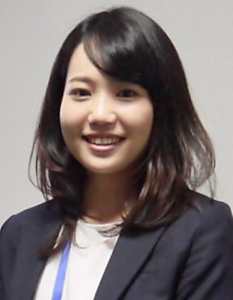 Dr. Kyoko Fujihira is Research Fellow of the Japan Society for the Promotion of Science at the Tokyo Institute of Technology. Her current research focus on appetite regulation, gastric motility, and exercise and nutritional epidemiology. She is particularly interested in the effects of thermal stimulation from inside and outside the body on appetite and gastric motility, and assesses gastric motility using ultrasound machines and stable isotope breath tests. Kyoko graduated from Tokyo Gakugei University with a bachelor's degree in education and an academic master's degree. She obtained her Ph.D. in Sport Science from Waseda University under sponsorship from the Japan Society for the Promotion of Science. Kyoko received student awards for her research activities in the master's and doctoral programs. In the doctoral program, Kyoko was supported by a graduate student travel grant and studied at Loughborough University (UK) and KULeuven (Belgium). Since 2020, Kyoko has been working in Research Team for Social Participation and Community Health at the Tokyo Metropolitan Institute of Gerontology, conducting epidemiological studies on young and elderly subjects. She is currently engaged in research at the Tokyo Institute of Technology and lectures about Health Science in Tokyo Institute of Technology and Hosei University.
Dr. Kyoko Fujihira is Research Fellow of the Japan Society for the Promotion of Science at the Tokyo Institute of Technology. Her current research focus on appetite regulation, gastric motility, and exercise and nutritional epidemiology. She is particularly interested in the effects of thermal stimulation from inside and outside the body on appetite and gastric motility, and assesses gastric motility using ultrasound machines and stable isotope breath tests. Kyoko graduated from Tokyo Gakugei University with a bachelor's degree in education and an academic master's degree. She obtained her Ph.D. in Sport Science from Waseda University under sponsorship from the Japan Society for the Promotion of Science. Kyoko received student awards for her research activities in the master's and doctoral programs. In the doctoral program, Kyoko was supported by a graduate student travel grant and studied at Loughborough University (UK) and KULeuven (Belgium). Since 2020, Kyoko has been working in Research Team for Social Participation and Community Health at the Tokyo Metropolitan Institute of Gerontology, conducting epidemiological studies on young and elderly subjects. She is currently engaged in research at the Tokyo Institute of Technology and lectures about Health Science in Tokyo Institute of Technology and Hosei University.
Topic 5: Dr. Cecilia Cristina Santos-Acuin, University of the Philippines, Los Baños, Philippines
Expand
Harnessing New Technologies in Enhancing Sustainable Agri-Food Production and Nutrition - Challenges and Opportunities for the Developing Asia

Dr. Cecilia Cristina Santos-Acuin is an Associate Professor at the Institute of Human Nutrition and Food, University of the Philippines, Los Baños and served as Senior Scientist, lead for Human Nutrition, at the International Rice Research Institute (IRRI), Philippines until May 2020.
Prior to her work at IRRI she was also the Chief Science Research Specialist, Nutritional Assessment & Monitoring Division and Chair, Institutional Ethics Committee at the Food & Nutrition Research Institute (FNRI), Department of Science & Technology, Philippines. In this position, she was responsible for the conduct of the Philippine National Nutrition Surveys, and oversaw nutrition research projects of three Sections: the Nutritional Assessment Section, the Nutritional Statistics and Informatics Section, and the Nutritional Interventions, Evaluation and Policy Section. Her research interests are in the areas of maternal and child health and nutrition, food security, food and health systems and operations research, and risk factors of non-communicable diseases.
Dr. Acuin's involvement in multi-country research initiatives includes the following among many others: as a Member of the International Union of Nutritional Sciences Committee on Nutrition and Anthropology; and as a Consultant and Vice-Chair of the WPRO Regional Advisory Committee on Health Research in the WHO Western Pacific Region. In the Philippines, Dr. Acuin has been the Co-Chair of the Philippine National Health Research System, Research Utilization Committee; Head of the Secretariat of the Universal Health Care (UHC) Study Group; Consultant in various capacities of USAID, UNICEF, World Bank, etc., as well as for academic institutions and local organizations such as the Zuellig Family Foundation among others. She obtained her Ph.D. in Nutrition with minors in Nutritional Epidemiology and Risk Communication from Cornell University, USA.
Panel Moderator: Dr. Jason Lee, National University of Singapore, Singapore
Expand
 Jason Lee (PhD, FACSM) is an Associate Professor based at Human Potential Translational Research Programme in the School of Medicine at the National University of Singapore. He is a Fellow of the American College of Sports Medicine. Jason completed his 12-year tenure at the DSO National Laboratories in 2018 by directing the Human Performance Programme in his final appointment. He currently directs the Heat Resilience and Performance Centre based at the university and chairs the Scientific Committee on Thermal Factors at the International Commission on Occupational Health. He also chairs Sports Advisory Committee at Ministry of Culture, Community and Youth in Singapore. Jason studies the physiological demands associated with heat stress and how humans adapt to ensure optimum performance and survival. He is a member of the WHO and WMO Report on Climate Change on Workers' Health and Productivity is on the management committee at the Global Heat Health Information Network.
Jason Lee (PhD, FACSM) is an Associate Professor based at Human Potential Translational Research Programme in the School of Medicine at the National University of Singapore. He is a Fellow of the American College of Sports Medicine. Jason completed his 12-year tenure at the DSO National Laboratories in 2018 by directing the Human Performance Programme in his final appointment. He currently directs the Heat Resilience and Performance Centre based at the university and chairs the Scientific Committee on Thermal Factors at the International Commission on Occupational Health. He also chairs Sports Advisory Committee at Ministry of Culture, Community and Youth in Singapore. Jason studies the physiological demands associated with heat stress and how humans adapt to ensure optimum performance and survival. He is a member of the WHO and WMO Report on Climate Change on Workers' Health and Productivity is on the management committee at the Global Heat Health Information Network.
ILSI Booth at IUNS-ICN 2022
Drop by our exhibition booth at B-21, Hall E, B2 floor, Tokyo International Forum, Tokyo, Japan!
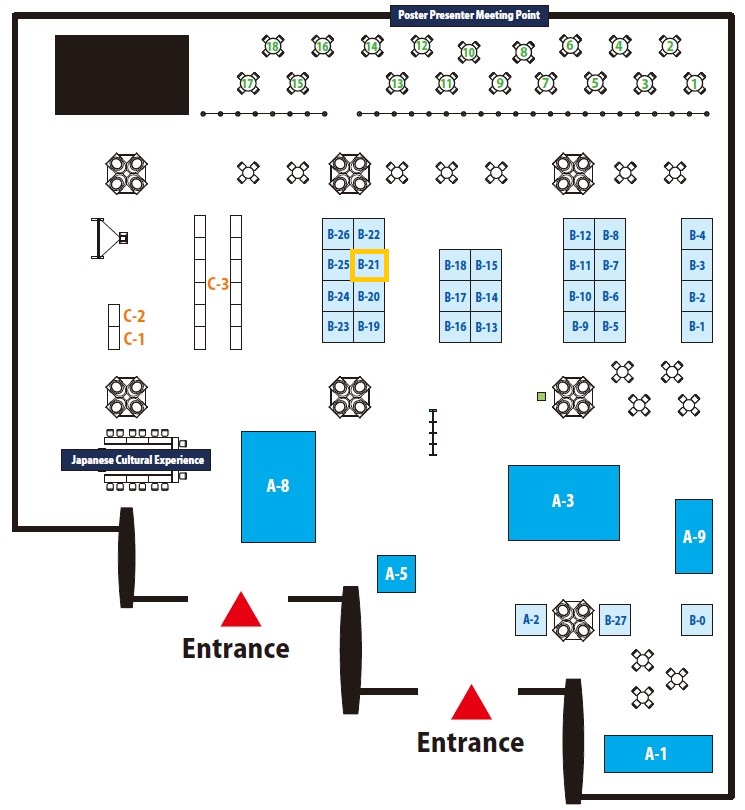
ORGANIZERS

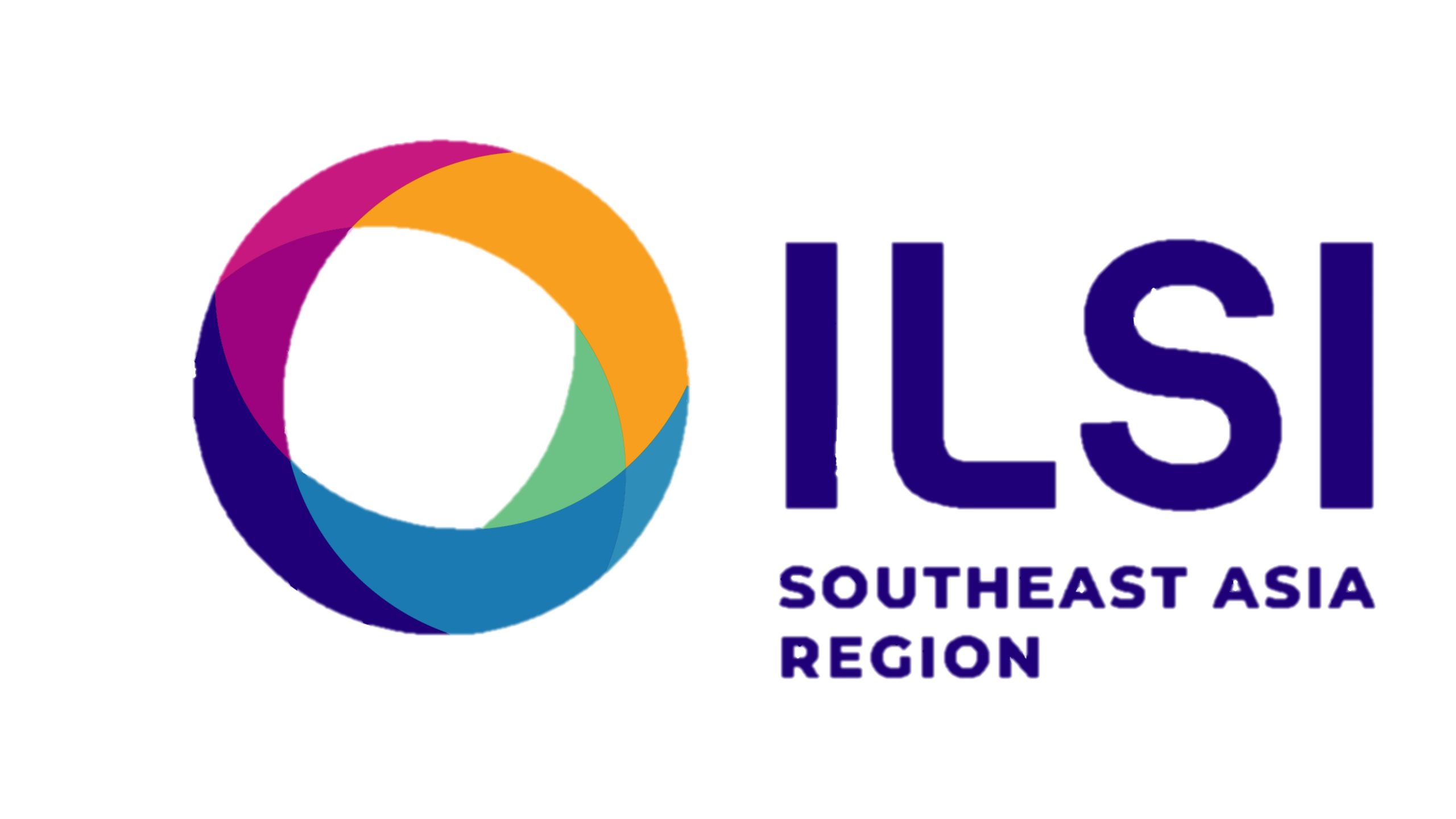
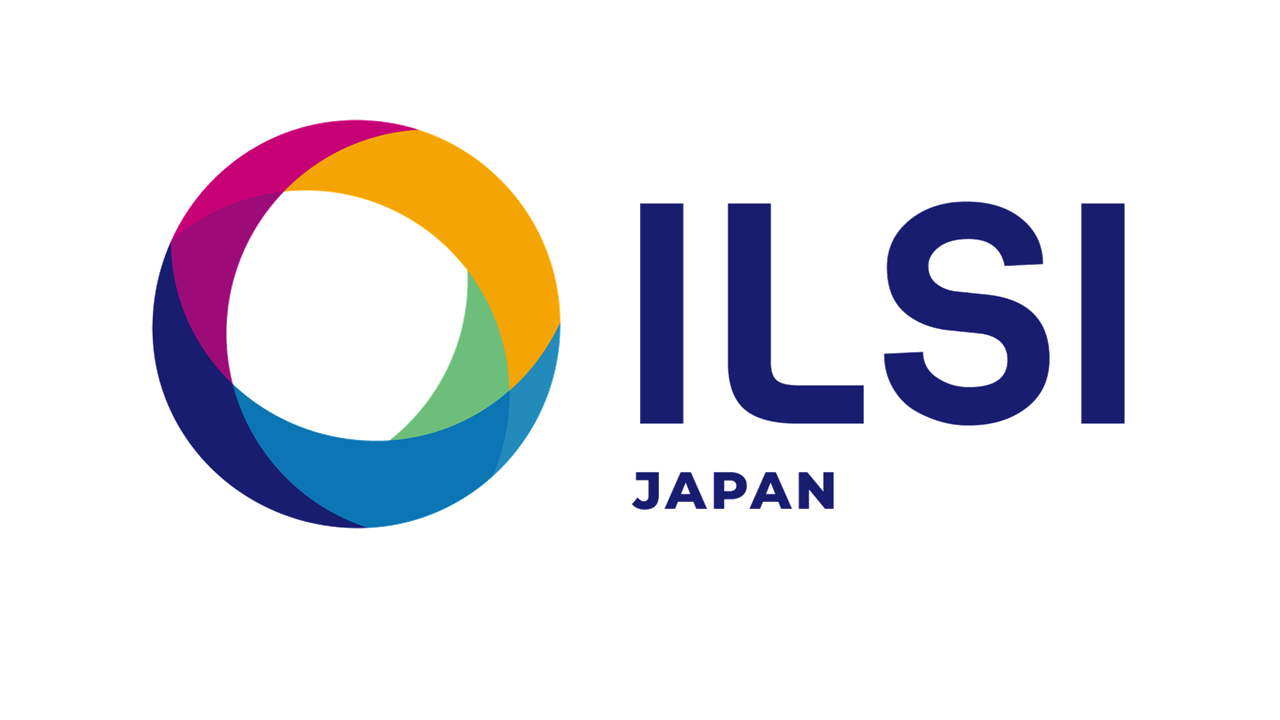
Contact Us
If you have any inquiries, please do not hesitate to contact us at event@ilsisea.org.sg .
[post_title] => ILSI Satellite Seminar: Climate Change, Nutrition & Health
[post_excerpt] =>
[post_status] => publish
[comment_status] => closed
[ping_status] => closed
[post_password] =>
[post_name] => climatechange-nutrition-health
[to_ping] =>
[pinged] =>
[post_modified] => 2023-04-05 02:12:44
[post_modified_gmt] => 2023-04-05 02:12:44
[post_content_filtered] =>
[post_parent] => 0
[guid] => https://ilsisea-region.org/?post_type=event&p=29493
[menu_order] => 0
[post_type] => event
[post_mime_type] =>
[comment_count] => 0
[filter] => raw
)
[3] => WP_Post Object
(
[ID] => 29401
[post_author] => 80
[post_date] => 2022-07-19 05:02:37
[post_date_gmt] => 2022-07-19 05:02:37
[post_content] =>
#protein #foodomics #foodpackaging
October 31, 2022; 15-30-17:00 hr at BR5 -- Future of Protein -Science, Innovation and Dietary Shifts
Expand
This session will be chaired by Prof. Hannelore Daniel, Technical University of Munich.

Prof. Hannelore Daniel, Professor Emerita (School of Life Sciences), Technical University of Munich (TUM), Germany. Prof. Daniel held as her last position - chair and director in Human Nutrition at the TUM, Germany. Her main research interests have been the genetic, molecular, and cellular basis of mammalian metabolism. This research led her into nutrigenomics and personalized nutrition.
Prof. Daniel is a nutrition expert by training and worked in Germany, UK and the USA. She is a member of the German National Academy of Sciences and an advisor for national and international funding agencies, research centres and the EU commission. She also chaired the scientific advisory board of the EU Joint Programming Initiative "A healthy diet for a healthy life" and was a member of the national Bioeconomy council in Germany. She received numerous scientific awards including the "Pro meritis-Award" as the most prestigious science award in the state of Bavaria. Prof. Daniel studied nutritional sciences at Justus Liebig University in Giessen. She received her doctorate in 1982.
 Dr. Kerr Dow is Co-Chair of the ILSI Global Board. He retired in 2020 as Vice President, Research and Development from Cargill Inc., where he led a scientific organization covering Technical Service, Research, Product & Process Development, Scientific and Regulatory Affairs, Intellectual Asset Management and Food Applications, across North America, Europe, Latin America and Asia. Before joining Cargill in January 2007, Kerr held the position of Vice President, Global Innovation and Quality and Chief Technical Officer of the H.J. Heinz Company.
Dr. Kerr Dow is Co-Chair of the ILSI Global Board. He retired in 2020 as Vice President, Research and Development from Cargill Inc., where he led a scientific organization covering Technical Service, Research, Product & Process Development, Scientific and Regulatory Affairs, Intellectual Asset Management and Food Applications, across North America, Europe, Latin America and Asia. Before joining Cargill in January 2007, Kerr held the position of Vice President, Global Innovation and Quality and Chief Technical Officer of the H.J. Heinz Company.
Future of Protein
 Prof. Michelle Colgrave, Professor, Future Protein Mission Leader, CSIRO, Australia
Prof. Michelle Colgrave, Professor, Future Protein Mission Leader, CSIRO, Australia
Estimates predict that 70 per cent more food will be required to feed the growing global population which will reach 9.7 billion by 2050. The challenge will be how to meet this global food gap while maintaining our planet's health. Australia's traditional animal and plant protein offer an opportunity to address this gap, with emerging sources of protein seen as complementary. We are witnessing changing dietary patterns, with increasing numbers of flexitarians, due to concerns over the environment, animal welfare and personal health and nutrition. In response to the growing demand for protein, technologists have been searching for cost-effective, resource-efficient and environmentally friendly protein technologies and solutions that can support traditional industries or create new industries. In this presentation, the opportunities and challenges in growing Australia's protein industries will be discussed.
Issues for Protein and Health - Identifying the Gaps
 Prof. Christiani Jeyakumar Henry, Deputy Executive Director, SIFBI /CNRC, Singapore
Prof. Christiani Jeyakumar Henry, Deputy Executive Director, SIFBI /CNRC, Singapore
Proteins are essential components for human life. Historically, our needs for protein have been met by the consumption of animal meat, fish, poultry, whole legumes, and cereals. With the global increase in the production of alternative protein-based foods, our access to protein foods has been revolutionized. Whilst embracing the new technologies used in the production of alternative protein foods, it is important for us to understand the nutritional, and physiological impact that the transition from eating conventional protein sources to the consumption of alternative proteins may have. This presentation will showcase and highlight the opportunities and challenges we face in the development of next-generation alternative proteins that not only have excellent taste, texture, and sensory properties but critically, have nutritional and health advantages. With increasing global population, we also need to consider how the "alternative protein" revolution could also include the nutritional needs of the less fortunate that approximate 3 billion people. This understanding will enable the next generation of alternative proteins to be widely accepted in our quest for planetary and human health.
Bioprocessing for Innovative Alternative Proteins - Cultivated meat, fermentation-derived products & plant-based meat alternatives
 Dr. Deepak Choudhury, Group Leader & Senior Scientist, Biomanufacturing Technology, Bioprocessing Technology Institute (BTI), A*STAR, Singapore
Dr. Deepak Choudhury, Group Leader & Senior Scientist, Biomanufacturing Technology, Bioprocessing Technology Institute (BTI), A*STAR, Singapore
It won't be an overstatement to say that innovations in Alternative Proteins have taken the world by storm. There are increasing demands from informed consumers for nutritious, delicious, affordable, and easily accessible sources of alternative proteins as traditional products. As per the Good Food Institute (GFI) estimates, the alternative proteins companies have raised a total of $11.1 billion since 2010, half of which has been raised in 2021 itself! The heart of the alternative proteins' revolution lies in the bioprocessing of relevant cells, especially for cultivated meat and fermentation-derived products. The speaker will quickly dive into innovative alternative protein-based product development, vital technological challenges, and unique proposed solutions to make the scale-up of alternative proteins a reality. The session is proposed to touch upon aspects of cells, media, scaffolds, and bioreactor hardware development, as well as how fermentation is exploited as a critical technical tool to produce various ingredients.
November 2, 2022; 1030-1200 hr at BR5 -- Food-omics - Rethinking Analytical Tools for Food Components and Their Health Impact
Expand
This session will be chaired by Mr. Geoffry Smith, President of ILSI SEA Region.
 Mr. Geoffry Smith is President of ILSI Southeast Asia Region based in Singapore, and a Representative of the branch to the ILSI Global Assembly. He is also the Chairman of the Essential Micronutrients Foundation, a non-profit organization which addresses micronutrient deficiencies globally as a public health issue. In addition, he is Director of Nutrition Strategies International which deals with food and nutrition issues in developing countries. Mr. Smith serves as a member of the editorial board of the journal Food and Nutrition Bulletin. Prior to his current positions, Mr. Smith was the Global Director, Health Chelates for Akzo Nobel Functional Chemicals, and directed the global business for these compounds in food and nutrition as well as pharmaceutical applications. He was responsible for the global project within Akzo Nobel addressing iron deficiency anemia.
Mr. Geoffry Smith is President of ILSI Southeast Asia Region based in Singapore, and a Representative of the branch to the ILSI Global Assembly. He is also the Chairman of the Essential Micronutrients Foundation, a non-profit organization which addresses micronutrient deficiencies globally as a public health issue. In addition, he is Director of Nutrition Strategies International which deals with food and nutrition issues in developing countries. Mr. Smith serves as a member of the editorial board of the journal Food and Nutrition Bulletin. Prior to his current positions, Mr. Smith was the Global Director, Health Chelates for Akzo Nobel Functional Chemicals, and directed the global business for these compounds in food and nutrition as well as pharmaceutical applications. He was responsible for the global project within Akzo Nobel addressing iron deficiency anemia.
Proteomics - a versatile tool for revealing protein food value, allergenicity and food pathogens
 Prof. Michelle Colgrave, Professor, Future Protein Mission Leader, CSIRO, Australia
Prof. Michelle Colgrave, Professor, Future Protein Mission Leader, CSIRO, Australia
A major challenge facing the world is providing protein security in the face of a growing global population. To this end, we have started exploring different crops and food sources from pulses to insects to algae and more. As we pivot towards these under-utilized resources, the potential exists for the increasing prevalence of allergy or cross-reactivity. Soy is a mainstay of the plant protein ingredient market, but new plant protein sources are emerging. For instance, lupin seeds possess high protein content (35-44%) and many health-promoting benefits (lowering cholesterol and blood pressure, managing glucose levels). But lupin also contains proteins that can trigger life-threatening anaphylaxis. Another complementary, sustainable source of protein to feed the world's growing population is insects. Insects have been consumed by people for millennia, but belong to the arthropod family, like crustaceans. Crustacean (shellfish) allergies are both relatively common and potentially severe; hence, the cross-reactivity of the immune system with insect proteins (e.g., tropomyosin and arginine kinase) is a potential health concern. The development of insects for food requires technology to explore their allergenic potential. In this presentation, the role of proteomics as a powerful tool to characterize both nutritional and antinutritional proteins in emerging protein sources will be discussed.
The intergenerational landscape of the human circulatory lipidome during pregnancy and early life
 Prof. Markus Wenk, Professor, Yong Loo Lin School of Medicine, National University of Singapore, Singapore
Prof. Markus Wenk, Professor, Yong Loo Lin School of Medicine, National University of Singapore, Singapore
Pregnancy and early child development are characterised by profound changes in physiology and metabolism. Here I will highlight results from our recent biochemical characterization of large Singapore birth cohorts. Mass spectrometry-based lipidomics was used to measure hundreds of circulating lipid metabolites in mothers and their offspring until early childhood. We have also characterized inter- and intra-individual (morning versus evening) variability of breastmilk. Collectively, these studies are providing valuable information maps to advance our knowledge in the fields of nutritional science, endocrinology, and pediatrics.
Measuring the health effects of food by metabolomics and other omics sciences: An example using volatilomics of several Zingiberaceae spices from Indonesia
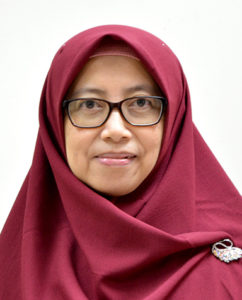 Dr. Nancy Dewi Yuliana, Associate Professor, Department of Food Science and Technology, IPB University, Indonesia
Dr. Nancy Dewi Yuliana, Associate Professor, Department of Food Science and Technology, IPB University, Indonesia
Metabolomics is one of the emerging biomarker discovery tools that has received a lot of interest. It enables systematic investigation of a complex mixture, such as a botanical preparation or food product, which may be linked to the results of biological testing systems to identify active principles without the need for recurrent chromatographic procedures. Metabolomics of the plant or food can be integrated with the metabolomics of the treated patients or experimental animals in order to correlate the compounds with their quantifiable health effects. Thus, how the chemicals normalize the human or experimental animal metabolome at distinct disease phases to achieve homeostasis can be investigated. In addition, metabolomics can be utilized to determine whether a substance is harmful to human health. In our lab, we conducted metabolomics-based research using several analytical platforms, primarily to describe bioactive chemicals in various plant-based foods. We recently focus on the volatile components of numerous Indonesian underutilized Zingiberaceae spices and their in vitro antioxidant, anti-diabetic, and immunomodulatory effects. Several compounds have been successfully identified. More research employing metabolomics method to link the identified chemicals with the altered metabolic pathways is being planned to provide insight on the processes behind their antioxidant, anti-diabetic, and immunomodulatory activities.
November 3, 2022; 08:30-10:00 hr at BR10 -- Food Packaging - Safety and Sustainability in the Food System
Expand
This session will be chaired by Dr. Stéphane Vidry, the ILSI Global Executive Director.
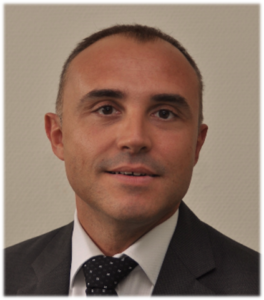
Dr. Stéphane Vidry is the Executive Director of ILSI Global, based in Washington D.C., USA. Prior to that, Stephane was Assistant Director for ILSI Europe where for 12 years, he managed several food safety-nutrition activities including coordination of a European Commission-funded project on Benefit-Risk Analysis of Foods and led a team of 7 scientists. Stephane also worked for the European Commission Joint Research Center, the international dairy company Lactalis. Stephane holds a PhD in Food Sciences from the University of Montpellier, France where he also taught.
Novel bioactive packaging: Shelf-life extension, sustainability, and safety assessment
 Prof. Cristina Nerin, Professor, Director of the Research Group GUIA, University of Zaragoza, Spain
Prof. Cristina Nerin, Professor, Director of the Research Group GUIA, University of Zaragoza, Spain
The huge amount of plastic waste around the world has caused serious environmental problems, as the plastics used so far are not biodegradable. Efforts have been made in the last years to develop and produce biodegradable polymers able to be in contact with food. However, most of these new polymers do not have the required barrier properties for most of the food in the market. Thus, the limited barrier to gases prevents the packaged food to reach the market under the same conditions as the conventional plastics do. One good approach is to get bioactive materials, what means that these new materials will contain some additional agents which will extend the shelf-life of packaged food. These new materials are called "active packaging" and can act to prevent oxidation and/or microbial growth in packaged food. As active agents, both essential oils, food additives and nanoparticles can be used, providing their efficiency and safety. But not only the shelf-life extension and sustainability are important, as the food packaging requires as well to guaranty the safety in use of all packaging materials. The presentation will show the main points of the topics and illustrate them with selected examples, dealing with biomaterials, active packaging and their safety in use.
Towards circular economy with sustainable packaging innovation: Industry perspectives* tbc
Ms. Terrynz Tan, Sustainability Director, Tetra Pak Malaysia, Singapore, Philippines & Indonesia
 Ms. Terrynz Tan joined Tetra Pak in 1996 in Marketing & Research and has spent over 20 years at the company in various roles ranging from marketing, business intelligence, key account management and communications.
Ms. Terrynz Tan joined Tetra Pak in 1996 in Marketing & Research and has spent over 20 years at the company in various roles ranging from marketing, business intelligence, key account management and communications.
In 2005, Ms. Tan took on the role of Communications & Environment Manager and subsequently, in 2007, she was appointed Environment Director for Malaysia, Singapore and the Philippines. The role expanded to oversee the Indonesia market in 2014. Currently, She is the Sustainability Director overseeing the ASEAN market.
In this role, Ms. Tan is responsible for the strategizing and implementation of Tetra Pak's environment plans and activities across the country market level. This includes developing a sustainable business model for beverage carton recycling by working closely with key stakeholders across the value chain, driving continuous improvement of recycling solutions through the development of recycling capacities and networks, and ensuring active collection and recycling participation among national waste organizations and other commercial partners. Part of her role also includes working closely with government agencies, industry organisations, NGO's, and commercial stakeholders to proactively contribute to legislative/ policy developments. Ms. Tan is a member of the Swedish Chamber of Commerce Sustainability Committee and a member of the steering committee of MAREA (Malaysian Recycling Alliance Berhad). She graduated from the National University of Malaysia with a degree in Business Administration.
Thailand's sustainable packaging roadmap and the regulatory development
 Mrs. Sumalee Tangpitayakul, Advisor, Thai Packaging Association, Thailand
Mrs. Sumalee Tangpitayakul, Advisor, Thai Packaging Association, Thailand
In Thailand, the Thai Food and Drug Administration (FDA), Ministry of Public Health (MOH) is the national authority for the safety of food packaging, while the Thai Industrial Standard Institute (TISI,) Ministry of Industry is responsible to develop various standards including food contact materials standard. Food contact materials standard covers both technical quality and safety of the product. Moreover, the Department of pollution control has set up the management of plastic waste road map for 2018-2030. The roadmap targets 1) to reduce and stop using single-use plastic, as well as 2) recycling plastic waste to create circular economy. This presentation will share the revision of Notification No. 295 of Food Act (1979) which prohibit the use of recycled plastic for food packaging to the new Notification No.435 effective since June 2022 which allows the use of recycled polyethylene terephthalate (PET), and the changes of two voluntary compostable plastics standards to mandatory standards.
Click here to download the program, abstracts, and biography of the speakers.
Session 1: Future of Protein
Session 2: Food-omics
Session 3: Food Packaging
Download Summary Report
Sessions supported by


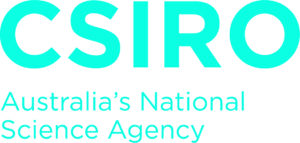
Drop by our exhibition booth at #11!

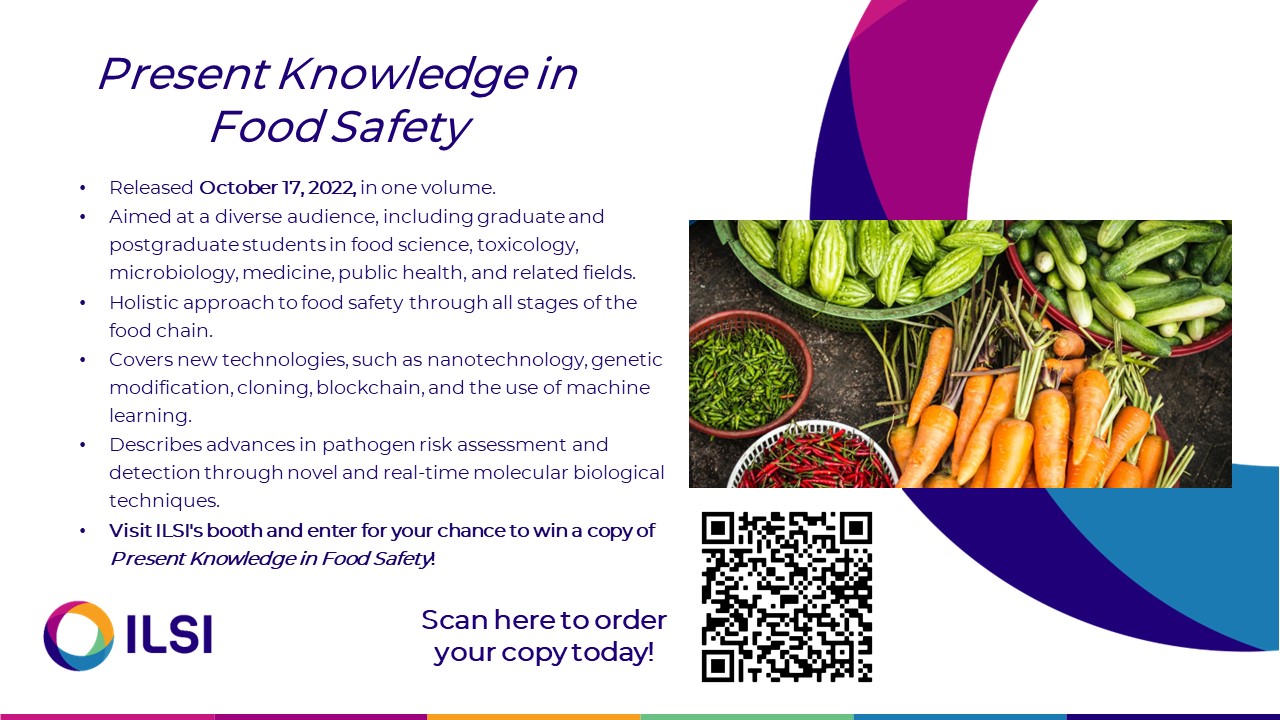
Ready to find out more?
Check out more on IUFoST 2022 Website.
Click Here
[post_title] => ILSI Sessions at IUFoST 2022 Singapore
[post_excerpt] =>
[post_status] => publish
[comment_status] => closed
[ping_status] => closed
[post_password] =>
[post_name] => ilsi-iufost2022
[to_ping] =>
[pinged] =>
[post_modified] => 2023-04-05 02:17:35
[post_modified_gmt] => 2023-04-05 02:17:35
[post_content_filtered] =>
[post_parent] => 0
[guid] => https://ilsisea-region.org/?post_type=event&p=29401
[menu_order] => 0
[post_type] => event
[post_mime_type] =>
[comment_count] => 0
[filter] => raw
)
[4] => WP_Post Object
(
[ID] => 29214
[post_author] => 80
[post_date] => 2022-04-05 09:18:48
[post_date_gmt] => 2022-04-05 09:18:48
[post_content] =>
Health Innovation and Food Systems Transformation: Re-thinking the Way Forward
The United Nations Food Systems Summit 2021 highlighted the challenges of achieving food systems transformations to provide sustainable diets for health impact. Southeast Asia and Australasia are key regions for agriculture and food production, and are home to large populations with diverse cultures and diets. Science and innovation will help to improve agricultural productivity, increase value-added food production, improve health and livelihoods while enhancing food security and reducing environmental impact. This Science Session with plenary speakers and a panel discussion will look at new technologies and innovations, and discuss actions necessary for progress, including investment and research.
Program (Time shown in GMT+8)
Invited Presentations
Expand
11:00- 11:25 AM
Microbiome and Disruptive Innovation - Changing the world in Agri-Food, Nutrition and Health Outcome
Mr. Ross Youngs, Founder & CEO, Biosortia Microbiomics, USA
 Mr. Ross Youngs, Founder and CEO of Biosortia Microbiotics, has spent over 30 years inventing products, technologies, and processes for a variety of industries, and holds over 75 patents worldwide. His recent major innovations include an R&D 100 Award for collaboration on biopolymer technologies. In 2009, Biosortia was awarded a $6 million ARPA-E (U.S. Dept. of Energy R&D) grant for its algal harvesting technology, which helped lead to the development of Biosortia's drug discovery platform. In 1998, Mr. Youngs was awarded the Ernst & Young Ohio Entrepreneur of the Year award.
Mr. Ross Youngs, Founder and CEO of Biosortia Microbiotics, has spent over 30 years inventing products, technologies, and processes for a variety of industries, and holds over 75 patents worldwide. His recent major innovations include an R&D 100 Award for collaboration on biopolymer technologies. In 2009, Biosortia was awarded a $6 million ARPA-E (U.S. Dept. of Energy R&D) grant for its algal harvesting technology, which helped lead to the development of Biosortia's drug discovery platform. In 1998, Mr. Youngs was awarded the Ernst & Young Ohio Entrepreneur of the Year award.
11:25- 11:50 AM
N-of-1 Healthcare to Food Technology: Harnessing Digital Medicine Approaches to Food and Nutrition Challenges
Prof. Dean Ho, Director, The N.1 Institute for Health (N.1), National University of Singapore, Singapore
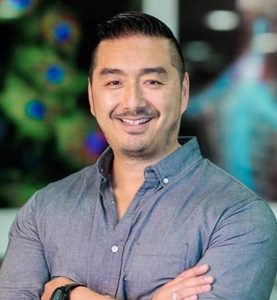
Prof. Dean Ho is the Provost's Chair Professor, Director of The N.1 Institute for Health (N.1), Director of The Institute for Digital Medicine (WisDM) and Head of the Department of Biomedical Engineering at the National University of Singapore. Prof. Ho and collaborators successfully developed and validated CURATE.AI, a powerful digital medicine platform that has optimized human treatment for broad indications ranging from oncology to infectious diseases. He is a Fellow of the US National Academy of Inventors (NAI), the American Institute for Medical and Biological Engineering (AIMBE), and the Royal Society of Chemistry. He was also recently named to the HIMSS Future50 Class of 2021 for his internationally recognized leadership in digital health.
11:50- 12:00 PM
Short Break
Panel Discussion
Expand
12:00 - 12:30 PM
Science, Innovation and Food Systems Transformation: Way Forward in SE Asia
Moderated by Mr. Geoffry Smith, President, ILSI SEA Region, Singapore.
 Mr. Geoffry Smith is President of ILSI Southeast Asia Region based in Singapore, and a Representative of the branch to the ILSI Global Assembly. He is also the Chairman of the Essential Micronutrients Foundation, a non-profit organization which addresses micronutrient deficiencies globally as a public health issue. In addition, he is Director of Nutrition Strategies International which deals with food and nutrition issues in developing countries. Mr. Smith serves as a member of the editorial board of the journal Food and Nutrition Bulletin. Prior to his current positions, Mr. Smith was the Global Director, Health Chelates for Akzo Nobel Functional Chemicals, and directed the global business for these compounds in food and nutrition as well as pharmaceutical applications. He was responsible for the global project within Akzo Nobel addressing iron deficiency anemia.
Mr. Geoffry Smith is President of ILSI Southeast Asia Region based in Singapore, and a Representative of the branch to the ILSI Global Assembly. He is also the Chairman of the Essential Micronutrients Foundation, a non-profit organization which addresses micronutrient deficiencies globally as a public health issue. In addition, he is Director of Nutrition Strategies International which deals with food and nutrition issues in developing countries. Mr. Smith serves as a member of the editorial board of the journal Food and Nutrition Bulletin. Prior to his current positions, Mr. Smith was the Global Director, Health Chelates for Akzo Nobel Functional Chemicals, and directed the global business for these compounds in food and nutrition as well as pharmaceutical applications. He was responsible for the global project within Akzo Nobel addressing iron deficiency anemia.
Panelists
Mr. Anang Nugroho, Director for Food and Agriculture, Ministry of National Development Planning, Indonesia
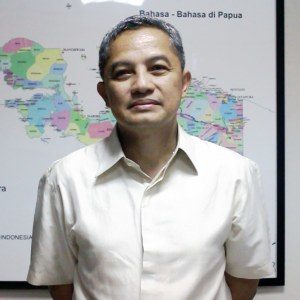 Mr. Anang Nugroho has over 30 years of experience in public service in Indonesia, and served as Director for Food and Agriculture, Ministry of National Development Planning since 2018. Besides the ministry, he has worked for several government agencies, the Cabinet Secretariat, State Secretariat, and Investment Coordinating Board. From 2013 - 2014, Mr. Nugroho served as Deputy Lead Shepherd for Ocean and Fisheries Working Group in APEC, facilitating the coordination of ocean-related issues in APEC; he also served as Coordinator for ASEAN Fisheries for Public Private Partnership in 2014. In 2014 - 2016, he served as Chairman of Financial Resources Working Group and Coordinating Mechanism Working Group for the Coral Triangle Initiative (CTI). Since 2018, Mr. Nugroho has served as the National Chair for SDG2 End Hunger.
Mr. Anang Nugroho has over 30 years of experience in public service in Indonesia, and served as Director for Food and Agriculture, Ministry of National Development Planning since 2018. Besides the ministry, he has worked for several government agencies, the Cabinet Secretariat, State Secretariat, and Investment Coordinating Board. From 2013 - 2014, Mr. Nugroho served as Deputy Lead Shepherd for Ocean and Fisheries Working Group in APEC, facilitating the coordination of ocean-related issues in APEC; he also served as Coordinator for ASEAN Fisheries for Public Private Partnership in 2014. In 2014 - 2016, he served as Chairman of Financial Resources Working Group and Coordinating Mechanism Working Group for the Coral Triangle Initiative (CTI). Since 2018, Mr. Nugroho has served as the National Chair for SDG2 End Hunger.
Mr. John Eng, Head of Agri-Food Division, Economic Development Board, Singapore
 Mr. John Eng is Acting Vice President and Head of the Agri-Food Division at the Singapore Economic Development Board. In his current role, Mr. Eng leads a team to engage with global companies and develop strategies to position Singapore as an ecosystem for Agri-Food innovation. Prior to this, he was based in EDB's Chicago Office from 2015 - 2018 as Regional Director, Americas, facilitating investments in industries such as biomedical sciences, food and nutrition, infocomms and media, natural resources, and professional services. Mr. Eng completed the Joint Masters of Translational Medicine program at the University of California, Berkeley and San Francisco, and holds a BSc with Honours in Biological Sciences from Singapore's Nanyang Technological University.
Mr. John Eng is Acting Vice President and Head of the Agri-Food Division at the Singapore Economic Development Board. In his current role, Mr. Eng leads a team to engage with global companies and develop strategies to position Singapore as an ecosystem for Agri-Food innovation. Prior to this, he was based in EDB's Chicago Office from 2015 - 2018 as Regional Director, Americas, facilitating investments in industries such as biomedical sciences, food and nutrition, infocomms and media, natural resources, and professional services. Mr. Eng completed the Joint Masters of Translational Medicine program at the University of California, Berkeley and San Francisco, and holds a BSc with Honours in Biological Sciences from Singapore's Nanyang Technological University.
Dr. Cecilia Acuin, Associate Professor, The Institute of Human Nutrition and Food, University of the Philippines Los Banos, Philippines
 Dr. Cecilia Acuin is an Associate Professor at the Institute of Human Nutrition and Food, University of the Philippines at Los Banos. Previously, she served as Senior Scientist, lead for Human Nutrition, at the International Rice Research Institute (IRRI), Philippines. She was also the Chief Science Research Specialist, Nutritional Assessment & Monitoring Division and Chair, Institutional Ethics Committee at the Food & Nutrition Research Institute (FNRI) where she was responsible for the conduct of the Philippine National Nutrition Surveys, and oversaw nutrition research projects. Dr. Acuin's involvement in multi-country research initiatives includes, among many others, Member of the International Union of Nutritional Sciences Committee on Nutrition and Anthropology; and Consultant and Vice-Chair of the WHO Western Pacific (WPRO) Regional Advisory Committee on Health Research. Dr. Acuin has also been the Co-Chair of the Philippine National Health Research System, Research Utilization Committee; and consultant in various capacities for USAID, UNICEF, World Bank etc.
Dr. Cecilia Acuin is an Associate Professor at the Institute of Human Nutrition and Food, University of the Philippines at Los Banos. Previously, she served as Senior Scientist, lead for Human Nutrition, at the International Rice Research Institute (IRRI), Philippines. She was also the Chief Science Research Specialist, Nutritional Assessment & Monitoring Division and Chair, Institutional Ethics Committee at the Food & Nutrition Research Institute (FNRI) where she was responsible for the conduct of the Philippine National Nutrition Surveys, and oversaw nutrition research projects. Dr. Acuin's involvement in multi-country research initiatives includes, among many others, Member of the International Union of Nutritional Sciences Committee on Nutrition and Anthropology; and Consultant and Vice-Chair of the WHO Western Pacific (WPRO) Regional Advisory Committee on Health Research. Dr. Acuin has also been the Co-Chair of the Philippine National Health Research System, Research Utilization Committee; and consultant in various capacities for USAID, UNICEF, World Bank etc.
Mr. Ross Youngs, Founder & CEO, Biosortia Microbiomics, USA
 Mr. Ross Youngs, Founder and CEO of Biosortia Microbiotics, has spent over 30 years inventing products, technologies, and processes for a variety of industries, and holds over 75 patents worldwide. His recent major innovations include an R&D 100 Award for collaboration on biopolymer technologies. In 2009, Biosortia was awarded a $6 million ARPA-E (U.S. Dept. of Energy R&D) grant for its algal harvesting technology, which helped lead to the development of Biosortia's drug discovery platform. In 1998, Mr. Youngs was awarded the Ernst & Young Ohio Entrepreneur of the Year award.
Mr. Ross Youngs, Founder and CEO of Biosortia Microbiotics, has spent over 30 years inventing products, technologies, and processes for a variety of industries, and holds over 75 patents worldwide. His recent major innovations include an R&D 100 Award for collaboration on biopolymer technologies. In 2009, Biosortia was awarded a $6 million ARPA-E (U.S. Dept. of Energy R&D) grant for its algal harvesting technology, which helped lead to the development of Biosortia's drug discovery platform. In 1998, Mr. Youngs was awarded the Ernst & Young Ohio Entrepreneur of the Year award.
Prof. Dean Ho, Director, The N.1 Institute for Health, National University of Singapore, Singapore

Prof. Dean Ho is the Provost's Chair Professor, Director of The N.1 Institute for Health (N.1), Director of The Institute for Digital Medicine (WisDM) and Head of the Department of Biomedical Engineering at the National University of Singapore. Prof. Ho and collaborators successfully developed and validated CURATE.AI, a powerful digital medicine platform that has optimized human treatment for broad indications ranging from oncology to infectious diseases. He is a Fellow of the US National Academy of Inventors (NAI), the American Institute for Medical and Biological Engineering (AIMBE), and the Royal Society of Chemistry. He was also recently named to the HIMSS Future50 Class of 2021 for his internationally recognized leadership in digital health.
[post_title] => Science Session in conjunction with ILSI SEA Region 2022 Annual Meeting
[post_excerpt] =>
[post_status] => publish
[comment_status] => closed
[ping_status] => closed
[post_password] =>
[post_name] => science-session2022
[to_ping] =>
[pinged] =>
[post_modified] => 2022-04-27 03:46:45
[post_modified_gmt] => 2022-04-27 03:46:45
[post_content_filtered] =>
[post_parent] => 0
[guid] => https://ilsisea-region.org/?post_type=event&p=29214
[menu_order] => 0
[post_type] => event
[post_mime_type] =>
[comment_count] => 0
[filter] => raw
)
)
[post_count] => 5
[current_post] => -1
[before_loop] =>
[in_the_loop] =>
[post] => WP_Post Object
(
[ID] => 29672
[post_author] => 353
[post_date] => 2023-03-23 01:35:32
[post_date_gmt] => 2023-03-23 01:35:32
[post_content] =>
 Most countries have established recommended nutrient intake values for use for a variety of food and nutrition programs. These have traditionally been provided as recommended dietary allowances (RDAs), with focus on energy, protein and several vitamins and minerals. They are classically used to ensure adequacy of intake of these nutrients of population groups. While these remain of great importance, especially for developing countries, it has now been observed that certain nutrients, when taken at higher dose above RDA, may confer health benefit(s) beyond prevention of nutritional disorders. It would be important to examine how these levels may provide protective effects against some disease conditions. Understanding and establishing appropriate safe upper limit (UL) of nutrients are also of importance. Additionally, there is growing scientific evidence that bioactive components in foods may provide health benefits beyond classical nutrients. Regulatory authorities have permitted the addition of these components to foods and to make function claims.
Most countries have established recommended nutrient intake values for use for a variety of food and nutrition programs. These have traditionally been provided as recommended dietary allowances (RDAs), with focus on energy, protein and several vitamins and minerals. They are classically used to ensure adequacy of intake of these nutrients of population groups. While these remain of great importance, especially for developing countries, it has now been observed that certain nutrients, when taken at higher dose above RDA, may confer health benefit(s) beyond prevention of nutritional disorders. It would be important to examine how these levels may provide protective effects against some disease conditions. Understanding and establishing appropriate safe upper limit (UL) of nutrients are also of importance. Additionally, there is growing scientific evidence that bioactive components in foods may provide health benefits beyond classical nutrients. Regulatory authorities have permitted the addition of these components to foods and to make function claims.
This seminar provides a platform to review and deliberate on these various aspects of recommended intake values for nutrients and bioactives. These have important implications and impact on various aspects of food and nutrition activities, including food intake programs, product innovation, food fortification, and supplementation.
PROGRAM AND SPEAKERS
Presentation 1: Nutrient Requirement and Setting of Recommended Intake Values
Expand
Assoc. Prof. Emorn Udomkesmalee, Mahidol University, Thailand
 Prof. Emorn Udomkesmalee is the Senior Advisor and Former Director of the Institute of Nutrition, Mahidol University, Thailand. She holds a current position of Adjunct Associate Professor in the Department of International Health, Bloomberg School of Public Health, Johns Hopkins University, USA. Internationally, she's the former Board Chair of IFPRI; former Member of the Board of Directors of the Micronutrient Forum and currently serves on the Standing Together for Nutrition (ST4N) Consortium; Technical Advisory Group for Global Anemia Exemplars; Scientific Committee of Agriculture, Nutrition and Health Academy as well as Scientific Director of ILSI Southeast Asia Region. At national level, she holds the position of the Eminent Panel member under the National Policy Council on Higher Education, Science, Research and Innovation; Chair of Sub-Committee on Agriculture and Nutrition, Office of Atoms for Peace (Thailand) as well as Board member of Ajinomoto Foundation/Thailand.
Prof. Emorn Udomkesmalee is the Senior Advisor and Former Director of the Institute of Nutrition, Mahidol University, Thailand. She holds a current position of Adjunct Associate Professor in the Department of International Health, Bloomberg School of Public Health, Johns Hopkins University, USA. Internationally, she's the former Board Chair of IFPRI; former Member of the Board of Directors of the Micronutrient Forum and currently serves on the Standing Together for Nutrition (ST4N) Consortium; Technical Advisory Group for Global Anemia Exemplars; Scientific Committee of Agriculture, Nutrition and Health Academy as well as Scientific Director of ILSI Southeast Asia Region. At national level, she holds the position of the Eminent Panel member under the National Policy Council on Higher Education, Science, Research and Innovation; Chair of Sub-Committee on Agriculture and Nutrition, Office of Atoms for Peace (Thailand) as well as Board member of Ajinomoto Foundation/Thailand.
Her research interests include micronutrients; efficacy of food-based interventions; maternal and child nutrition policy and program implementation. She received her Ph.D. in nutritional biochemistry and metabolism from Massachusetts Institute of Technology (MIT), USA in 1985. Her post-doctoral training was at the Vitamin and Mineral Nutrition Laboratory, Beltsville Human Nutrition Research Center, USDA, Beltsville, Maryland, USA (1987).
Presentation 2: Status of Recommended Nutrient Intake Values in 5 SE Asia Countries
Expand
Dr. Tee E Siong, SEA-PHN Network, Malaysia
 Dr. E Siong Tee has been a Member of the Board of Directors of ILSI SEA Region since 1996 and Scientific Coordinator of ILSI Malaysia Country Committee since 2005. He is currently a Nutrition Consultant for TES NutriHealth Strategic Consultancy. Dr. Tee was Head of the Cardiovascular, Diabetes and Nutrition Research Centre of the Institute for Medical Research (IMR) in Kuala Lumpur, Malaysia, until his retirement in February 2002, after serving for 30 years. He was Nutrition Advisor to the Food Safety and Quality Division of the Ministry of Health Malaysia from 2002-2011. In that capacity, Dr. Tee was Chairperson or member of several technical committees related to food regulations and Codex Alimentarius. He is still a member of the National Advisory Committee on Food Regulations and several Codex sub-committees. Dr. Tee is also President of the Nutrition Society of Malaysia (NSM). In this capacity, he has led the implementation of various community nutrition promotion programs. He represents NSM in several Technical Working Groups in the Ministry of Health Malaysia, including the National Coordinating Committee for Food and Nutrition (NCCFN) and the Technical Working Group for Nutritional Guidelines. He initiated the formation of the Southeast Asia Public Health Nutrition (SEA-PHN) Network and is the current Chairman of the Network. Dr Tee is also Adjunct Professor of the International Medical University, Malaysia.
Presentation 3: Application of Recommended Intake Values Beyond Nutrient Deficiency Prevention: Past vs. Present
Expand
Prof. Manfred Eggersdorfer, University of Groningen, the Netherlands
Dr. E Siong Tee has been a Member of the Board of Directors of ILSI SEA Region since 1996 and Scientific Coordinator of ILSI Malaysia Country Committee since 2005. He is currently a Nutrition Consultant for TES NutriHealth Strategic Consultancy. Dr. Tee was Head of the Cardiovascular, Diabetes and Nutrition Research Centre of the Institute for Medical Research (IMR) in Kuala Lumpur, Malaysia, until his retirement in February 2002, after serving for 30 years. He was Nutrition Advisor to the Food Safety and Quality Division of the Ministry of Health Malaysia from 2002-2011. In that capacity, Dr. Tee was Chairperson or member of several technical committees related to food regulations and Codex Alimentarius. He is still a member of the National Advisory Committee on Food Regulations and several Codex sub-committees. Dr. Tee is also President of the Nutrition Society of Malaysia (NSM). In this capacity, he has led the implementation of various community nutrition promotion programs. He represents NSM in several Technical Working Groups in the Ministry of Health Malaysia, including the National Coordinating Committee for Food and Nutrition (NCCFN) and the Technical Working Group for Nutritional Guidelines. He initiated the formation of the Southeast Asia Public Health Nutrition (SEA-PHN) Network and is the current Chairman of the Network. Dr Tee is also Adjunct Professor of the International Medical University, Malaysia.
Presentation 3: Application of Recommended Intake Values Beyond Nutrient Deficiency Prevention: Past vs. Present
Expand
Prof. Manfred Eggersdorfer, University of Groningen, the Netherlands
 Prof. Manfred Eggersdorfer studied chemistry at the Technical University Munich and did his PhD in organic chemistry in the field of synthesis and characterization of unusual amino acids. He was post-doc at the Stanford-University, California working with Carl Djerassi on the isolation and characterization of sterols from marine origin as potential contraceptives.
Prof. Manfred Eggersdorfer studied chemistry at the Technical University Munich and did his PhD in organic chemistry in the field of synthesis and characterization of unusual amino acids. He was post-doc at the Stanford-University, California working with Carl Djerassi on the isolation and characterization of sterols from marine origin as potential contraceptives.
He joined Roche in 1999 as Head of R+D Vitamins and continued in this responsibility after DSM acquired this business in 2003.
Since 2013 Manfred Eggersdorfer holds the chair for Healthy Ageing at the University Medical Center Groningen (NL) and teaches nutrition for medical students. His scientific work focuses on the role of essential nutrients for health, vitality, and well-being, especially on the impact of inadequate intake and status of micronutrients over the life cycle with a focus on long term health and healthy ageing.
He is active as member of the Advisory Board of the Johns Hopkins Bloomberg School of Public Health, and he acts as Board member of the Gesellschaft für Angewandte Vitaminforschung e.V in Germany. He is author of numerous publications in the fields of vitamins, carotenoids, omega-3-polyunsaturated fatty acids and nutraceuticals for infants, adults, elderly and risk groups and on innovation in nutritional ingredients. He engages as reviewer for a variety of journals and is Associate Editor of the "International Journal of Vitamin and Nutrition Research" and other journals.
Presentation 4: Approaches and Challenges to the Setting of Upper Levels for Nutrients
Expand
Dr. Andrew Bartholomaeus, BartCrofts Pty Ltd, Australia
 Dr. Andrew Bartholomaeus is currently the CEO of BartCrofts Pty Ltd, which specializes in providing toxicological and regulatory scientific services for a variety of chemical food safety issues. He also holds extramural appointments as an Adjunct Professor at the University of Queensland Medical School, Australia and an Adjunct Professor of Toxicology and Pharmacy at the University of Canberra, Australia. Before his current position, Dr. Bartholomaeus was the General Manager of the Risk Assessment Branch at Food Standards Australia New Zealand (FSANZ) until his retirement in 2012. During his time at FSANZ, he also served as the chair during the FAO/WHO Expert Consultation on 'The Application of Nanotechnologies in Food and Agriculture Sectors: Potential Food Safety Implications'. From 2004 to 2008, he was the Chief Toxicologist at the Therapeutic Goods Administration (TGA) of Australia, with responsibilities in the area of preclinical assessment and in leading the TGA's response to the Australian National Nanotechnology Strategy.
Dr. Andrew Bartholomaeus is currently the CEO of BartCrofts Pty Ltd, which specializes in providing toxicological and regulatory scientific services for a variety of chemical food safety issues. He also holds extramural appointments as an Adjunct Professor at the University of Queensland Medical School, Australia and an Adjunct Professor of Toxicology and Pharmacy at the University of Canberra, Australia. Before his current position, Dr. Bartholomaeus was the General Manager of the Risk Assessment Branch at Food Standards Australia New Zealand (FSANZ) until his retirement in 2012. During his time at FSANZ, he also served as the chair during the FAO/WHO Expert Consultation on 'The Application of Nanotechnologies in Food and Agriculture Sectors: Potential Food Safety Implications'. From 2004 to 2008, he was the Chief Toxicologist at the Therapeutic Goods Administration (TGA) of Australia, with responsibilities in the area of preclinical assessment and in leading the TGA's response to the Australian National Nanotechnology Strategy.
Dr. Bartholomaeus was previously a member of the ILSI International Food Biotechnology Committee (IFBiC) Steering Group. He is also a member of the Society of Toxicology and Australasian College of Toxicology and Risk Assessment (ACTRA). Dr. Bartholomaeus obtained his B.S. degree in Pharmacy from the University of Sydney and PhD in Toxicology from RMIT University, Australia.
Presentation 5: Moving Beyond Current Recommended Intakes: Vitamin C as a Case Example
Expand
Prof. Anitra Carr, University of Otago, New Zealand
 Prof. Anitra Carr is Director of the Nutrition in Medicine Research Group at the University of Otago, Christchurch, New Zealand. Anitra is a biomedical researcher and international key opinion leader on the role of vitamin C in human health and disease. Following a PhD at UOC, Anitra undertook an American Heart Association Postdoctoral Fellowship at the Linus Pauling Institute, Oregon State University, USA. Whilst there she produced a number of high impact publications on the role of vitamin C in human health and disease which helped inform US dietary recommendations for vitamin C (IOM 2000). Following a return to New Zealand, Anitra began carrying out a translational research program comprising human intervention studies investigating the bioavailability and potential health effects of vitamin C which has helped inform EU dietary recommendations for vitamin C (EFSA 2013). More recently she has carried out research into the prevention and treatment of acute and chronic diseases such as infection, cancer and diabetes. In 2016 Anitra was awarded a 4-year New Zealand Health Research Council Fellowship to investigate the role of vitamin C in severe infections such as pneumonia and sepsis, two major complications of COVID-19. In 2021, Anitra was invited by the Nordic Nutrition Recommendations 2022 (NNR2022) committee to update vitamin C recommendations for the 8 Nordic and Baltic countries. Anitra is Associate Editor for the journal Nutrition Research and a long-time member of the Editorial Boards of the journals Nutrients and Antioxidants. Anitra was recently awarded a Gold Medal for sustained research excellence.
Presentation 6: Addressing Botanical Bioavailability Limitations: New Approaches by Modification of Macronutrient Food Components
Expand
Prof. Chin-Kun Wang, Chung Shan Medical University, Taiwan
Prof. Anitra Carr is Director of the Nutrition in Medicine Research Group at the University of Otago, Christchurch, New Zealand. Anitra is a biomedical researcher and international key opinion leader on the role of vitamin C in human health and disease. Following a PhD at UOC, Anitra undertook an American Heart Association Postdoctoral Fellowship at the Linus Pauling Institute, Oregon State University, USA. Whilst there she produced a number of high impact publications on the role of vitamin C in human health and disease which helped inform US dietary recommendations for vitamin C (IOM 2000). Following a return to New Zealand, Anitra began carrying out a translational research program comprising human intervention studies investigating the bioavailability and potential health effects of vitamin C which has helped inform EU dietary recommendations for vitamin C (EFSA 2013). More recently she has carried out research into the prevention and treatment of acute and chronic diseases such as infection, cancer and diabetes. In 2016 Anitra was awarded a 4-year New Zealand Health Research Council Fellowship to investigate the role of vitamin C in severe infections such as pneumonia and sepsis, two major complications of COVID-19. In 2021, Anitra was invited by the Nordic Nutrition Recommendations 2022 (NNR2022) committee to update vitamin C recommendations for the 8 Nordic and Baltic countries. Anitra is Associate Editor for the journal Nutrition Research and a long-time member of the Editorial Boards of the journals Nutrients and Antioxidants. Anitra was recently awarded a Gold Medal for sustained research excellence.
Presentation 6: Addressing Botanical Bioavailability Limitations: New Approaches by Modification of Macronutrient Food Components
Expand
Prof. Chin-Kun Wang, Chung Shan Medical University, Taiwan
 Prof. Chin-Kun Wang is a distinguished professor in Chung Shan Medical University (CSMU), Executive Councillor of International Academy of Food Science and Technology (IAFoST)., Former President of International Society for Nutraceuticals and Functional Foods (ISNFF), Fellows of IAFoST and ISNFF, Honorary President of Nutrition Society of Taiwan. He got his Ph.D. degree from National Taiwan University and worked at Chung Shan Medical University in 1993. In 1996, he promoted as a full professor, and then took the positions of the Chair, Dean, Vice President and President in CSMU. His research work is focused on human clinical trials and human metabolism of medicine, nutritional supplement, nutraceuticals, herbs, and functional foods. Recently he also pays great attention on precision nutrition by using big data. He got the National Award of Biomedicine for his great contribution to the medical education in 2008. He also got the awards of outstanding research of many societies from 2009 to 2022. For food safety and nutrition, he promoted the legislation for school sanitary law and national nutrition law. In the future, he tries his best to work together with the scientists around the world and would like to promote the advanced development of food science and technology.
Panel Discussion
Expand
Ms. Wei Tang, Nutrition External Engagement (Asia), Unilever China
Prof. Chin-Kun Wang is a distinguished professor in Chung Shan Medical University (CSMU), Executive Councillor of International Academy of Food Science and Technology (IAFoST)., Former President of International Society for Nutraceuticals and Functional Foods (ISNFF), Fellows of IAFoST and ISNFF, Honorary President of Nutrition Society of Taiwan. He got his Ph.D. degree from National Taiwan University and worked at Chung Shan Medical University in 1993. In 1996, he promoted as a full professor, and then took the positions of the Chair, Dean, Vice President and President in CSMU. His research work is focused on human clinical trials and human metabolism of medicine, nutritional supplement, nutraceuticals, herbs, and functional foods. Recently he also pays great attention on precision nutrition by using big data. He got the National Award of Biomedicine for his great contribution to the medical education in 2008. He also got the awards of outstanding research of many societies from 2009 to 2022. For food safety and nutrition, he promoted the legislation for school sanitary law and national nutrition law. In the future, he tries his best to work together with the scientists around the world and would like to promote the advanced development of food science and technology.
Panel Discussion
Expand
Ms. Wei Tang, Nutrition External Engagement (Asia), Unilever China
 Ms. Wei Tang is Regional Head of Nutrition External Engagement (Asia) of Unilever. Ms. Tang supports Unilever's external nutrition and health-related programs and collaboration across Asia. She has 16 years of working experience in Research & Development at various positions related to Nutrition & Science, Product Development and Scientific Affairs in France and China. She joined Unilever in 2017 as Regional Head of Nutrition External Engagement for North Asia and expanded her responsibility to Southeast Asia and Australasia (SEAA) region from 2018. Ms. Tang obtained her M.Sc. in Biology and Innovation in Quality and Productions of Vegetable respectively at University Paris XIII and University Paris XI.
Download Program
Download Summary Report
Ms. Wei Tang is Regional Head of Nutrition External Engagement (Asia) of Unilever. Ms. Tang supports Unilever's external nutrition and health-related programs and collaboration across Asia. She has 16 years of working experience in Research & Development at various positions related to Nutrition & Science, Product Development and Scientific Affairs in France and China. She joined Unilever in 2017 as Regional Head of Nutrition External Engagement for North Asia and expanded her responsibility to Southeast Asia and Australasia (SEAA) region from 2018. Ms. Tang obtained her M.Sc. in Biology and Innovation in Quality and Productions of Vegetable respectively at University Paris XIII and University Paris XI.
Download Program
Download Summary Report
ORGANIZER

CONTACT
If you have any inquiries, please do not hesitate to contact us at event@ilsisea.org.sg
[post_title] => Science Symposium in conjunction with ILSI SEA Region 2023 Annual Meeting - ReThink Nutrient Recommendations for Optimizing Health and Harmonizing Approaches
[post_excerpt] =>
[post_status] => publish
[comment_status] => closed
[ping_status] => closed
[post_password] =>
[post_name] => science-session-2023
[to_ping] =>
[pinged] =>
[post_modified] => 2024-02-26 07:23:07
[post_modified_gmt] => 2024-02-26 07:23:07
[post_content_filtered] =>
[post_parent] => 0
[guid] => https://ilsisea-region.org/?post_type=event&p=29672
[menu_order] => 0
[post_type] => event
[post_mime_type] =>
[comment_count] => 0
[filter] => raw
)
[comment_count] => 0
[current_comment] => -1
[found_posts] => 154
[max_num_pages] => 31
[max_num_comment_pages] => 0
[is_single] =>
[is_preview] =>
[is_page] =>
[is_archive] =>
[is_date] =>
[is_year] =>
[is_month] =>
[is_day] =>
[is_time] =>
[is_author] =>
[is_category] =>
[is_tag] =>
[is_tax] =>
[is_search] =>
[is_feed] =>
[is_comment_feed] =>
[is_trackback] =>
[is_home] => 1
[is_privacy_policy] =>
[is_404] =>
[is_embed] =>
[is_paged] => 1
[is_admin] =>
[is_attachment] =>
[is_singular] =>
[is_robots] =>
[is_favicon] =>
[is_posts_page] =>
[is_post_type_archive] =>
[query_vars_hash:WP_Query:private] => 119aae0d434578d4f2b52b16791ca672
[query_vars_changed:WP_Query:private] =>
[thumbnails_cached] =>
[allow_query_attachment_by_filename:protected] =>
[stopwords:WP_Query:private] =>
[compat_fields:WP_Query:private] => Array
(
[0] => query_vars_hash
[1] => query_vars_changed
)
[compat_methods:WP_Query:private] => Array
(
[0] => init_query_flags
[1] => parse_tax_query
)
)
